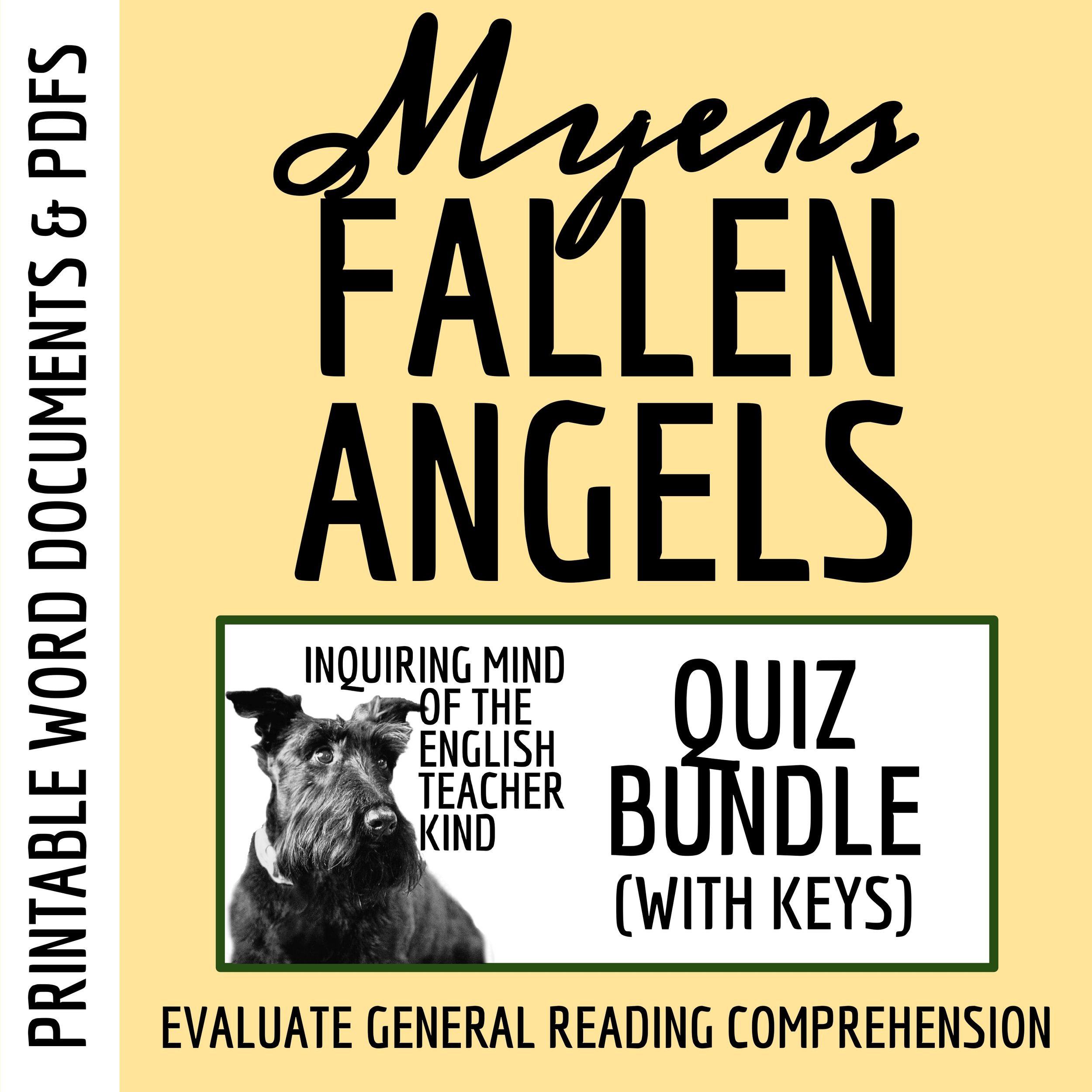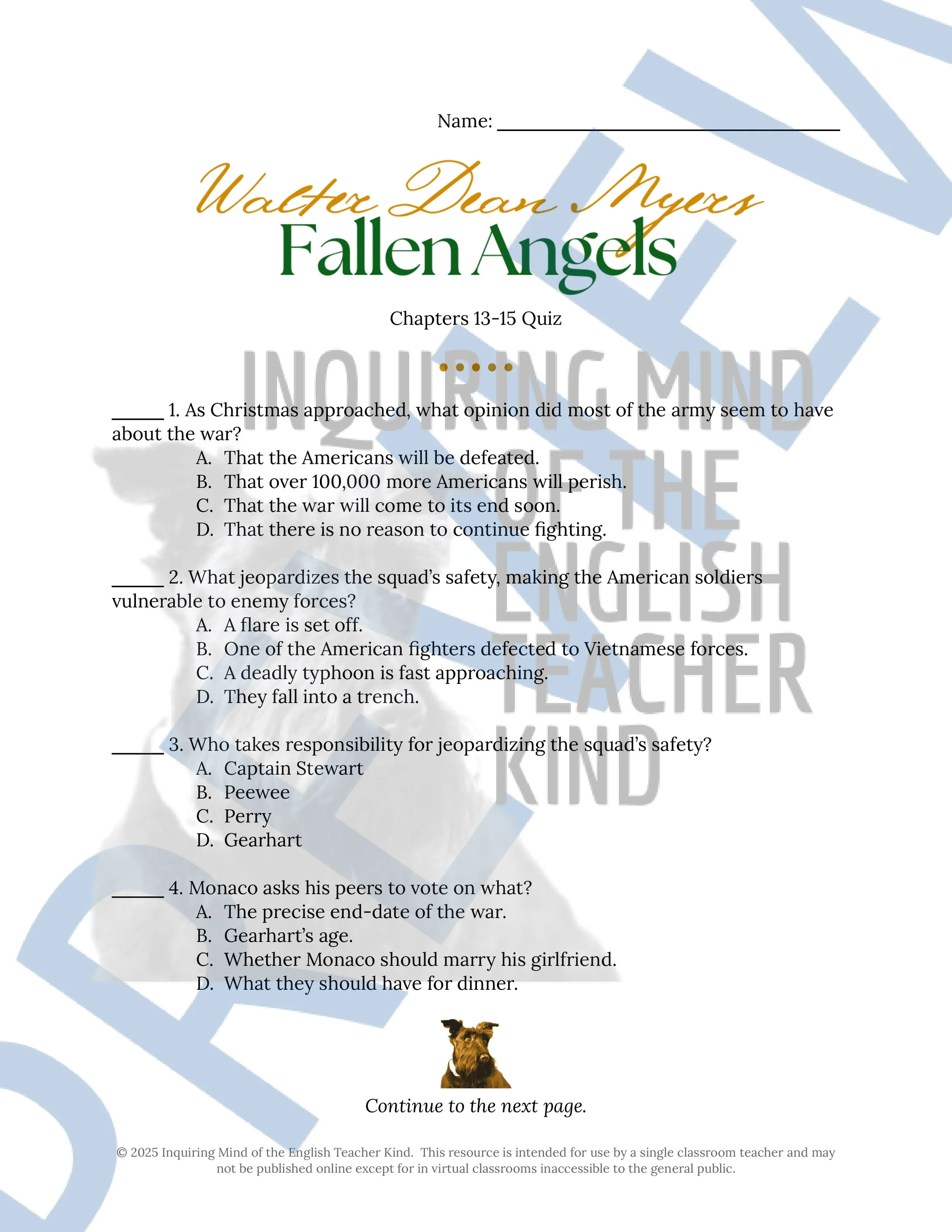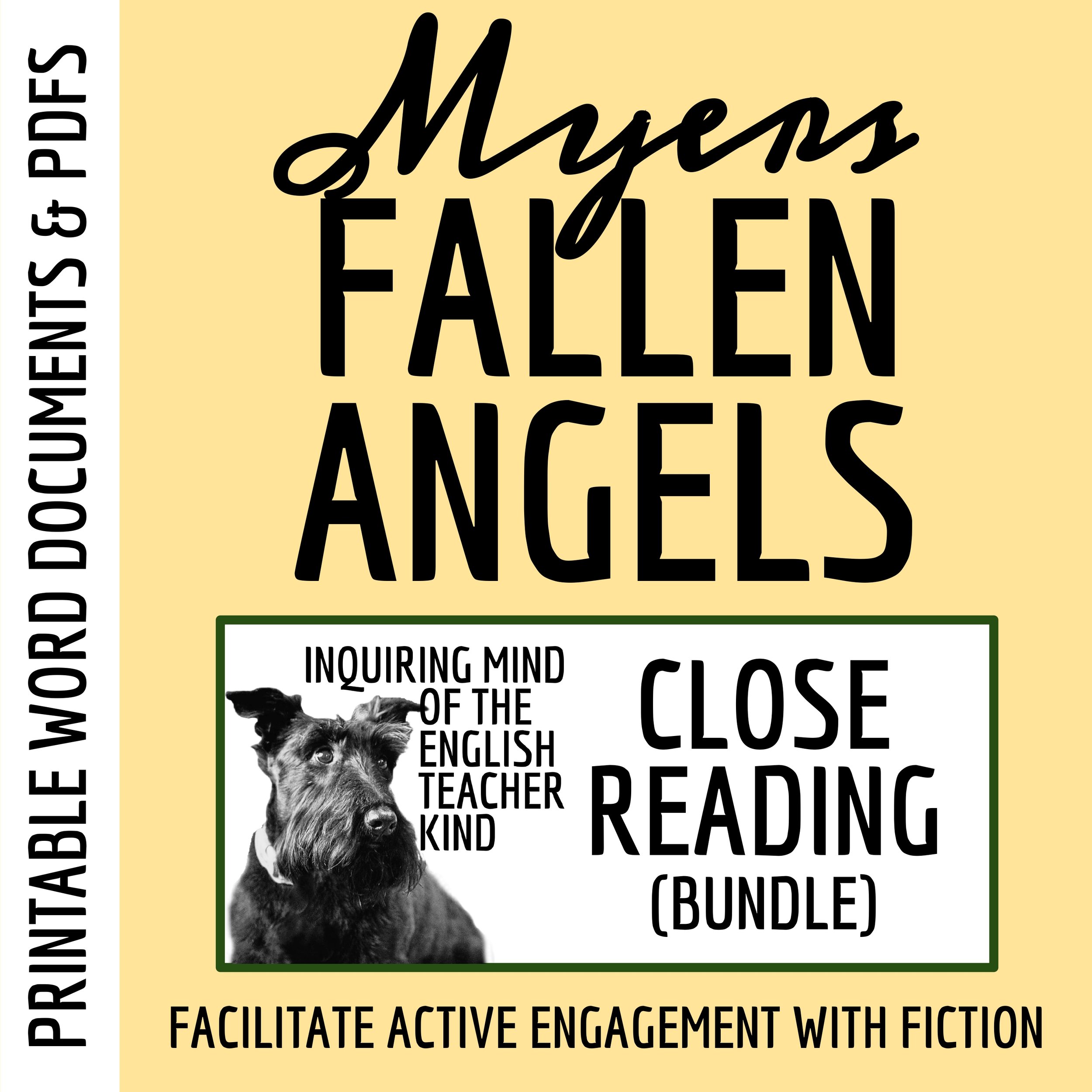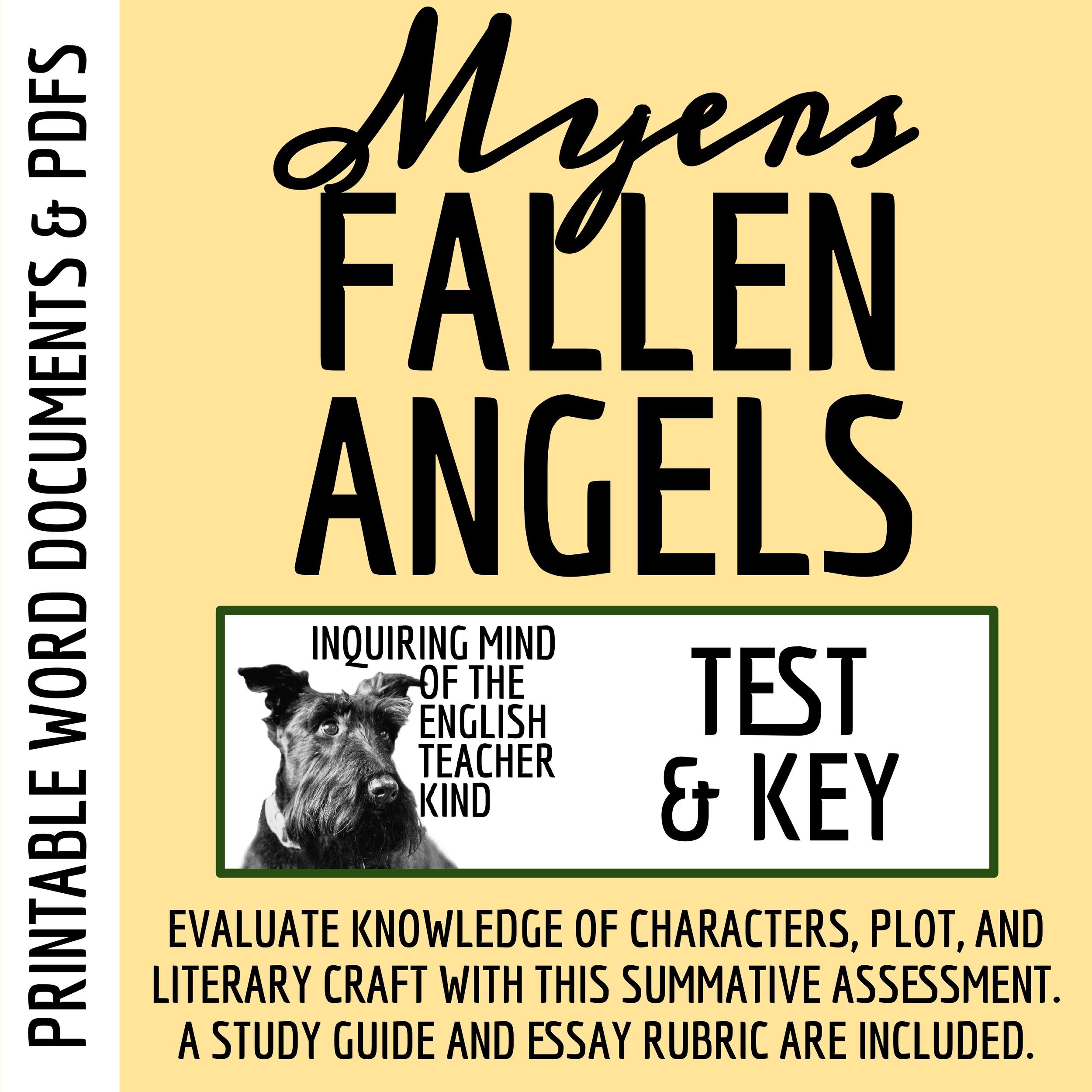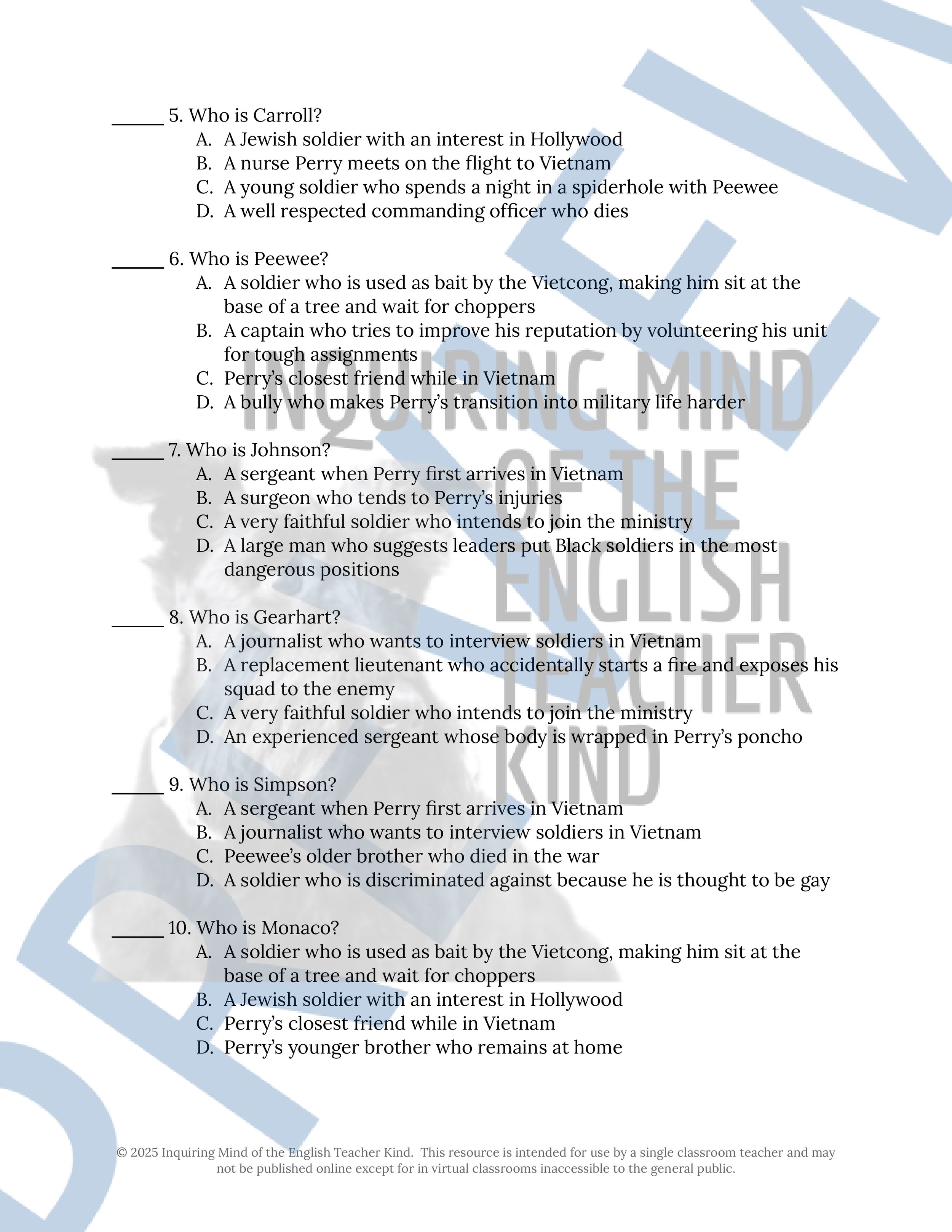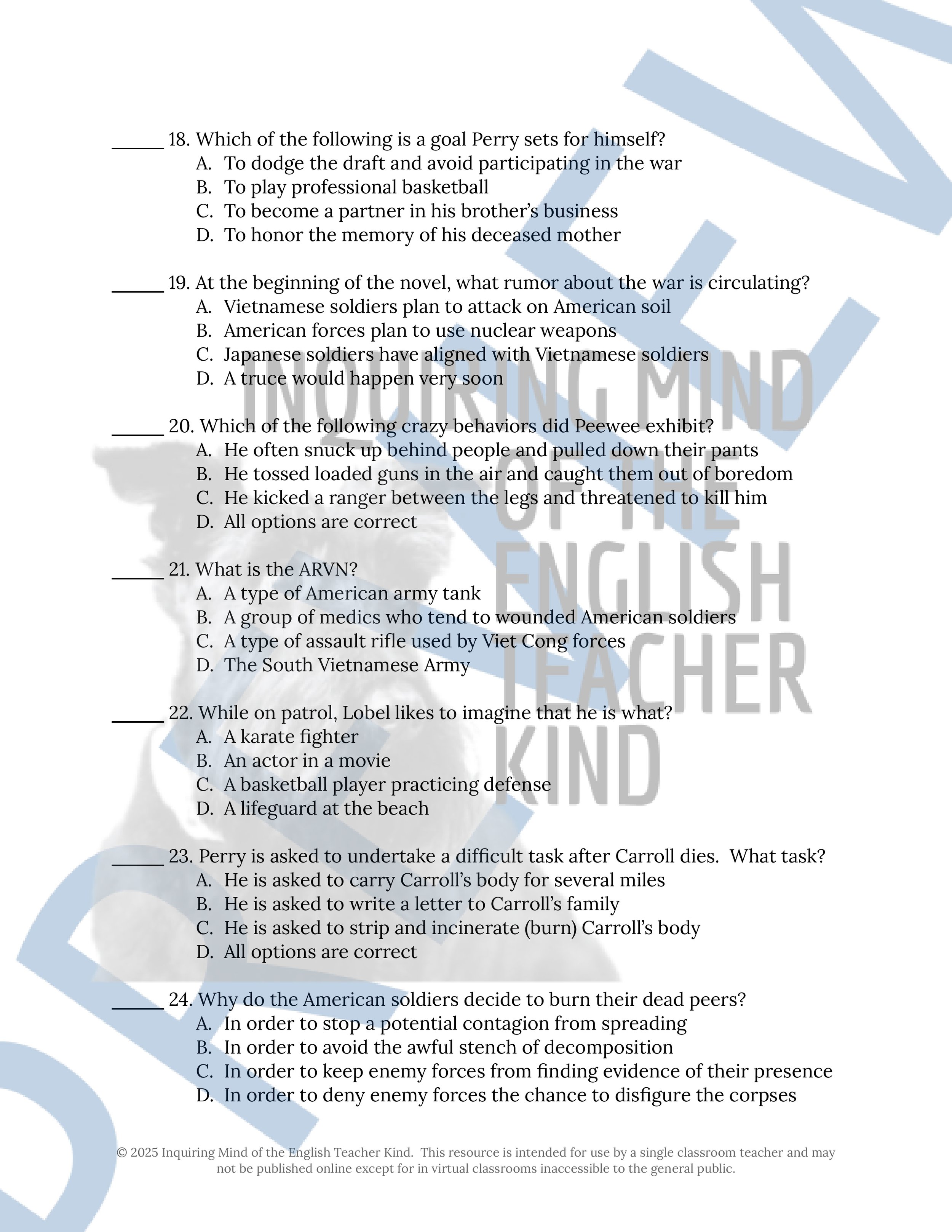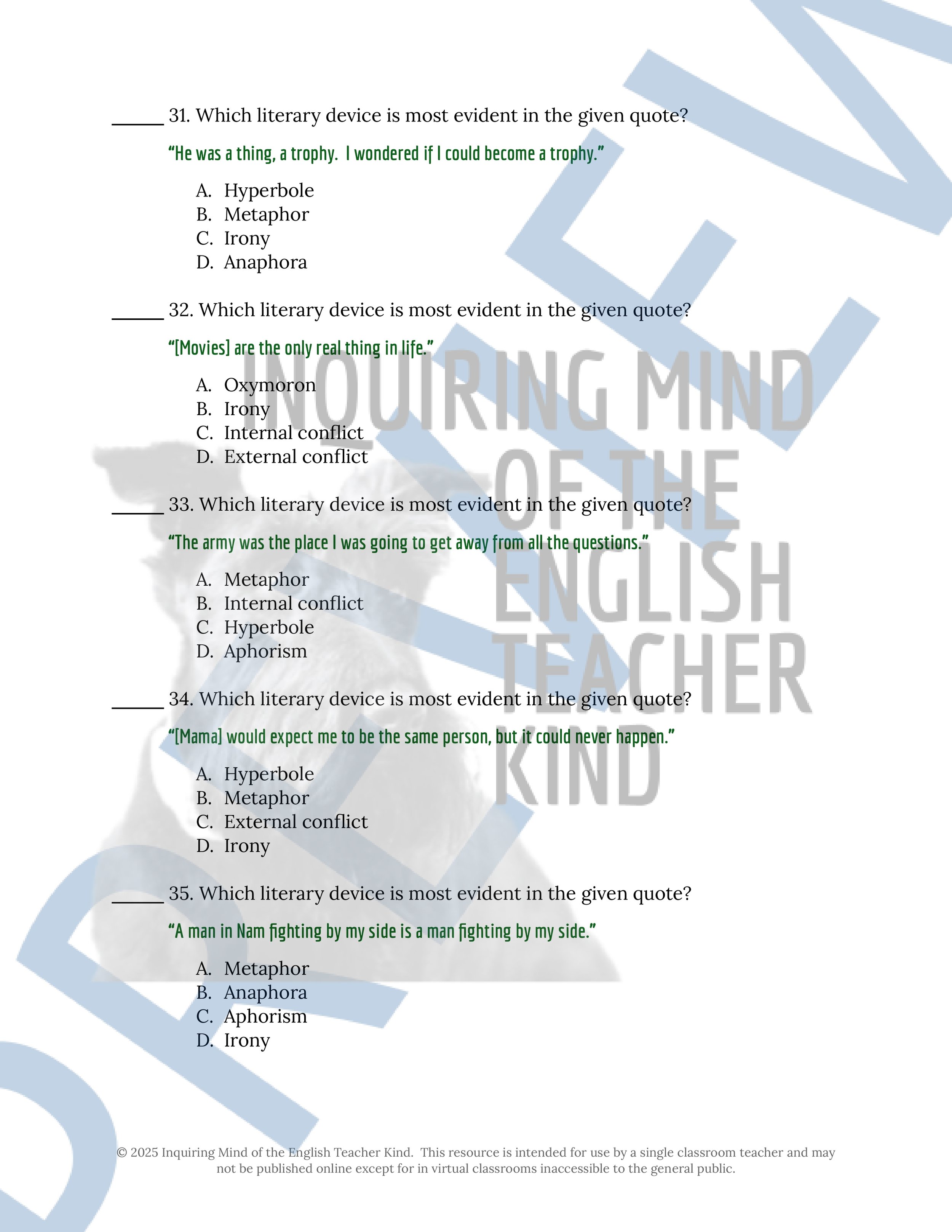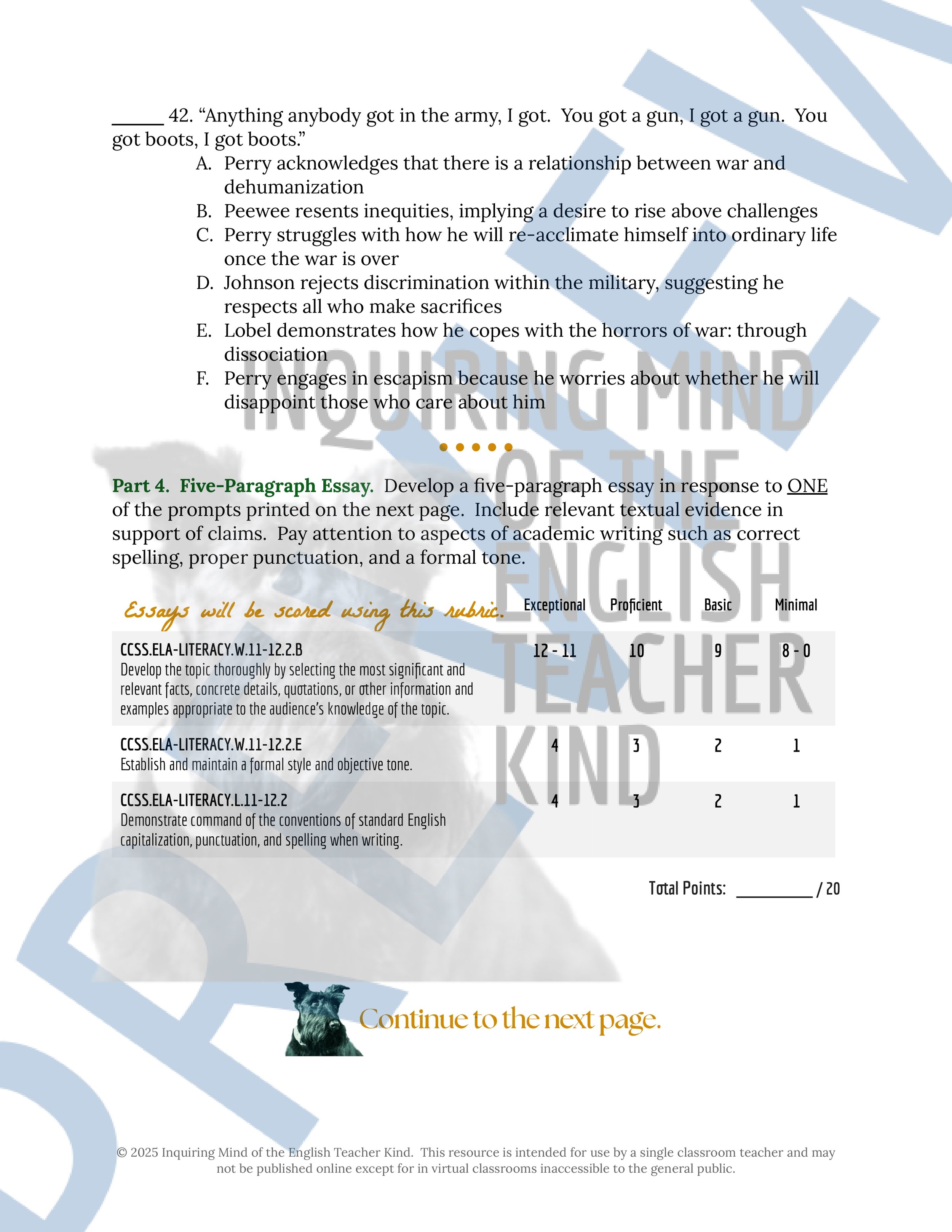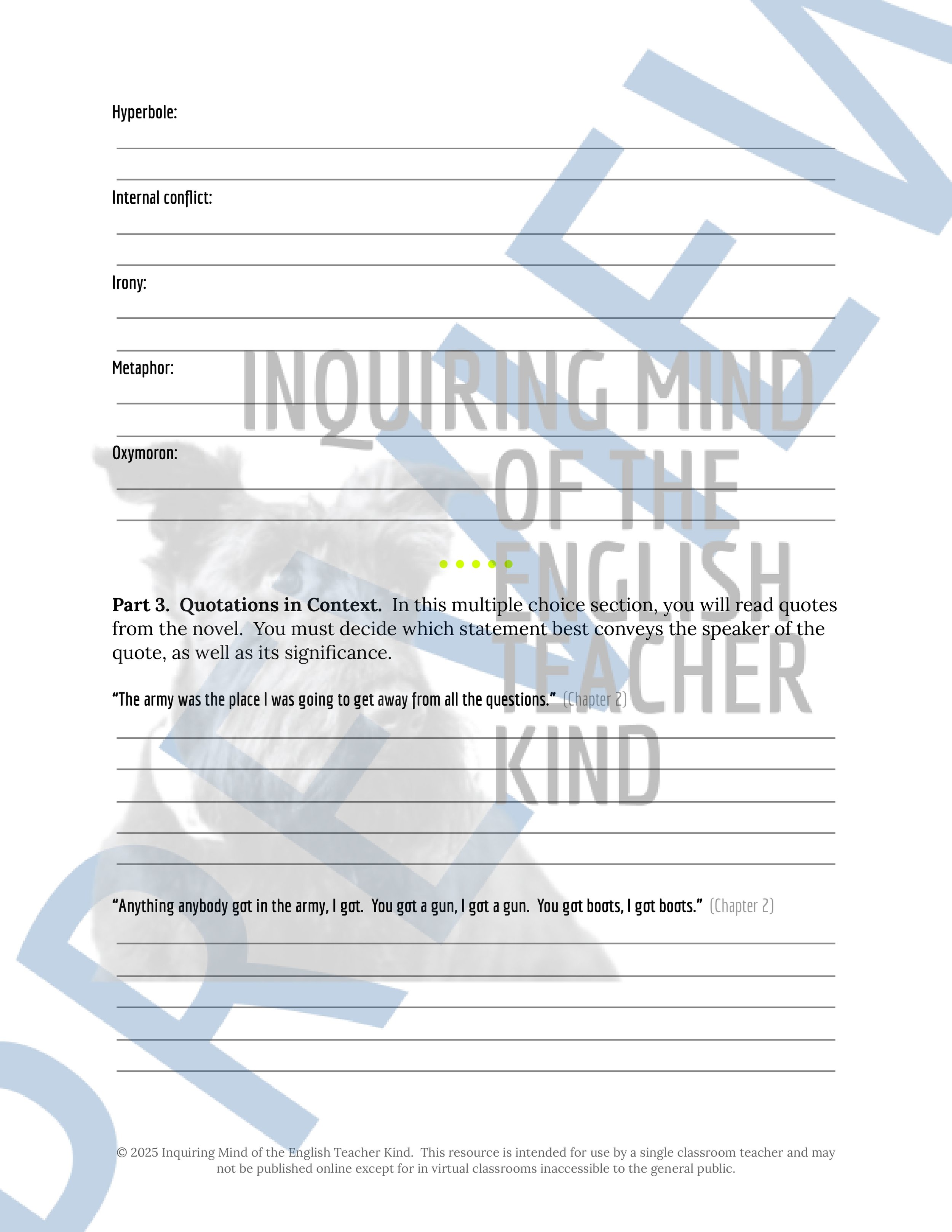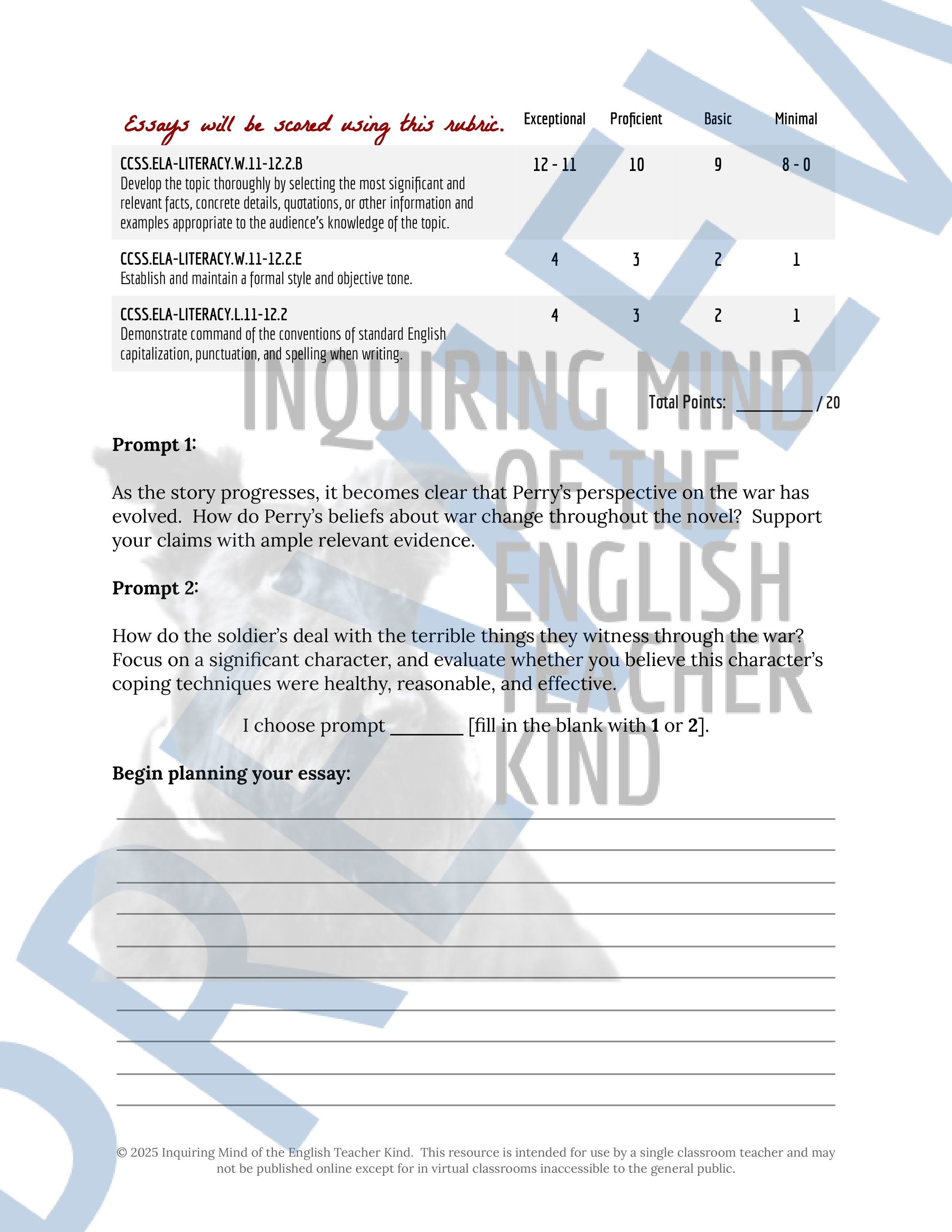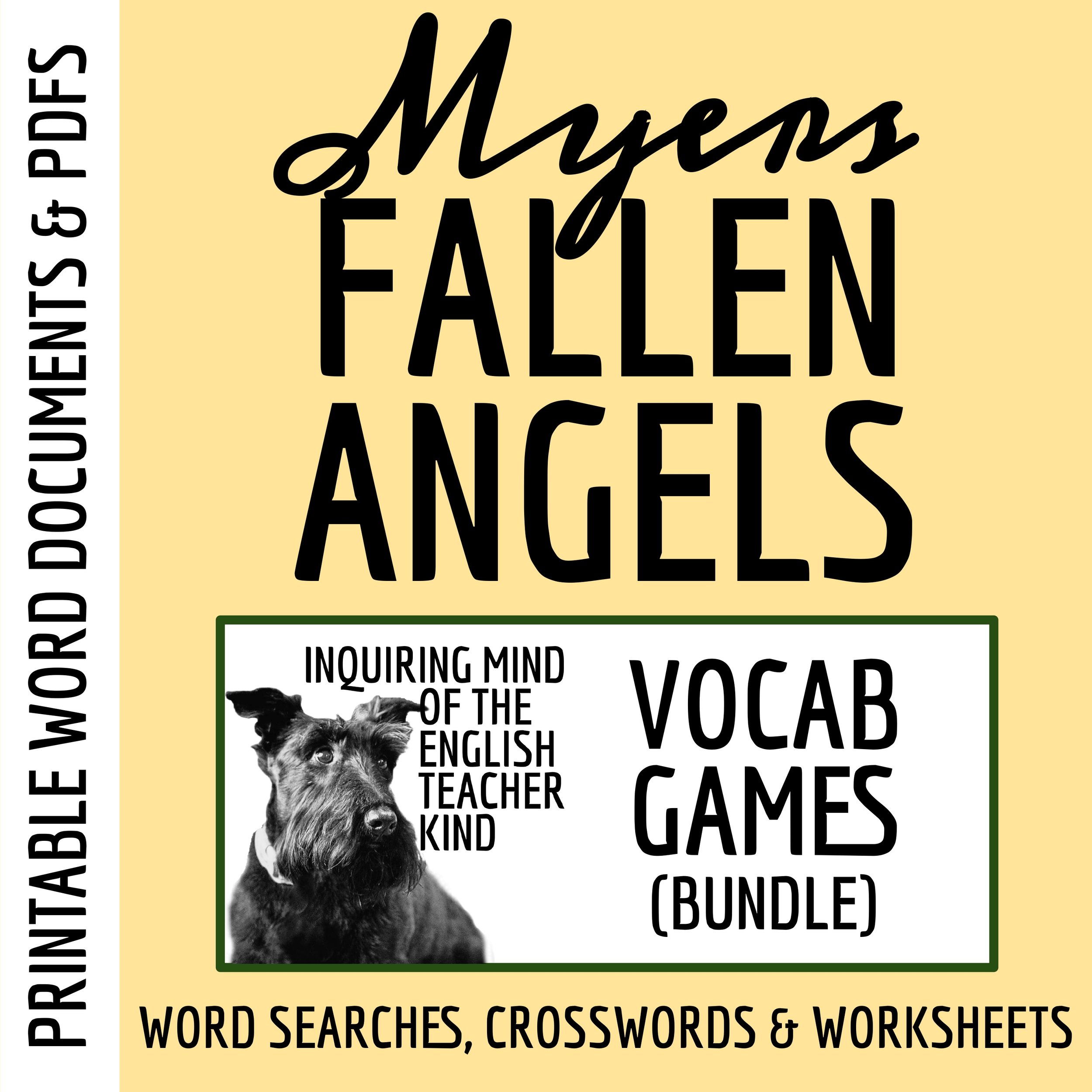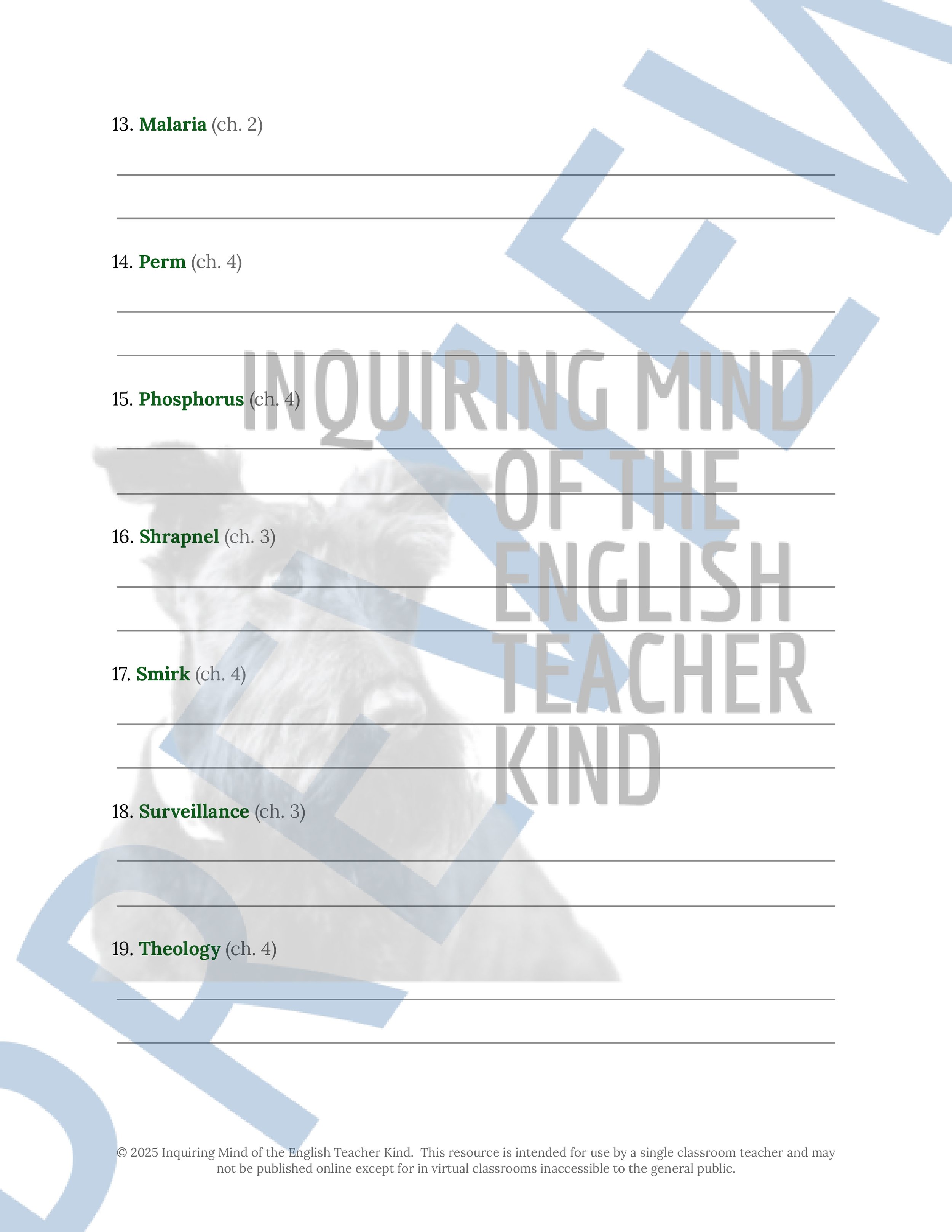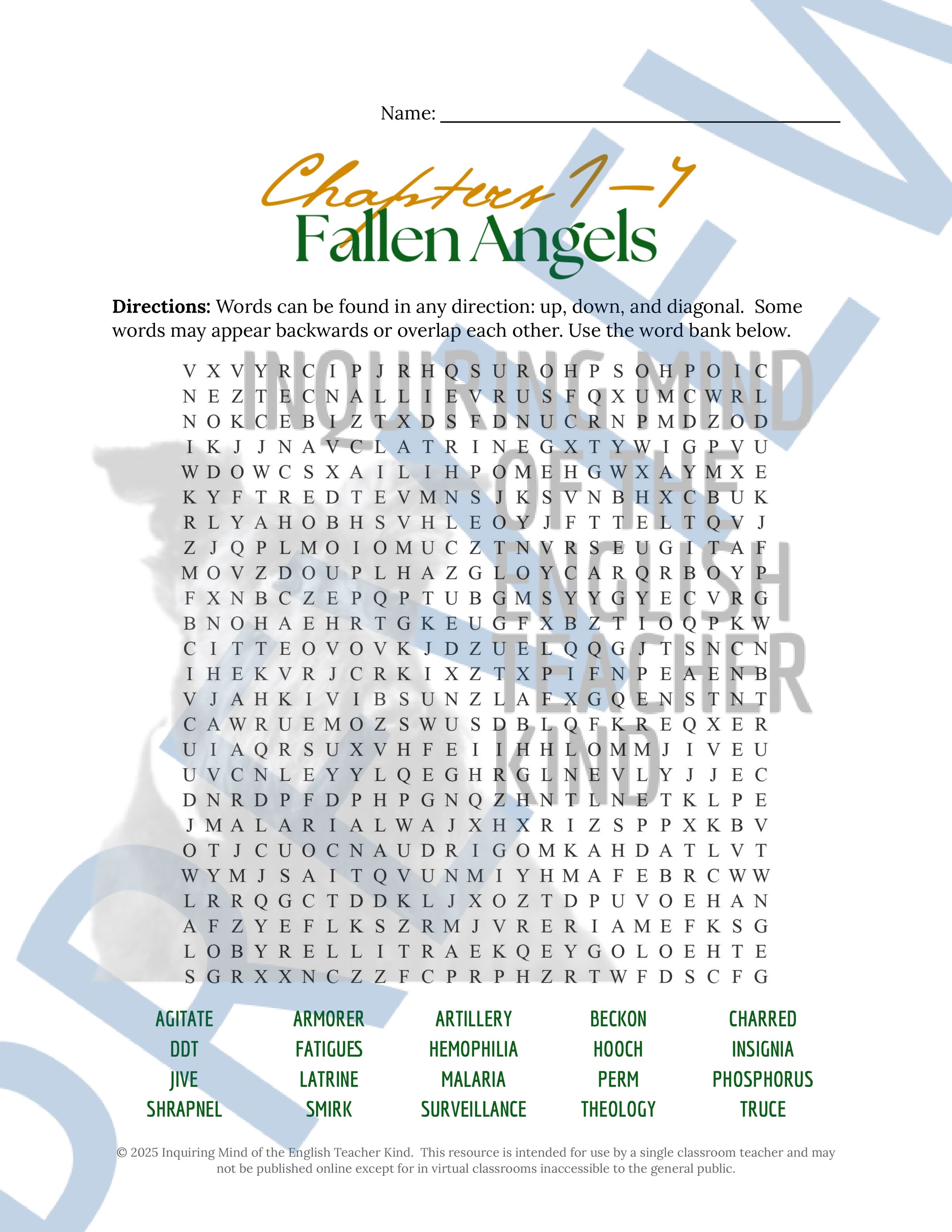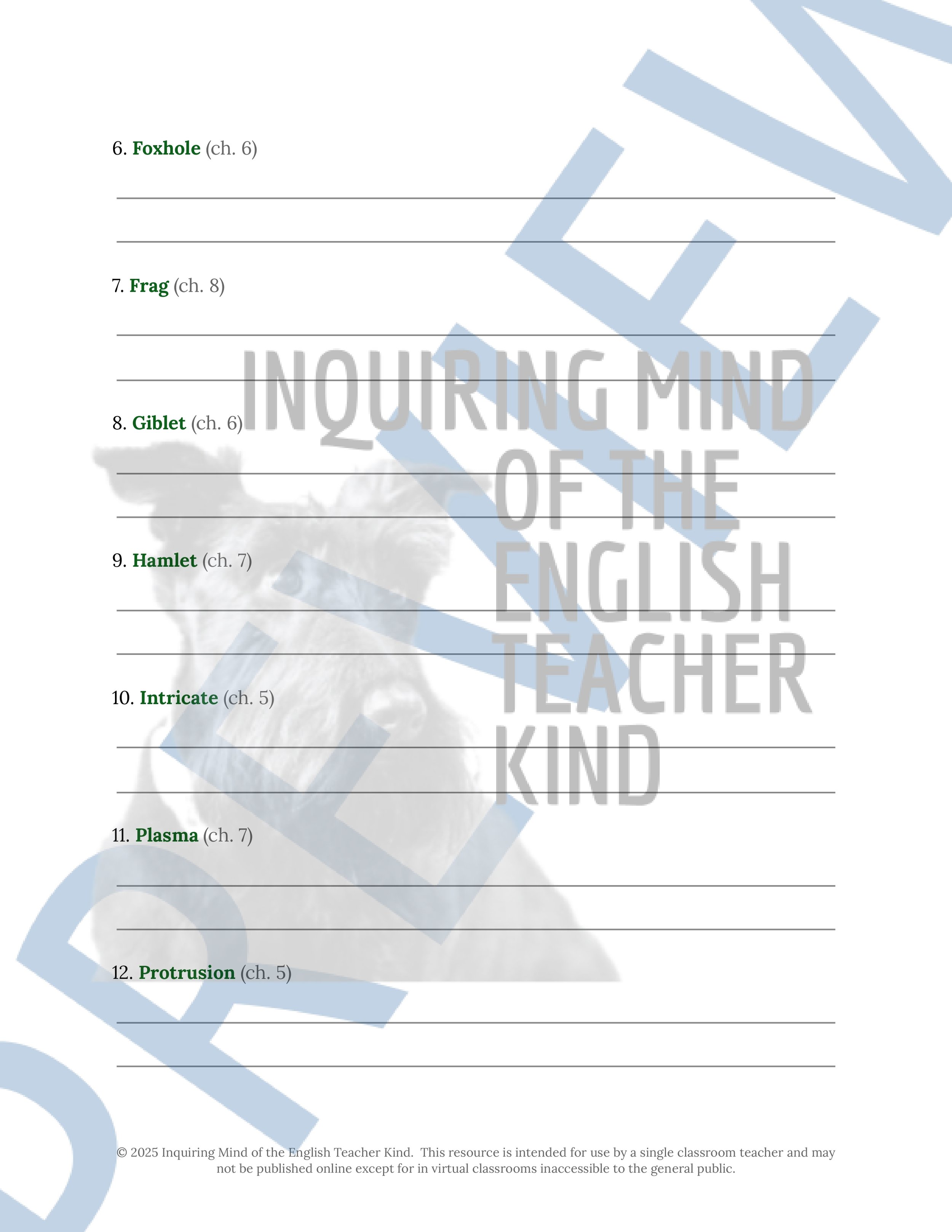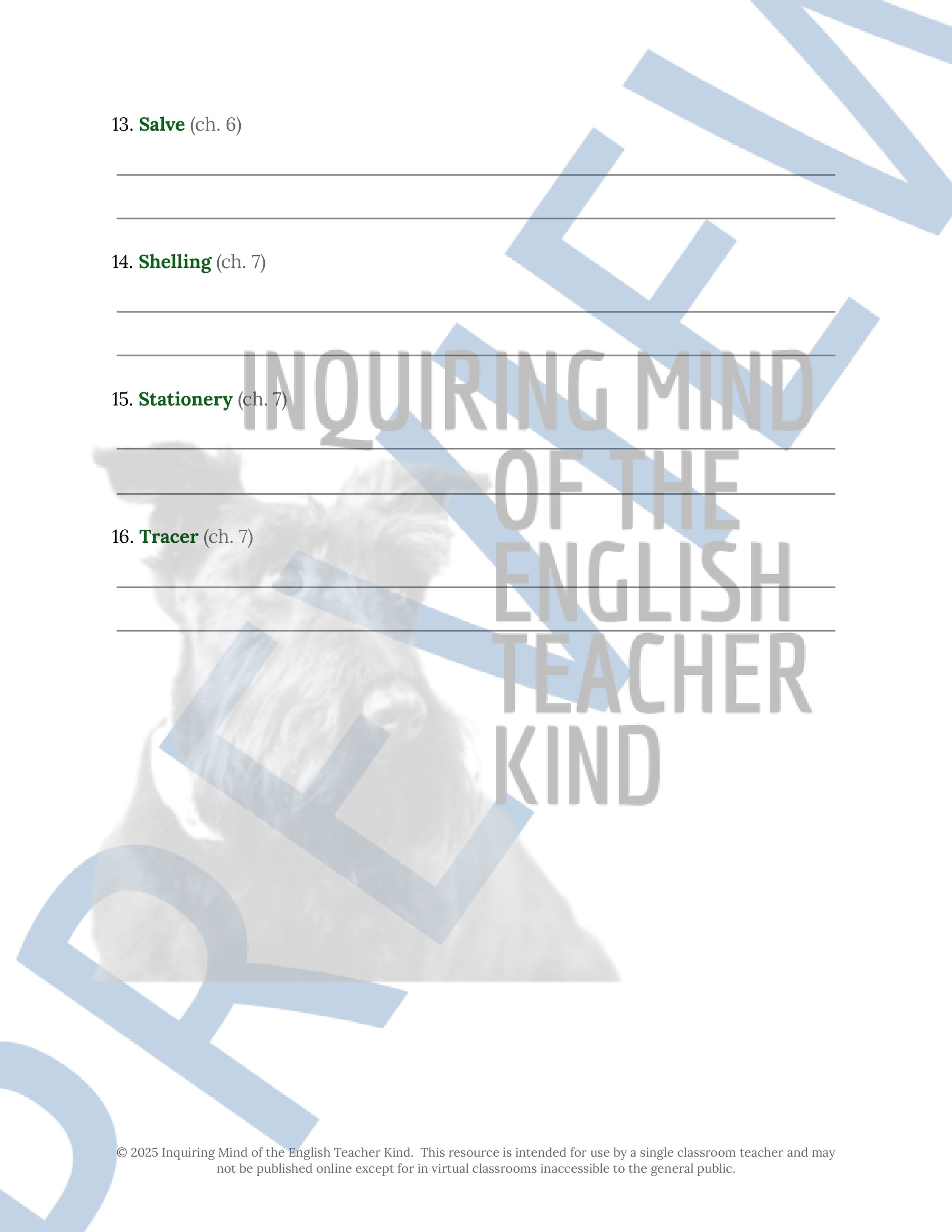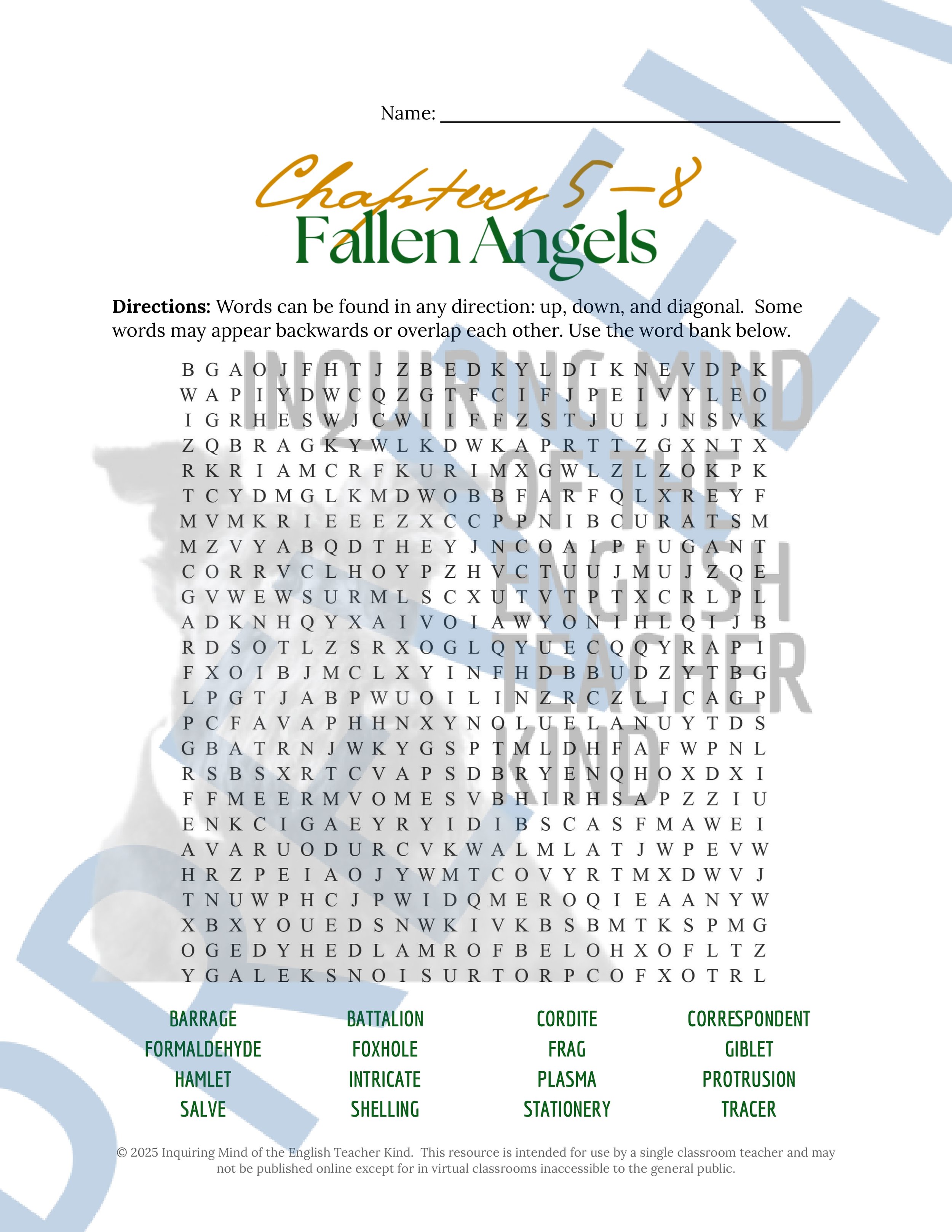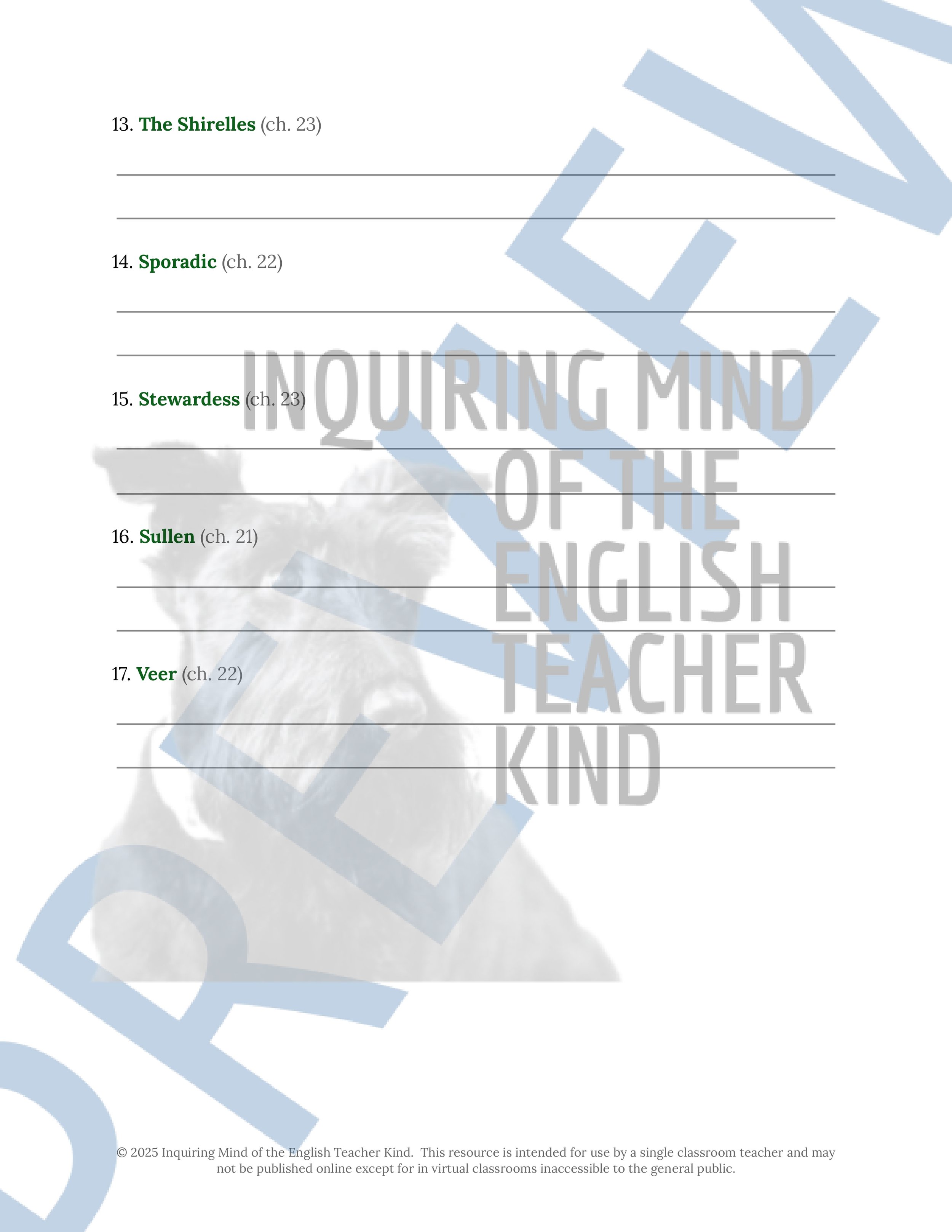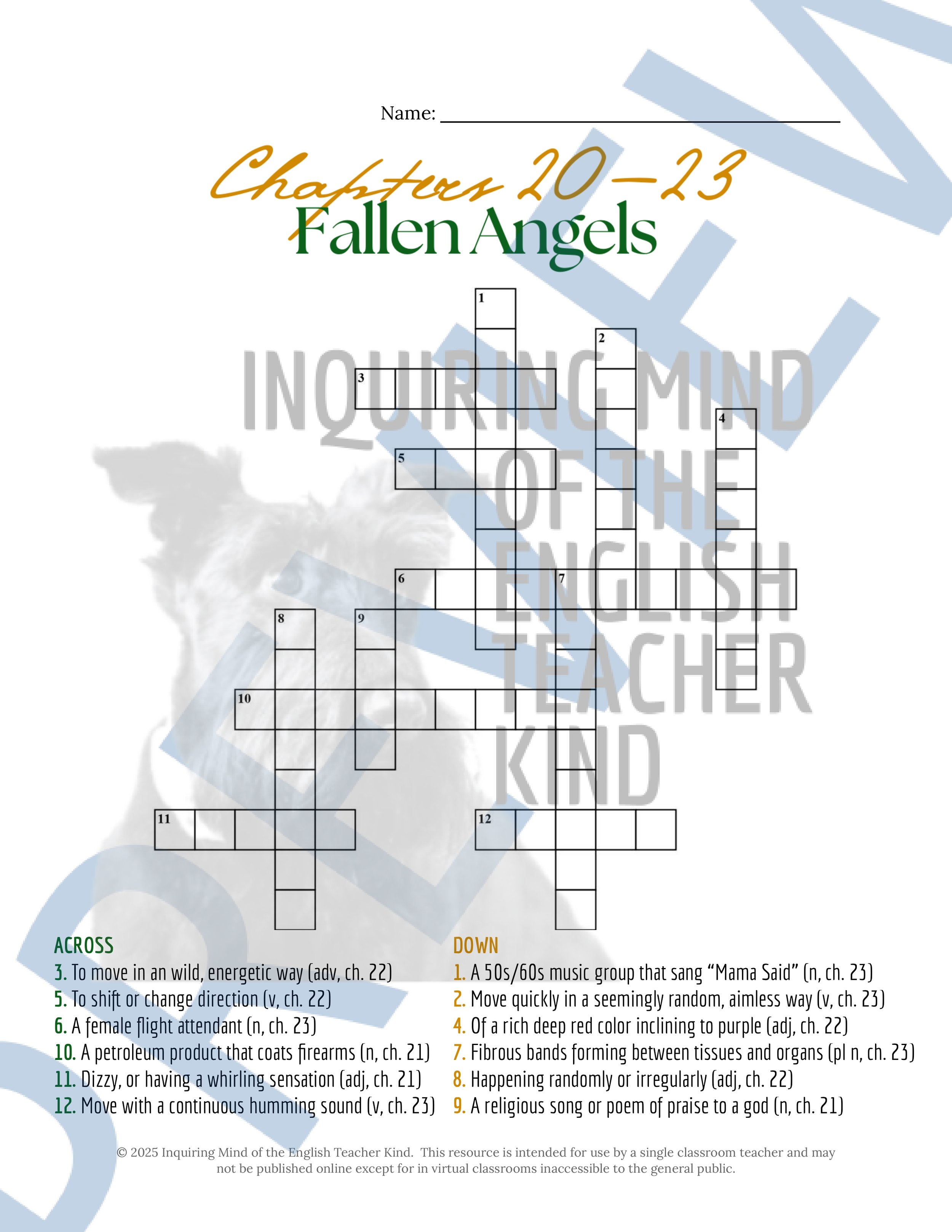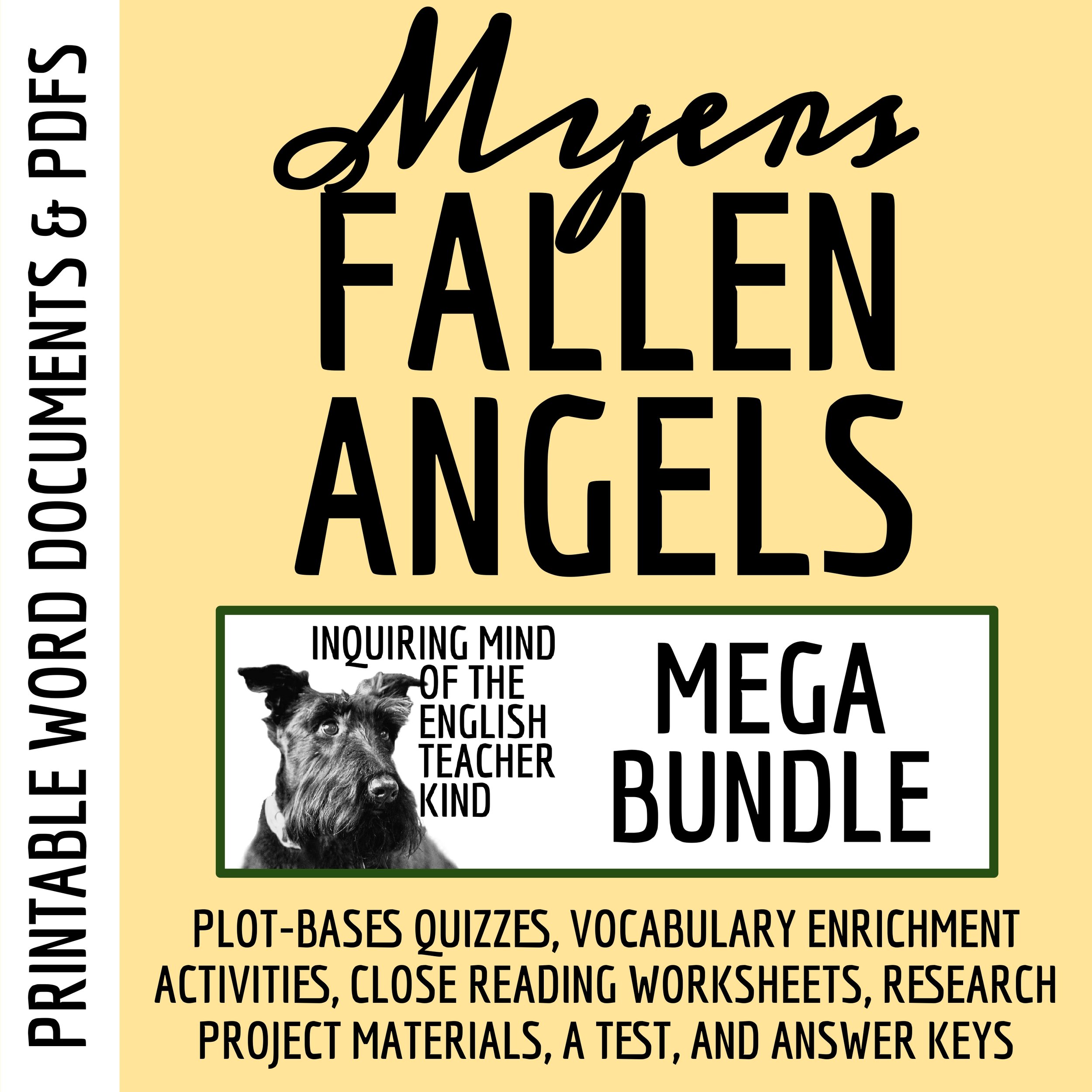 Image 1 of 81
Image 1 of 81

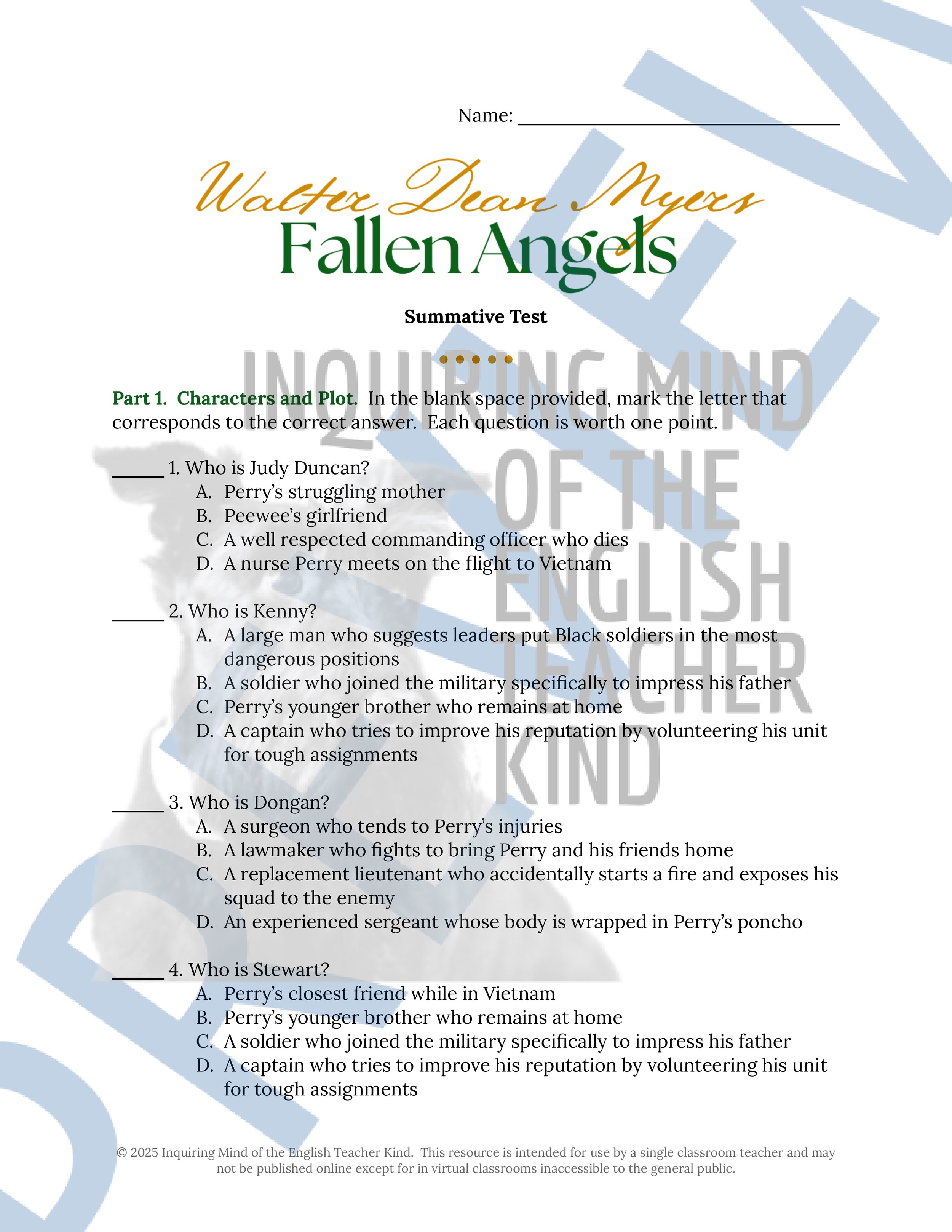 Image 2 of 81
Image 2 of 81

 Image 3 of 81
Image 3 of 81

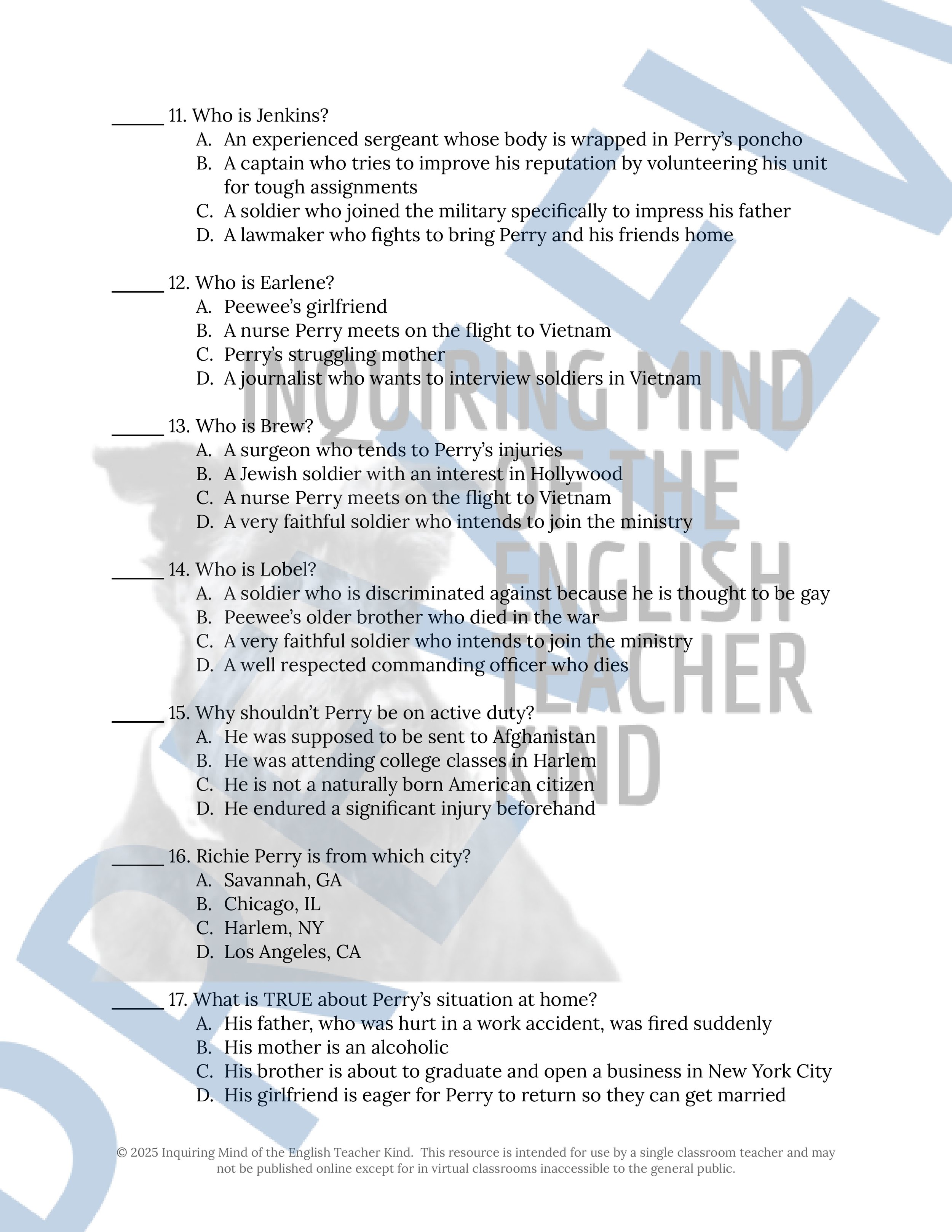 Image 4 of 81
Image 4 of 81

 Image 5 of 81
Image 5 of 81

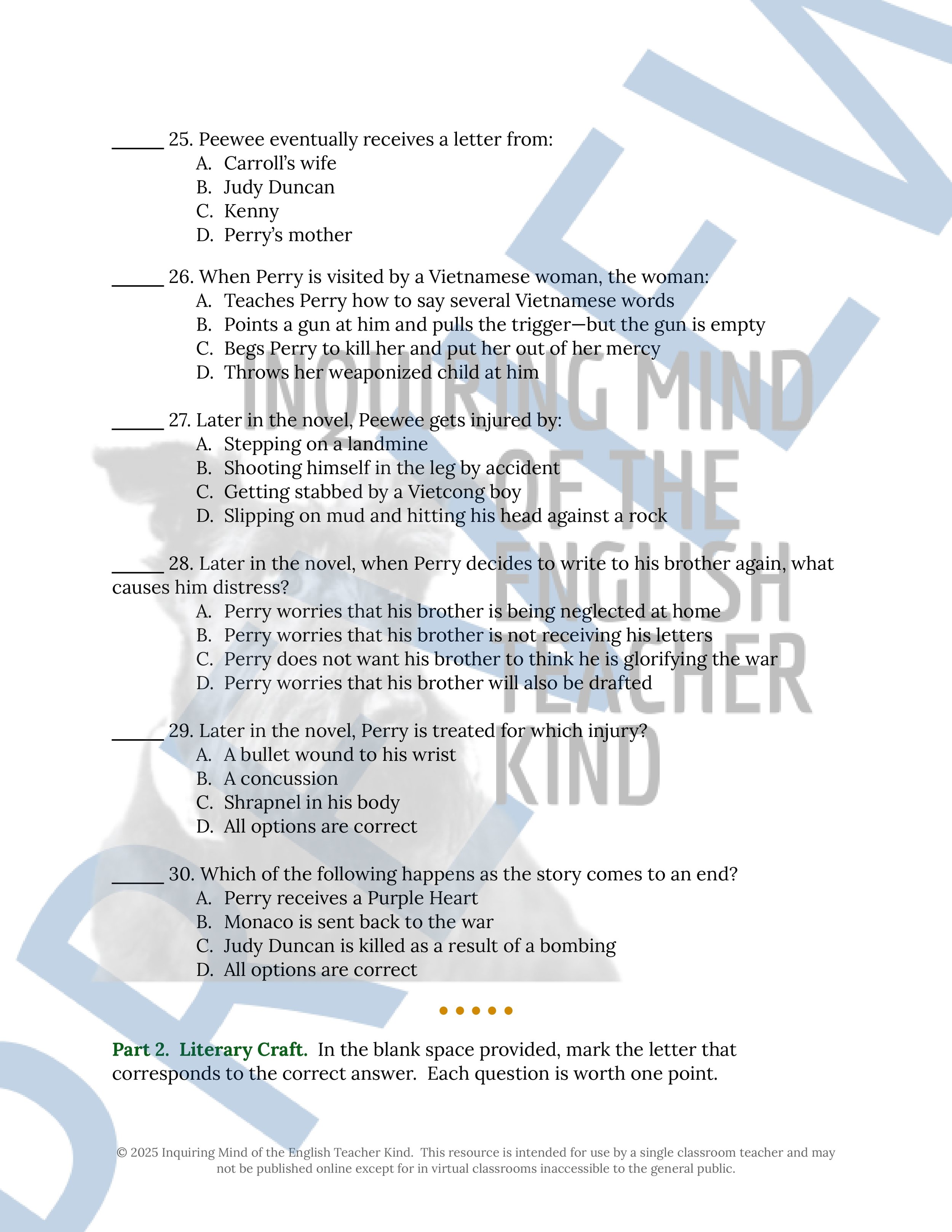 Image 6 of 81
Image 6 of 81

 Image 7 of 81
Image 7 of 81

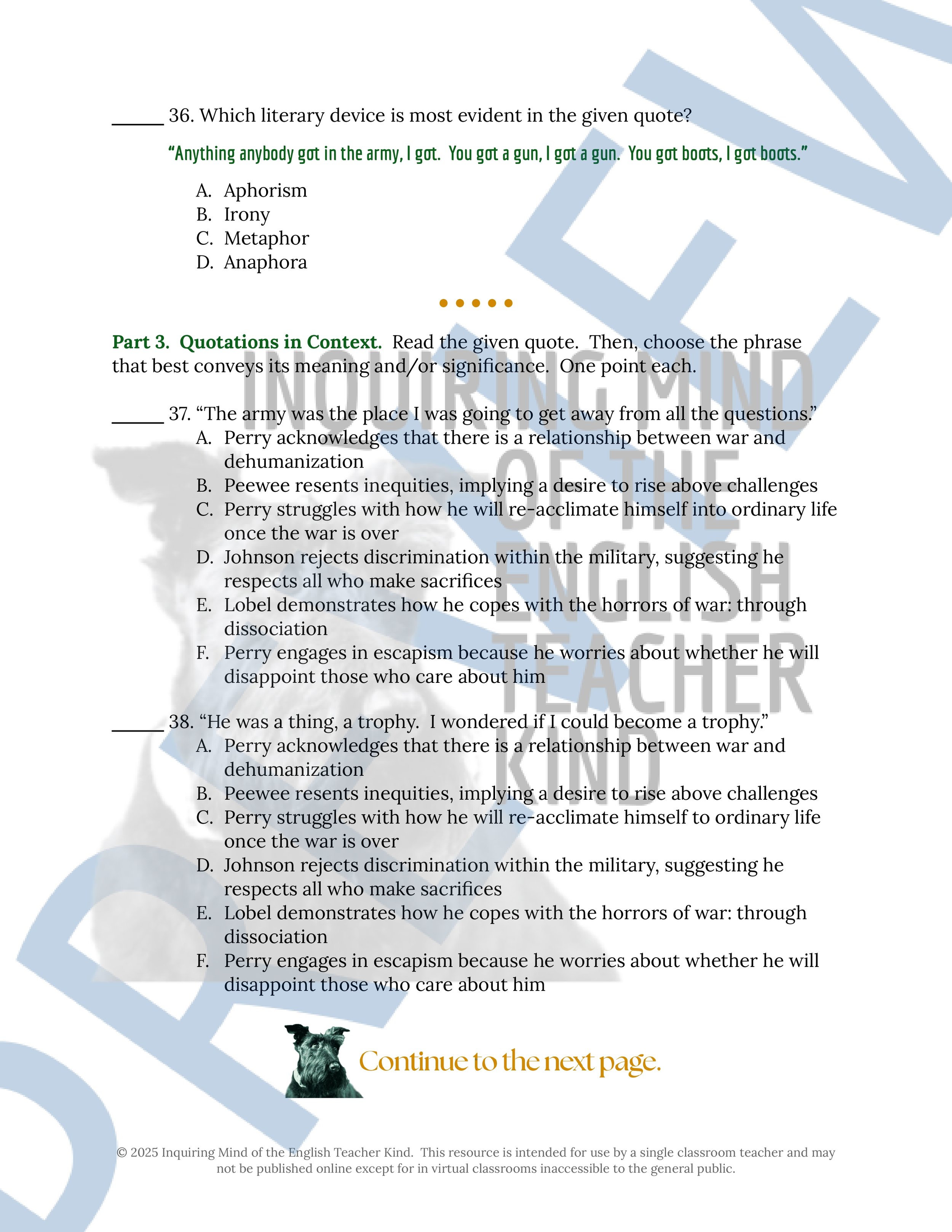 Image 8 of 81
Image 8 of 81

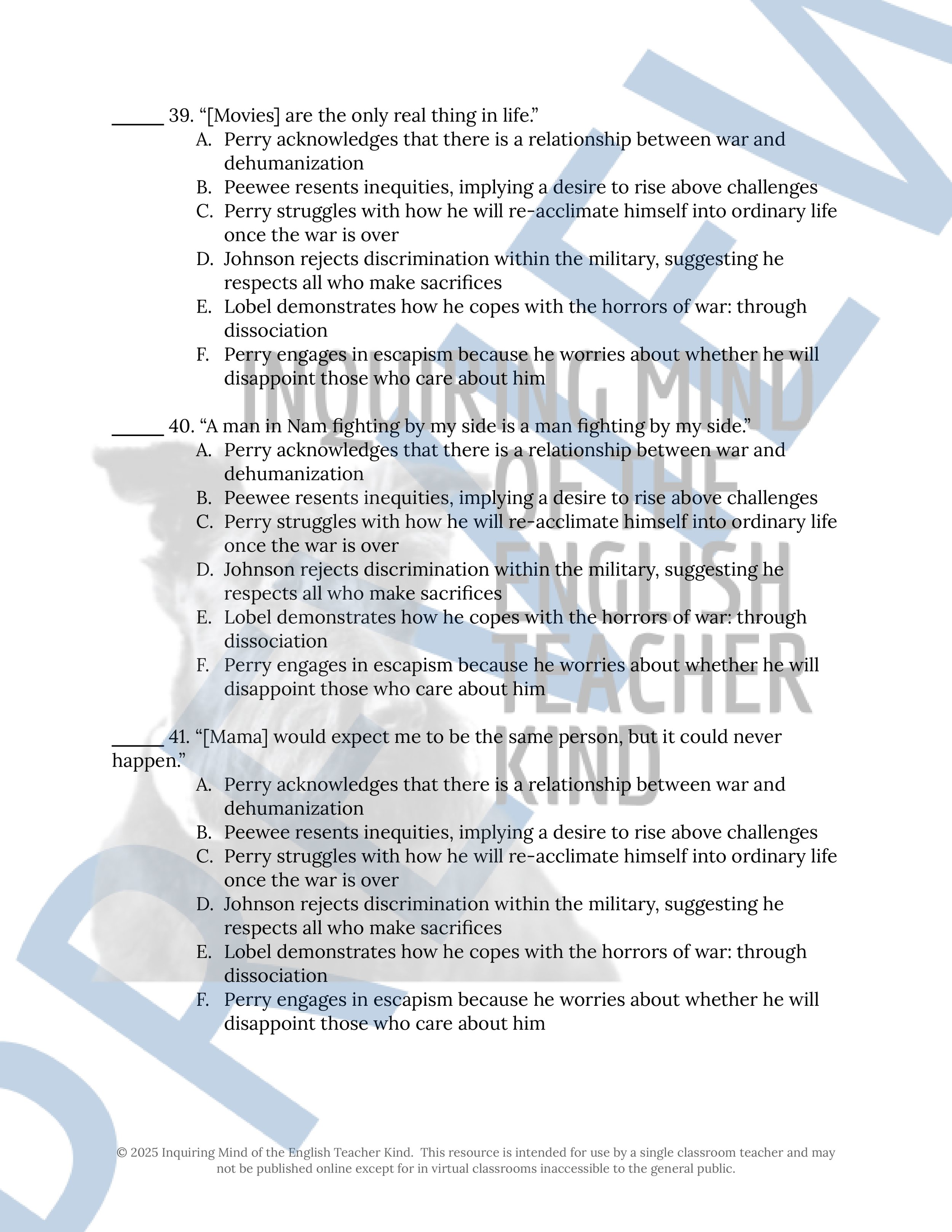 Image 9 of 81
Image 9 of 81

 Image 10 of 81
Image 10 of 81

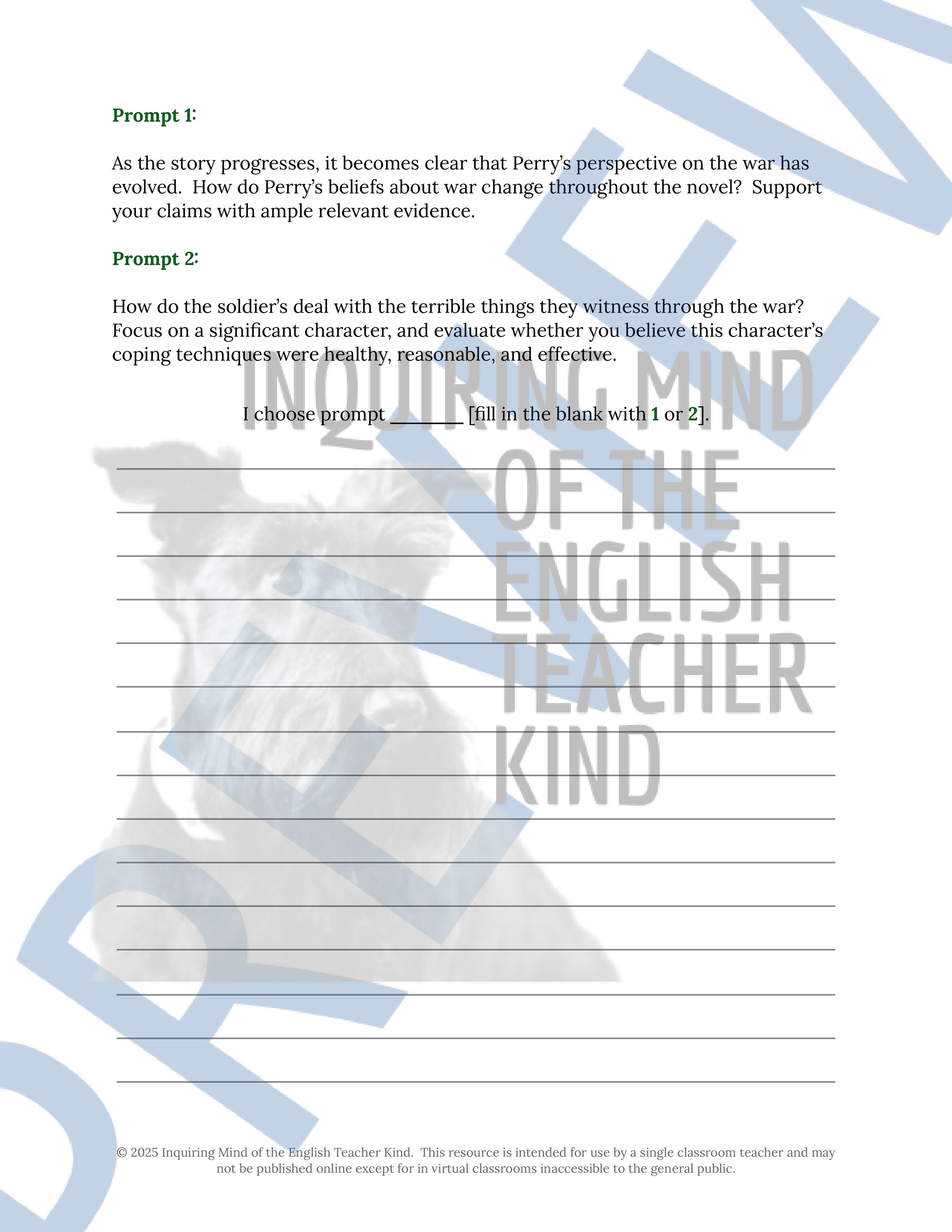 Image 11 of 81
Image 11 of 81

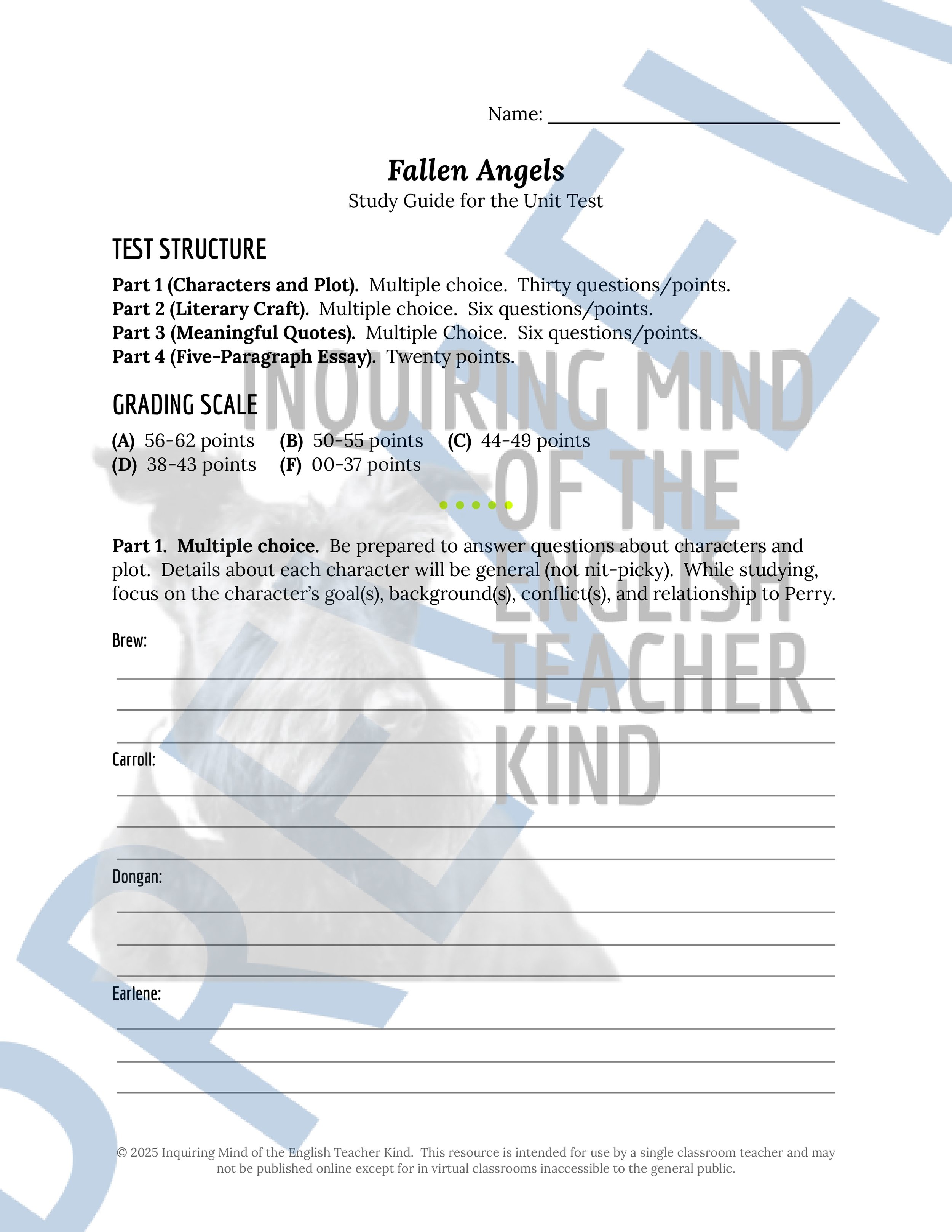 Image 12 of 81
Image 12 of 81

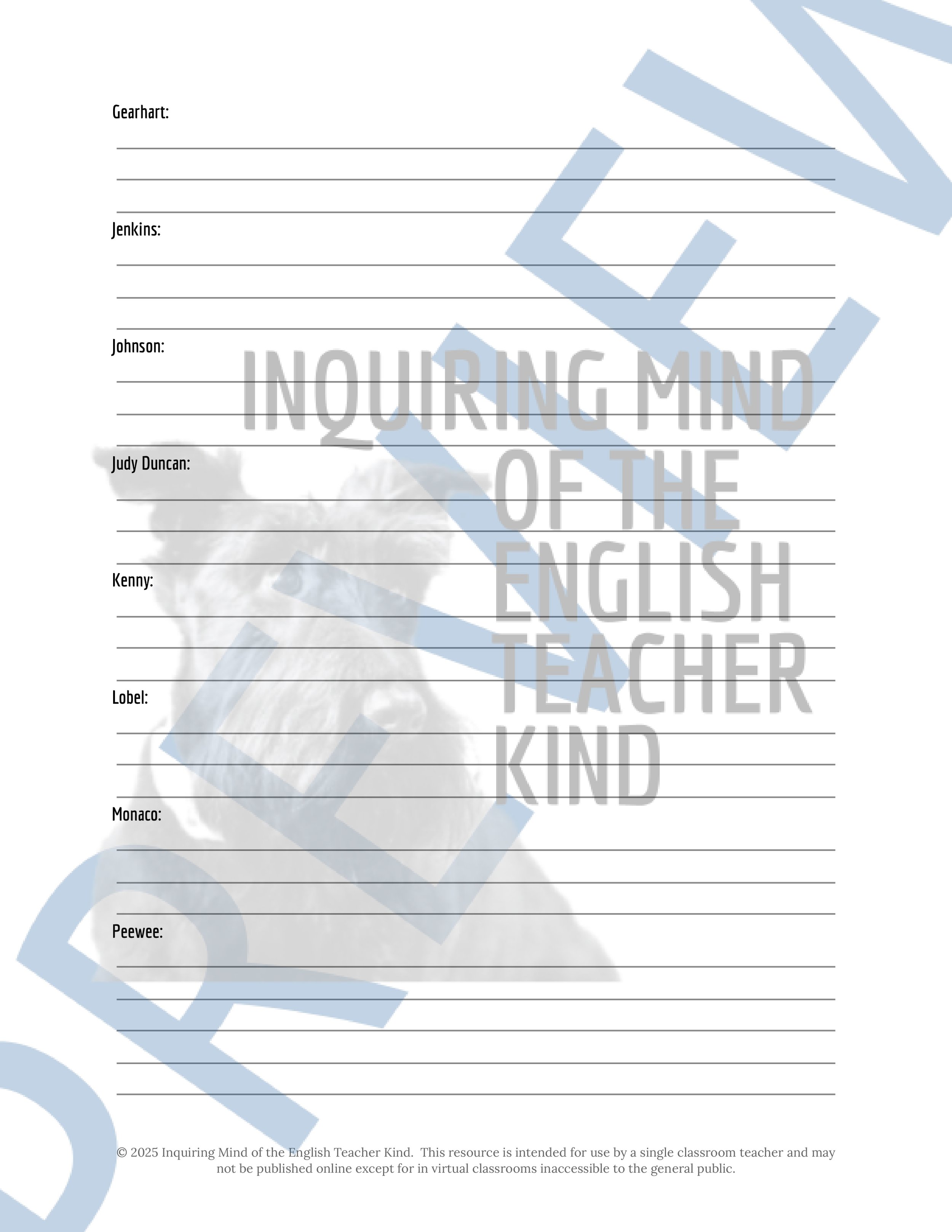 Image 13 of 81
Image 13 of 81

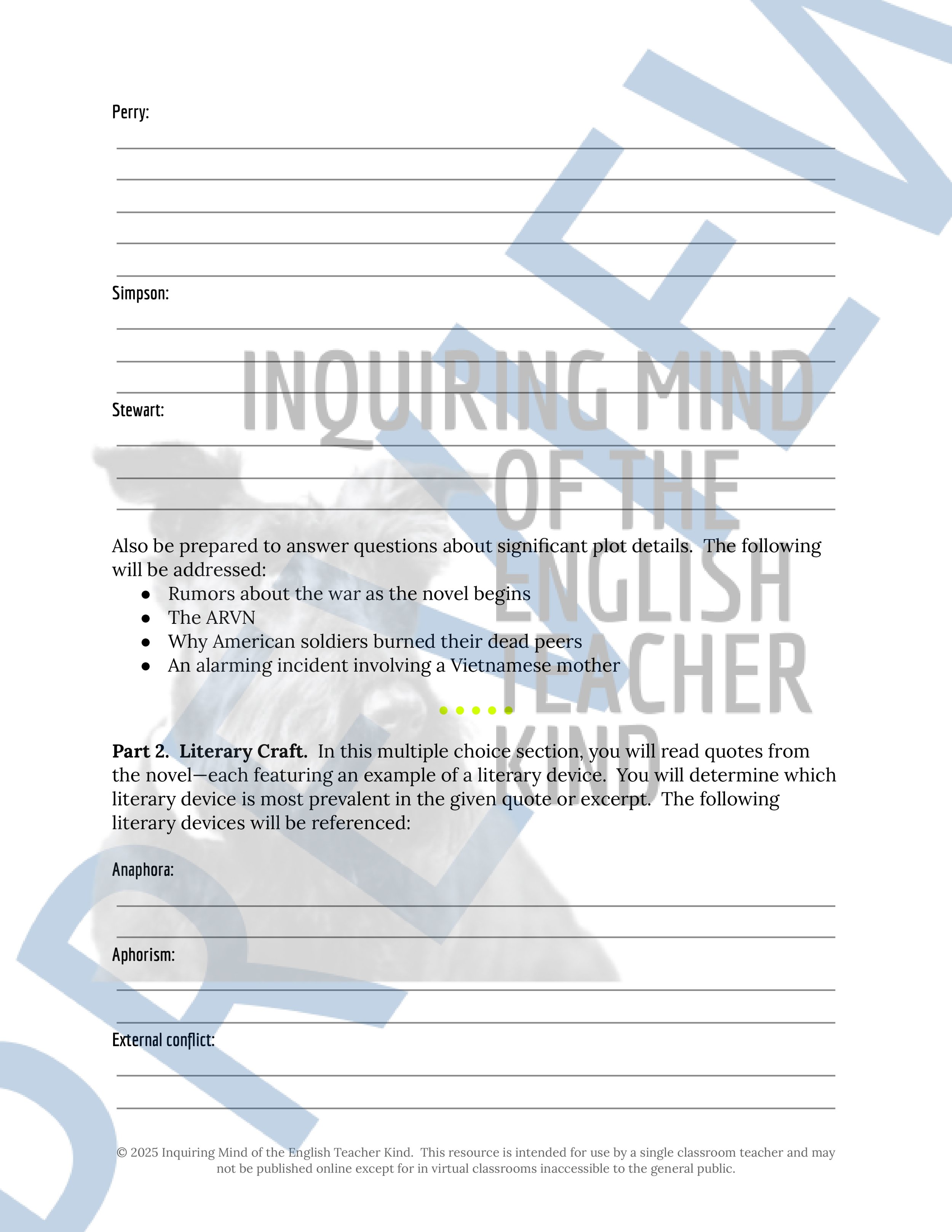 Image 14 of 81
Image 14 of 81

 Image 15 of 81
Image 15 of 81

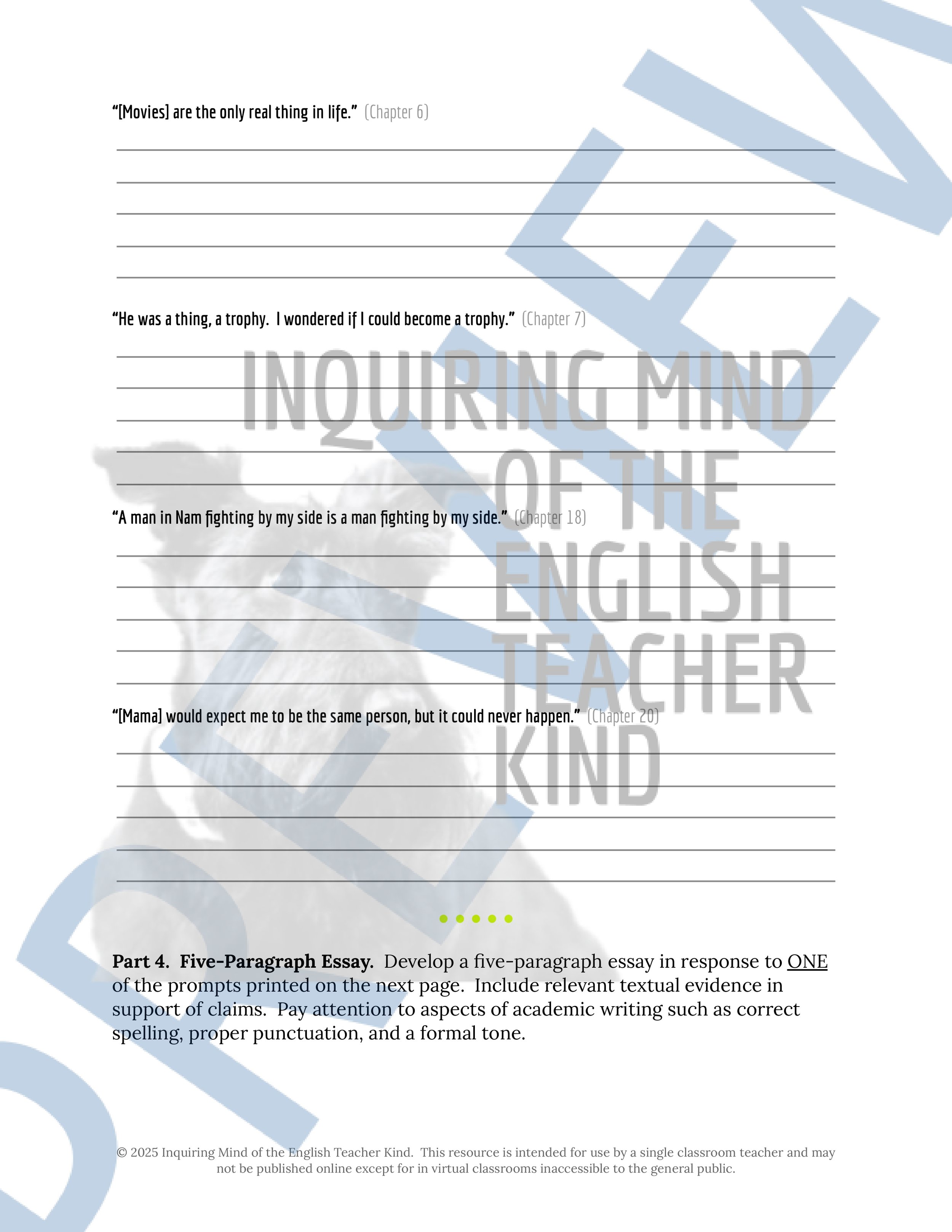 Image 16 of 81
Image 16 of 81

 Image 17 of 81
Image 17 of 81

 Image 18 of 81
Image 18 of 81

 Image 19 of 81
Image 19 of 81

 Image 20 of 81
Image 20 of 81

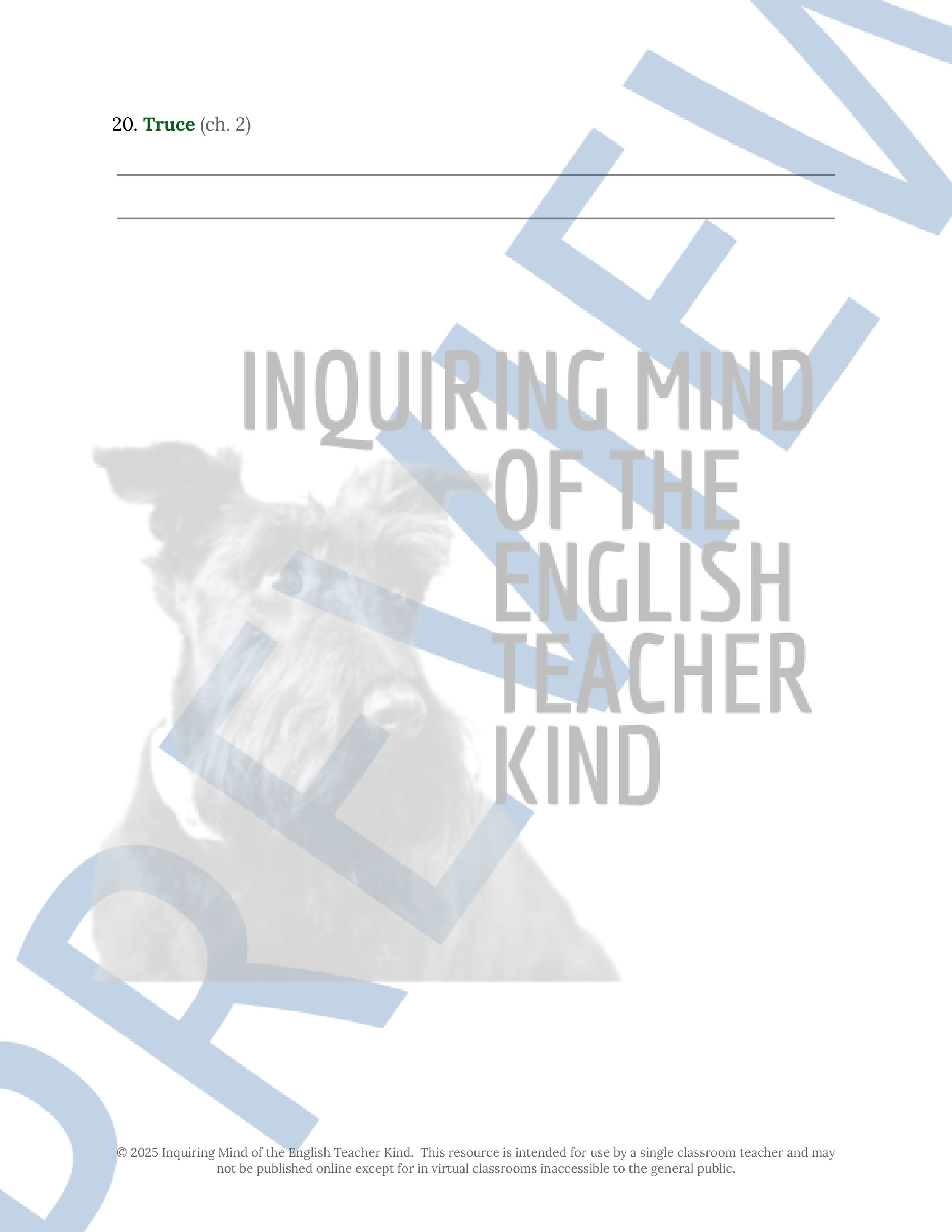 Image 21 of 81
Image 21 of 81

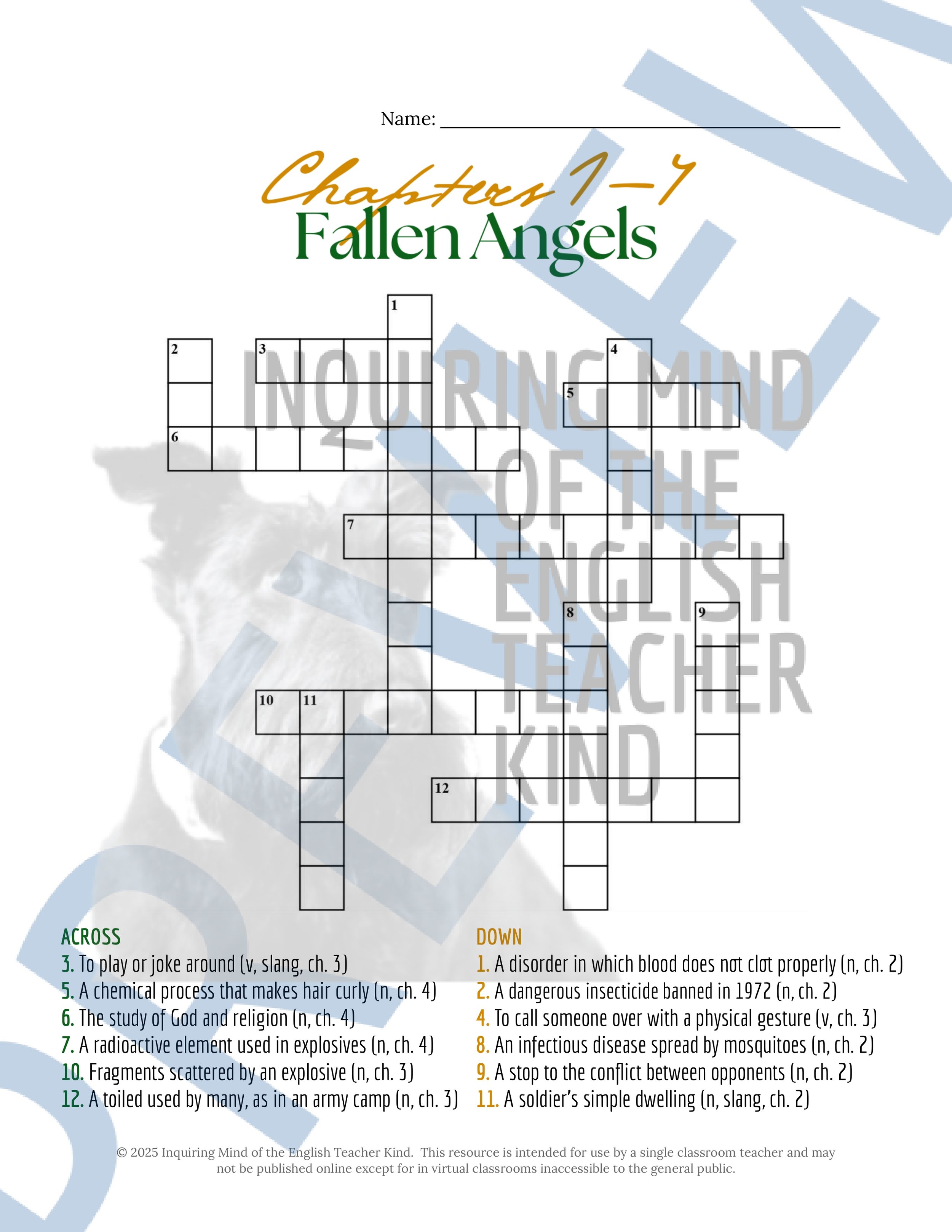 Image 22 of 81
Image 22 of 81

 Image 23 of 81
Image 23 of 81

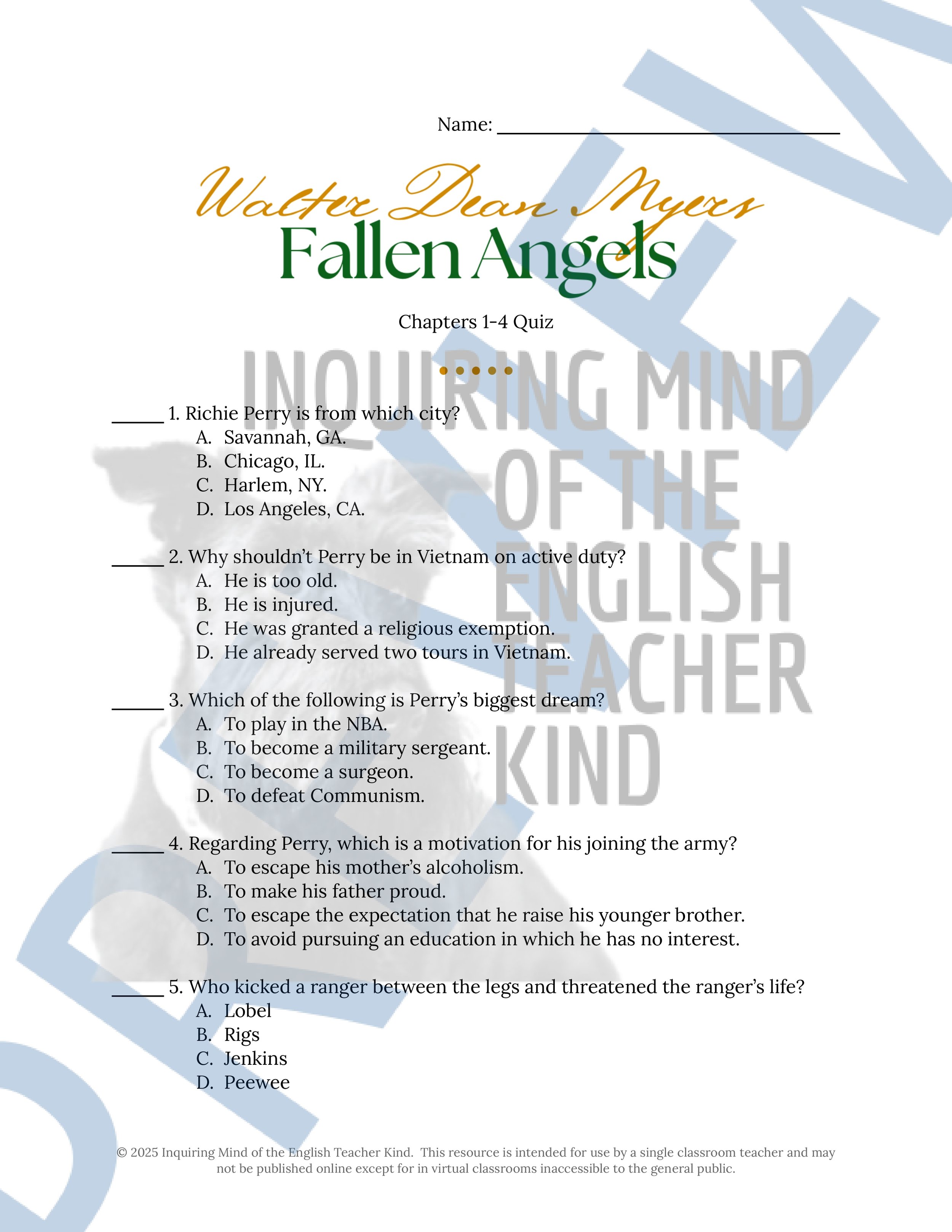 Image 24 of 81
Image 24 of 81

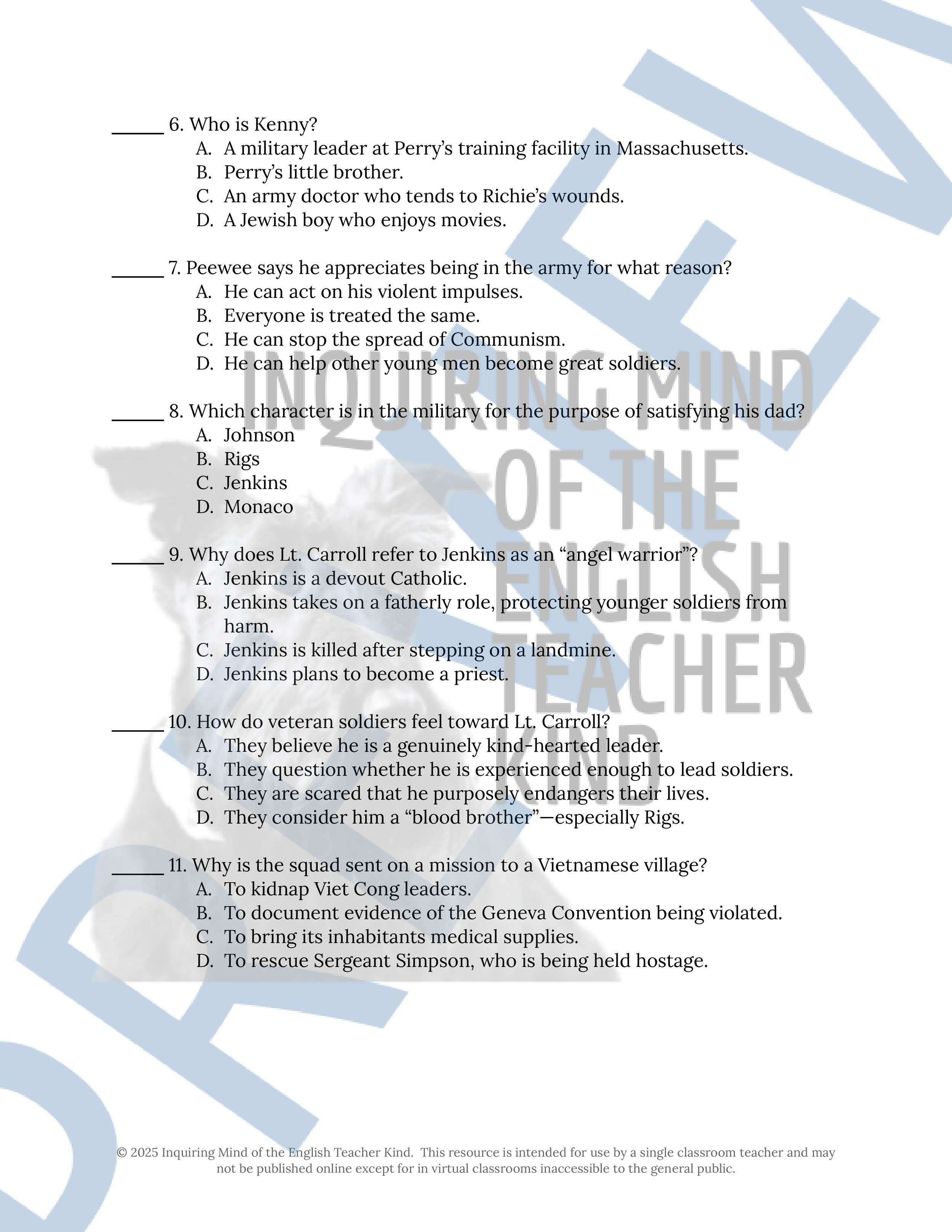 Image 25 of 81
Image 25 of 81

 Image 26 of 81
Image 26 of 81

 Image 27 of 81
Image 27 of 81

 Image 28 of 81
Image 28 of 81

 Image 29 of 81
Image 29 of 81

 Image 30 of 81
Image 30 of 81

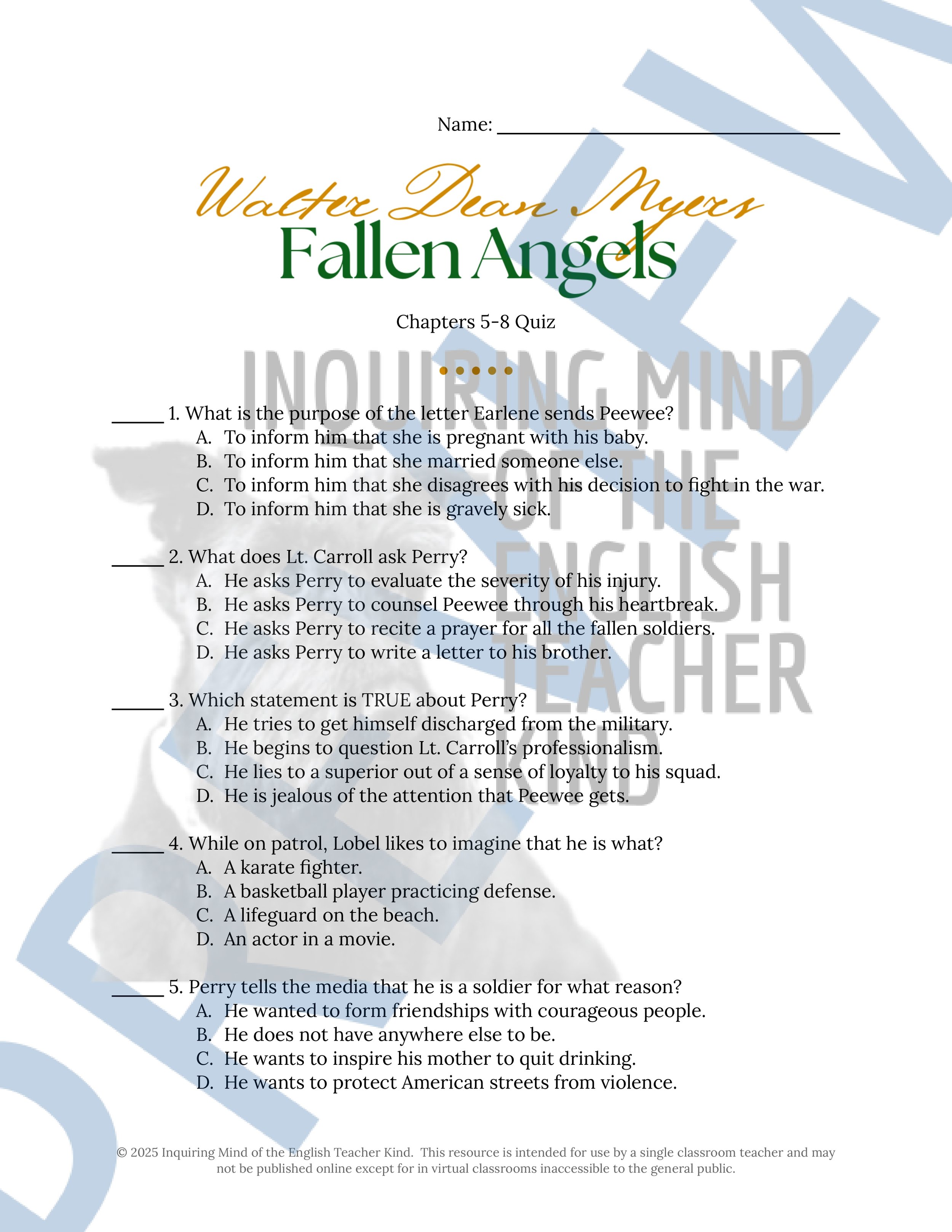 Image 31 of 81
Image 31 of 81

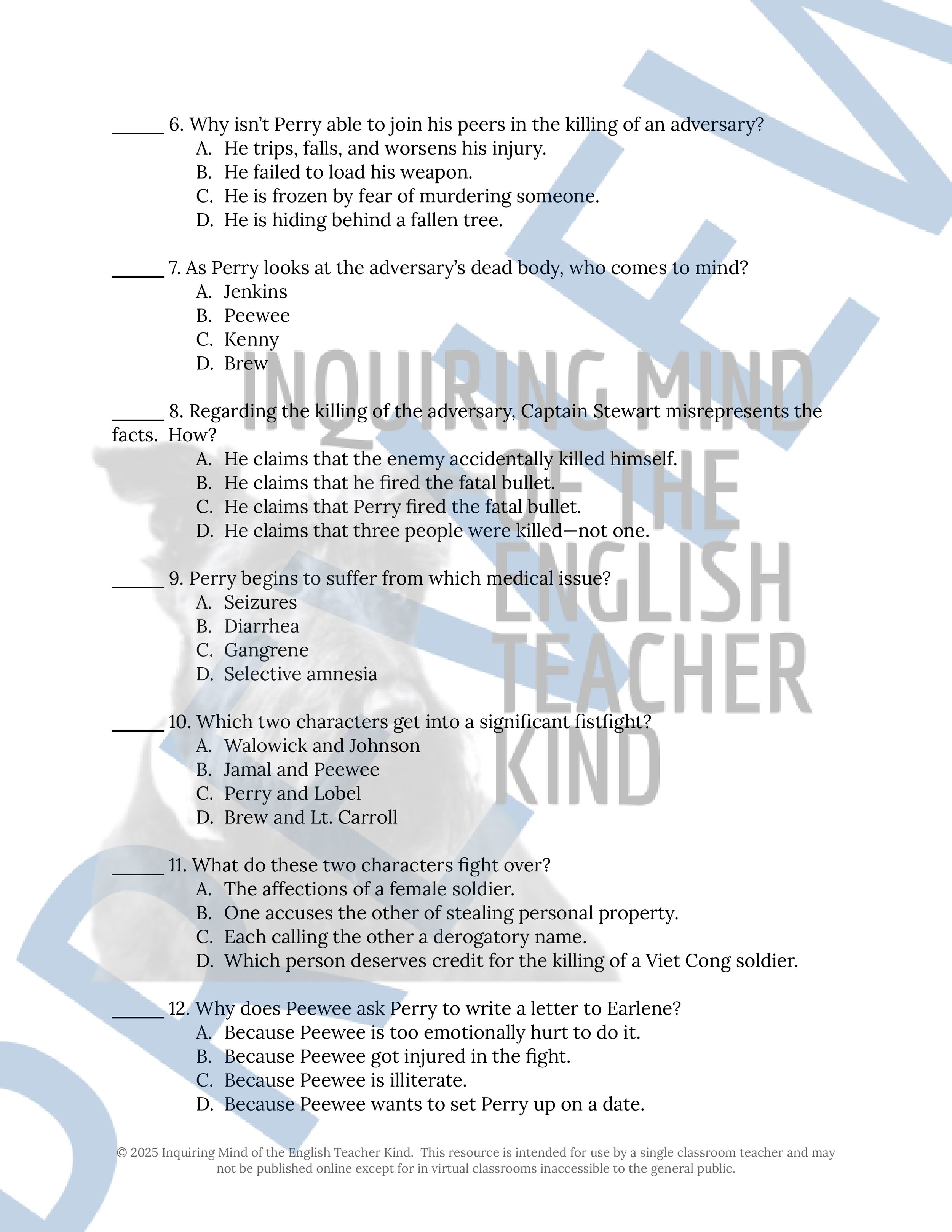 Image 32 of 81
Image 32 of 81

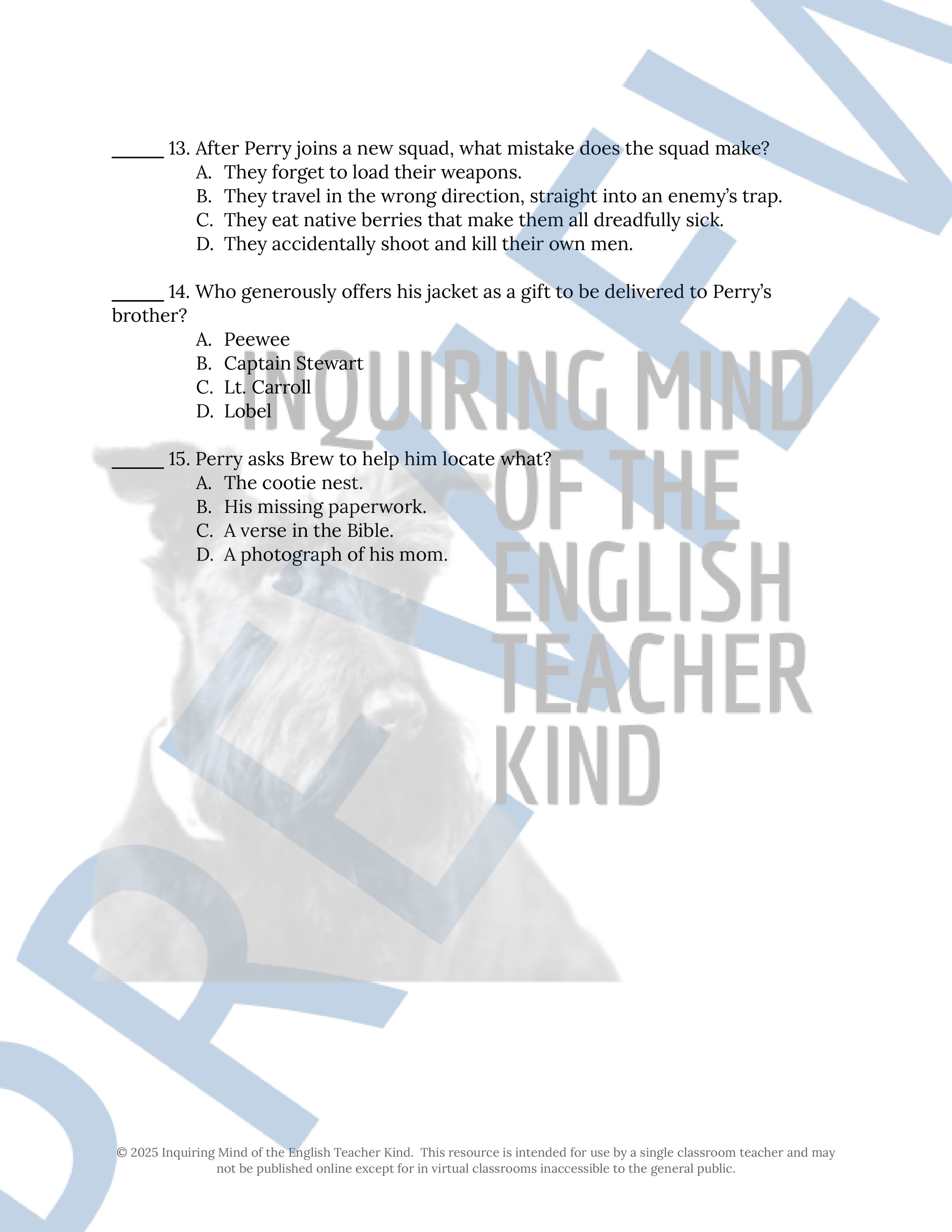 Image 33 of 81
Image 33 of 81

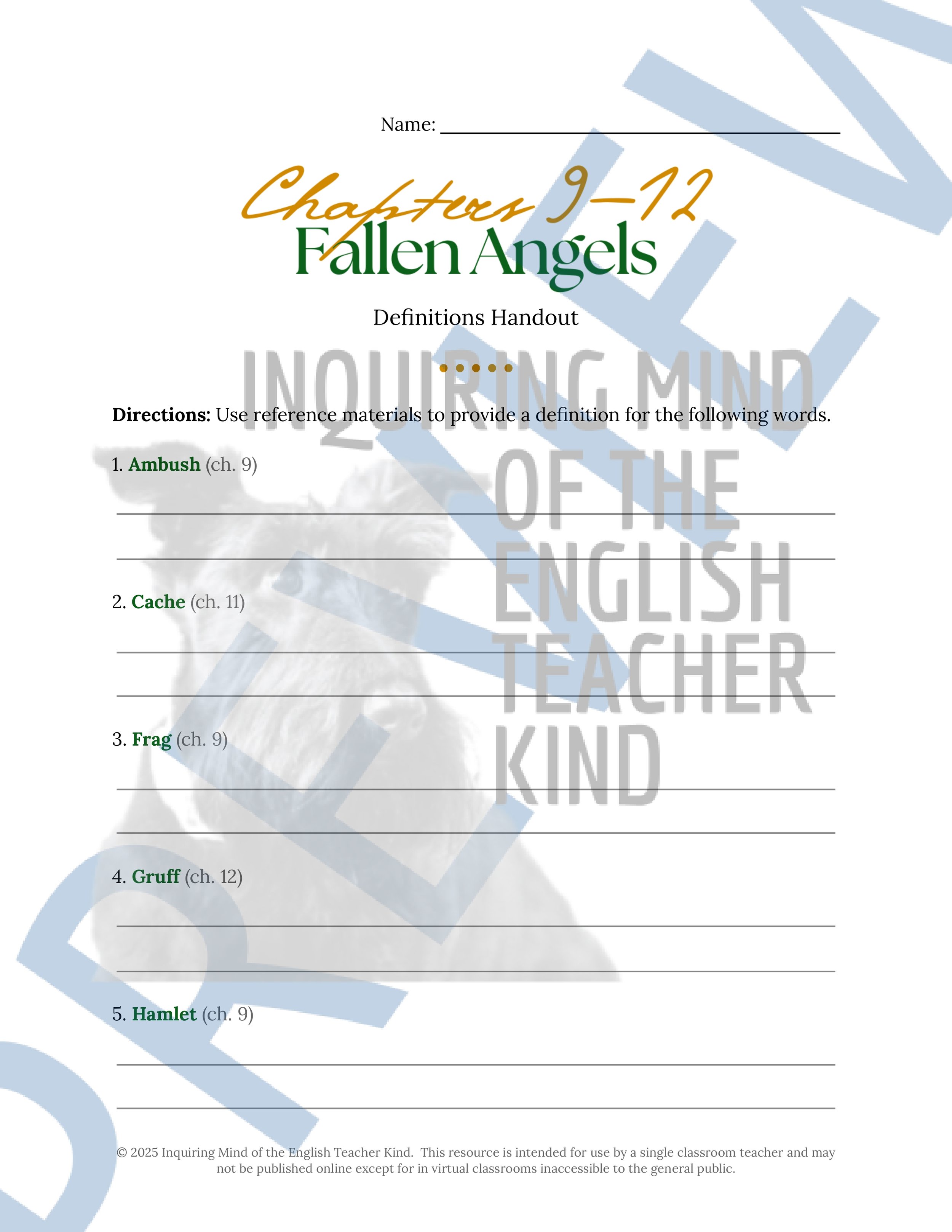 Image 34 of 81
Image 34 of 81

 Image 35 of 81
Image 35 of 81

 Image 36 of 81
Image 36 of 81

 Image 37 of 81
Image 37 of 81

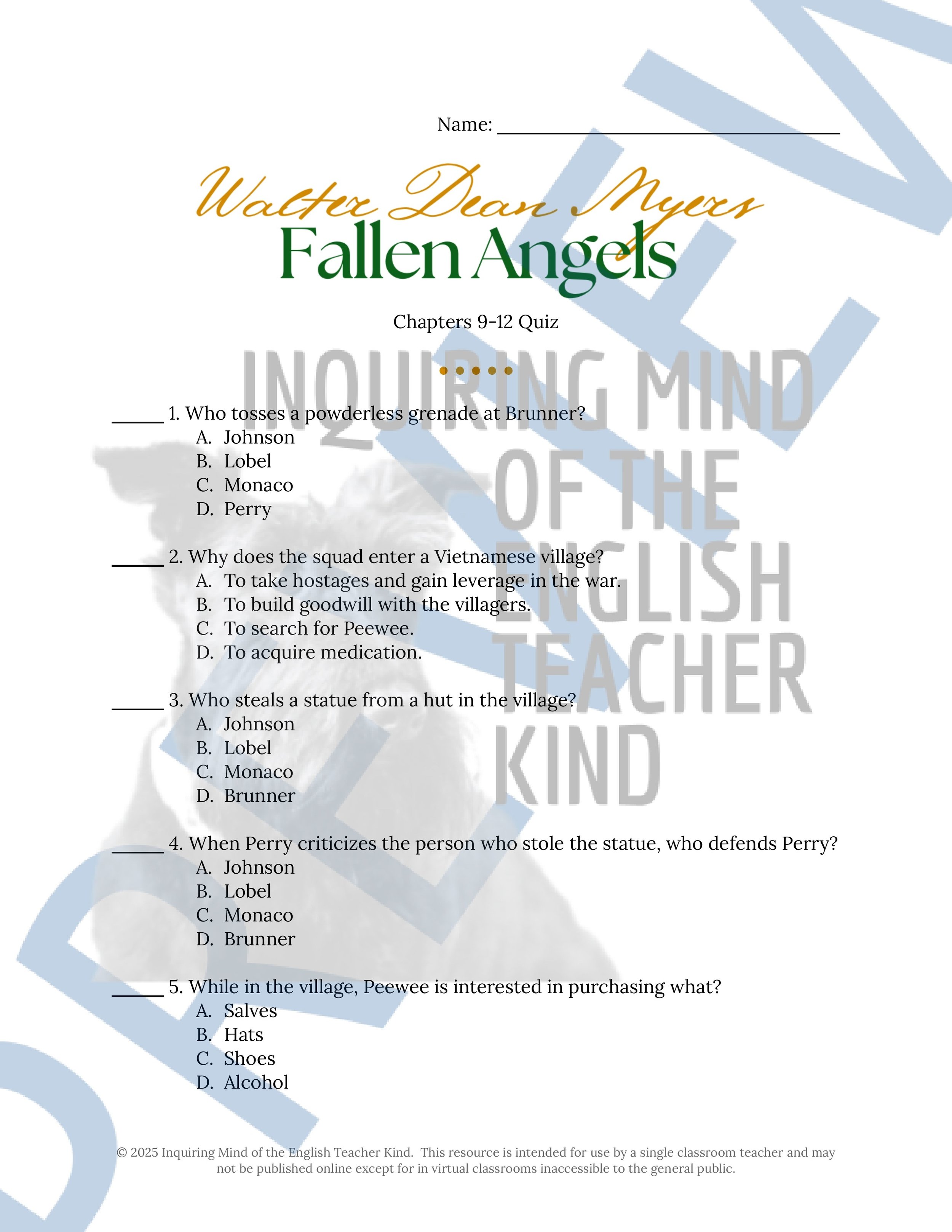 Image 38 of 81
Image 38 of 81

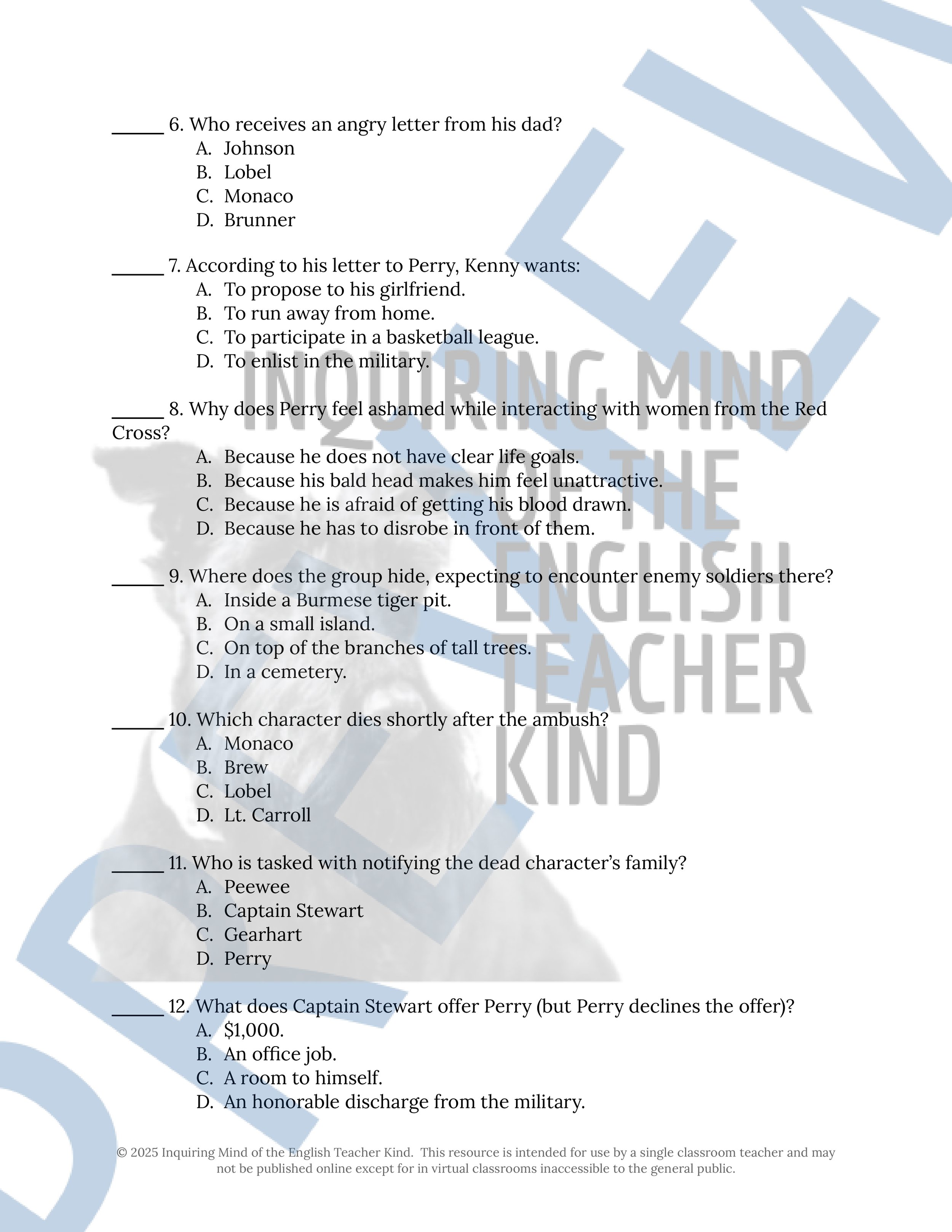 Image 39 of 81
Image 39 of 81

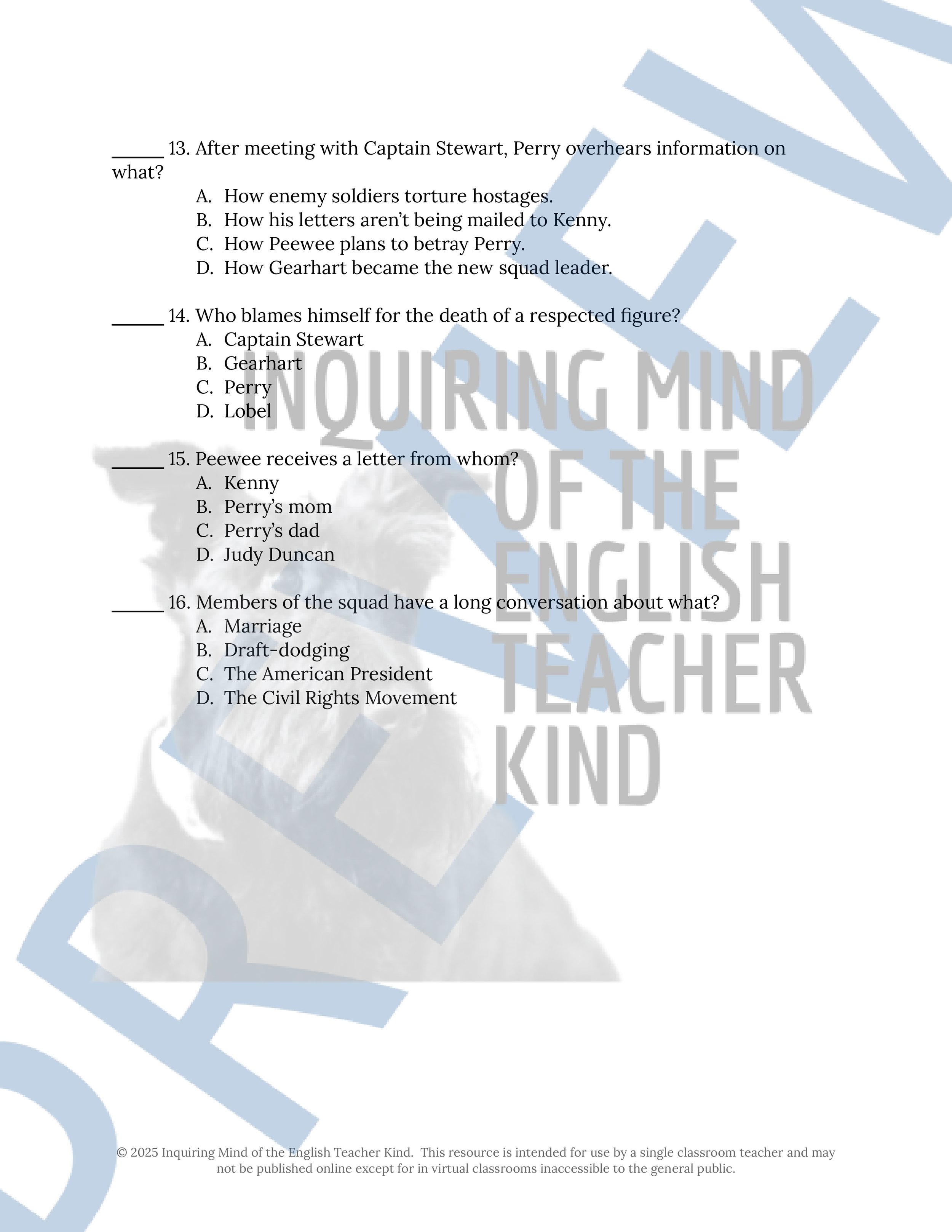 Image 40 of 81
Image 40 of 81

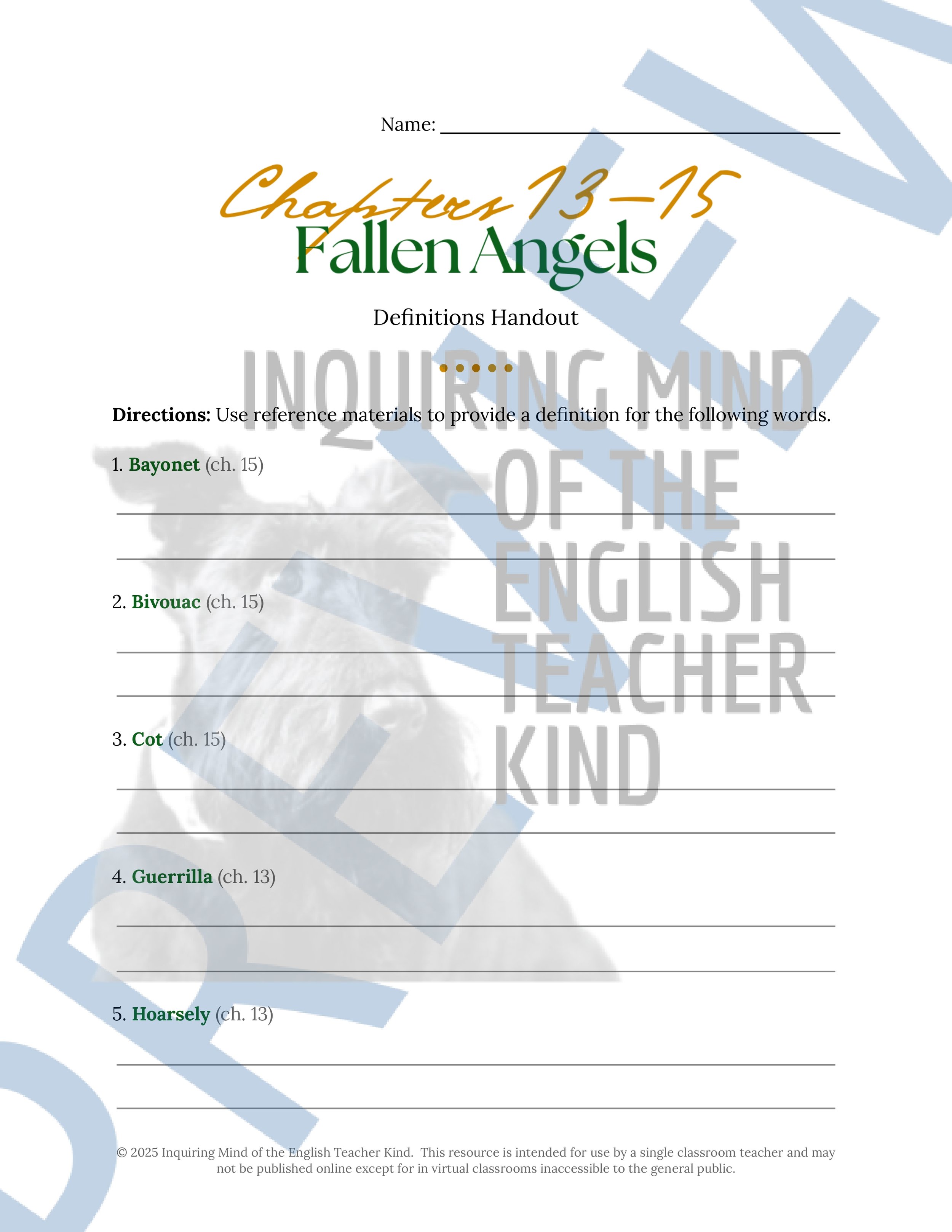 Image 41 of 81
Image 41 of 81

 Image 42 of 81
Image 42 of 81

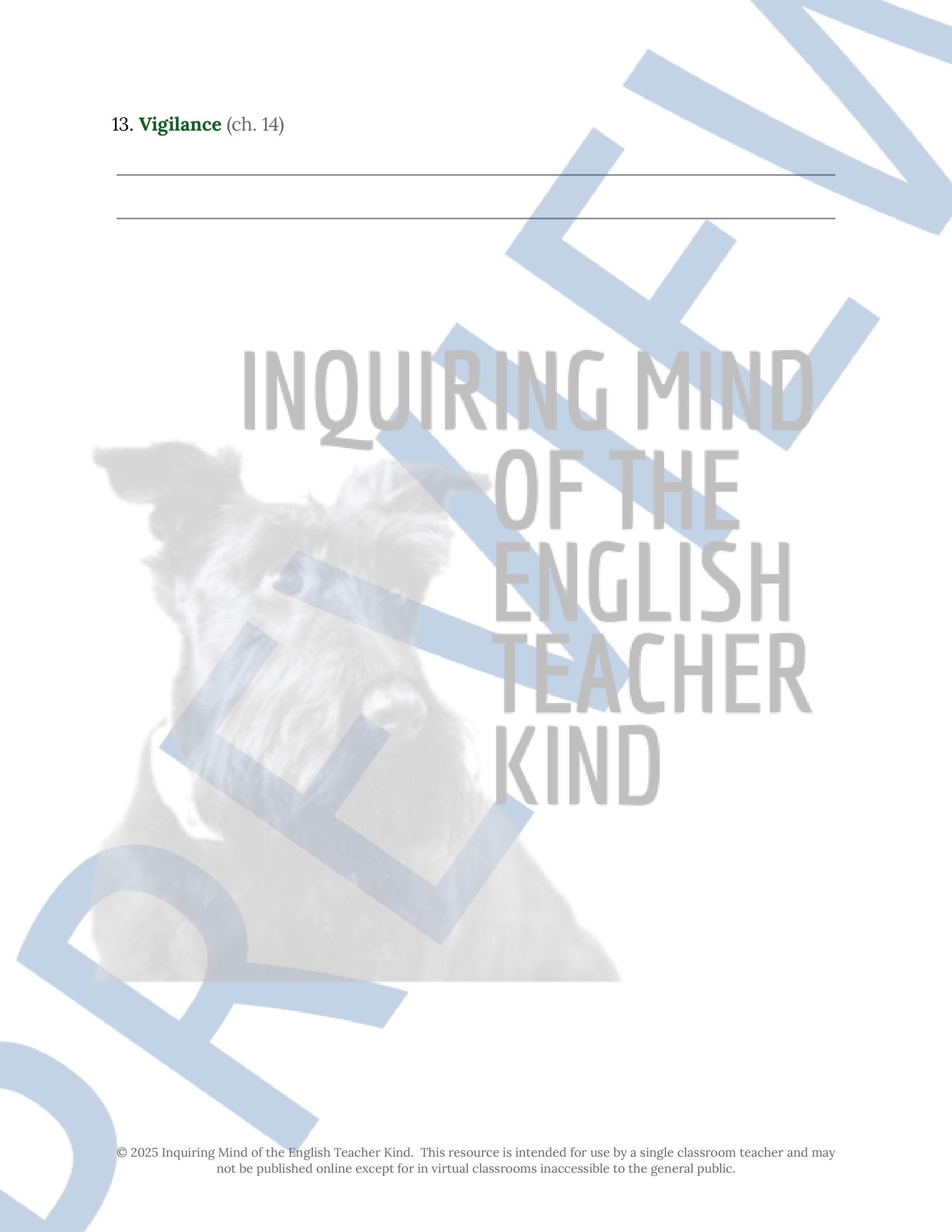 Image 43 of 81
Image 43 of 81

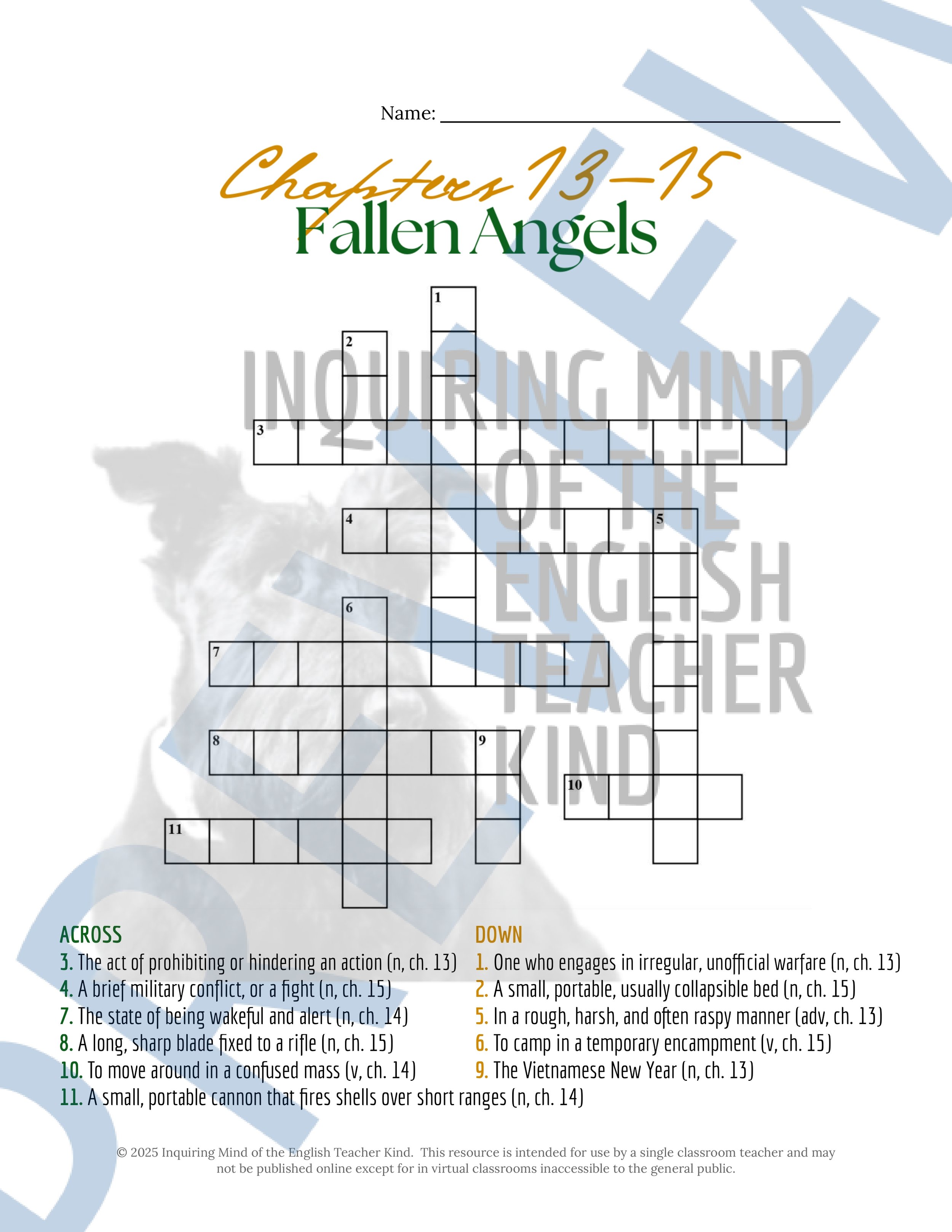 Image 44 of 81
Image 44 of 81

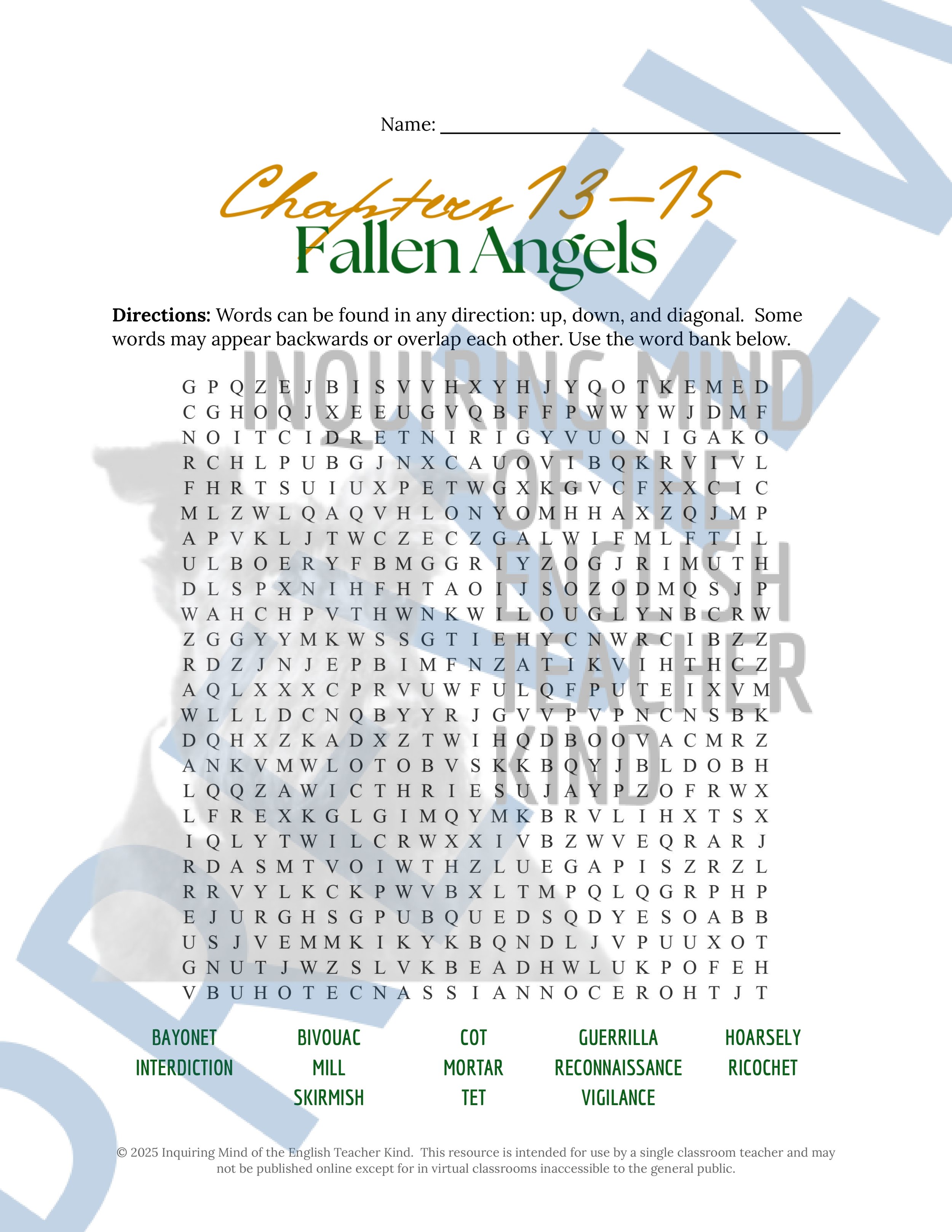 Image 45 of 81
Image 45 of 81

 Image 46 of 81
Image 46 of 81

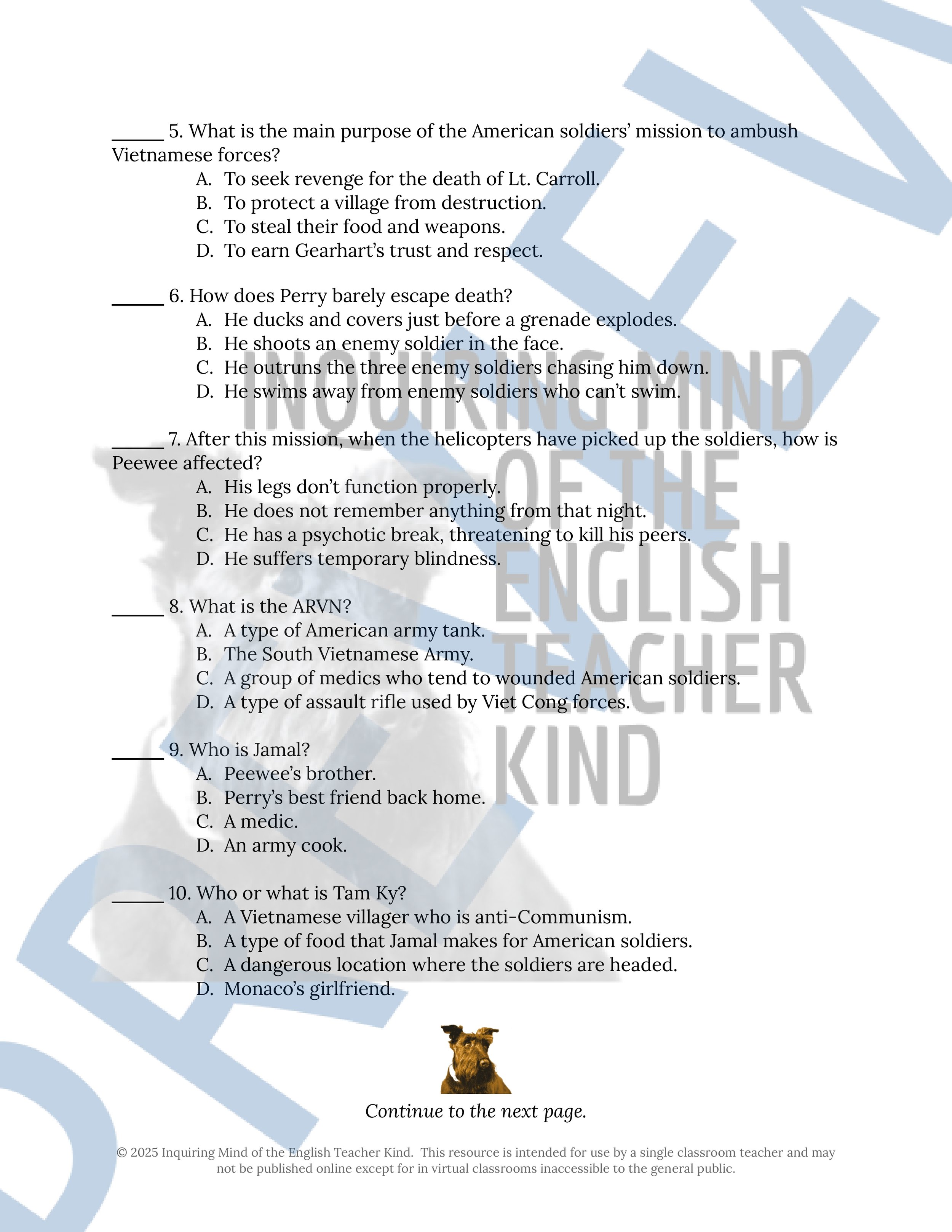 Image 47 of 81
Image 47 of 81

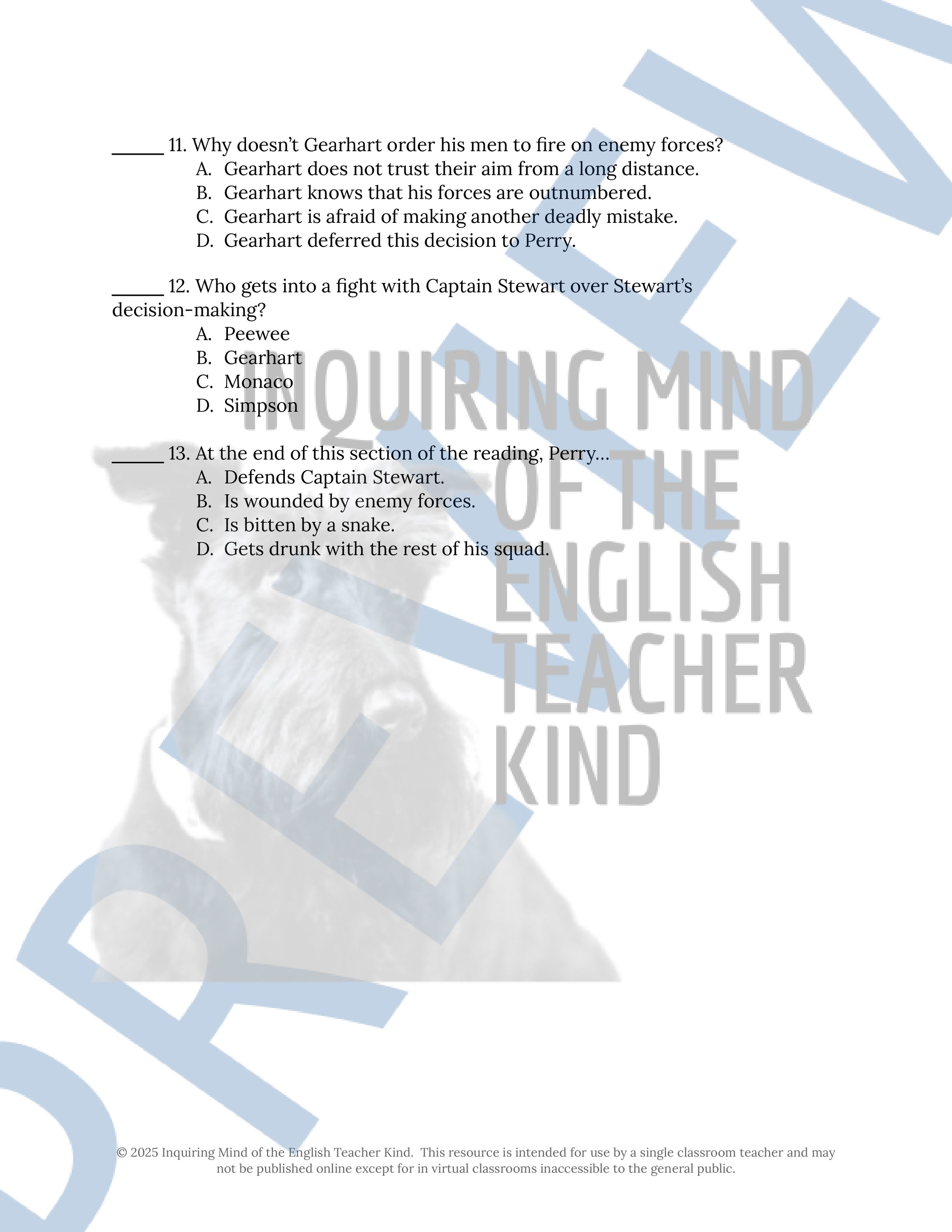 Image 48 of 81
Image 48 of 81

 Image 49 of 81
Image 49 of 81

 Image 50 of 81
Image 50 of 81

 Image 51 of 81
Image 51 of 81

 Image 52 of 81
Image 52 of 81

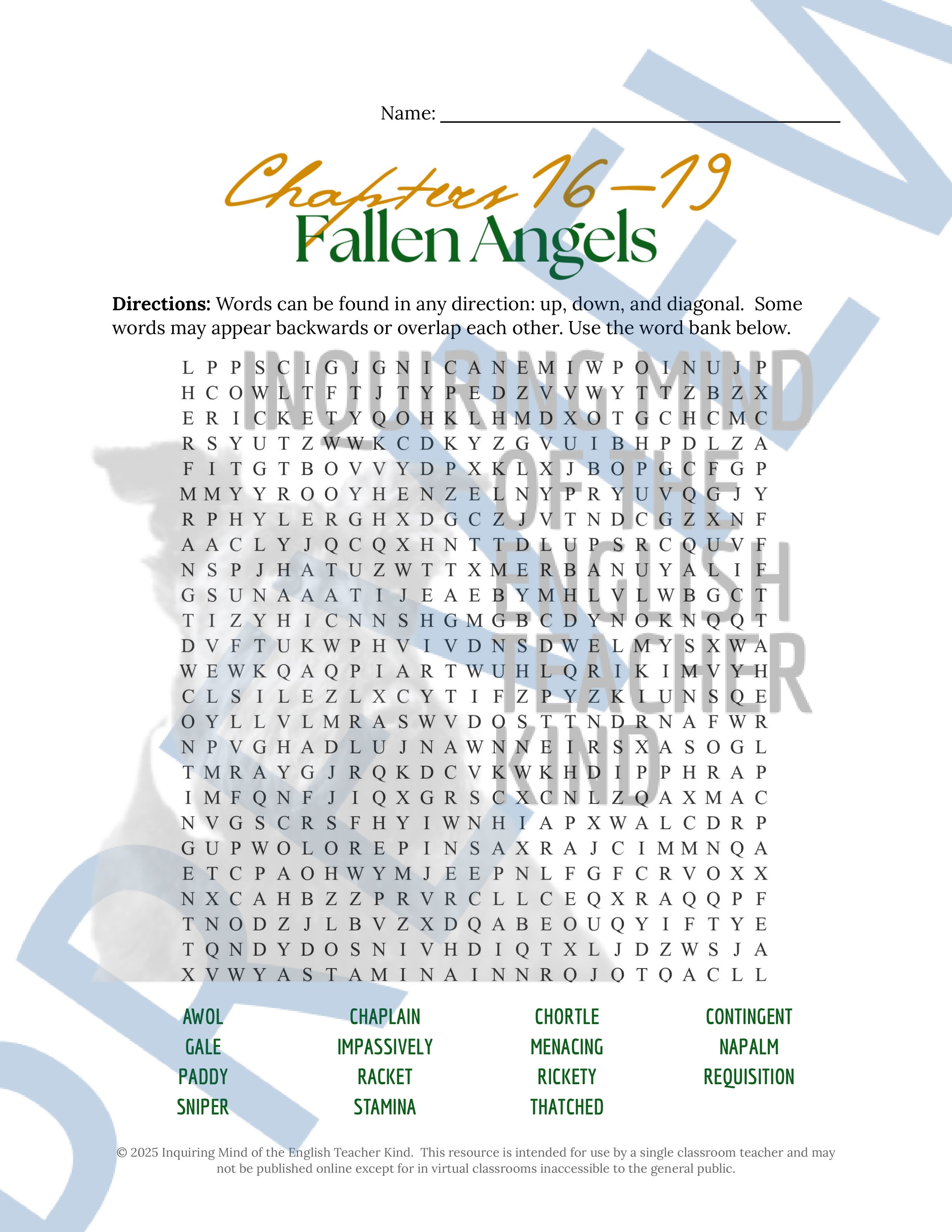 Image 53 of 81
Image 53 of 81

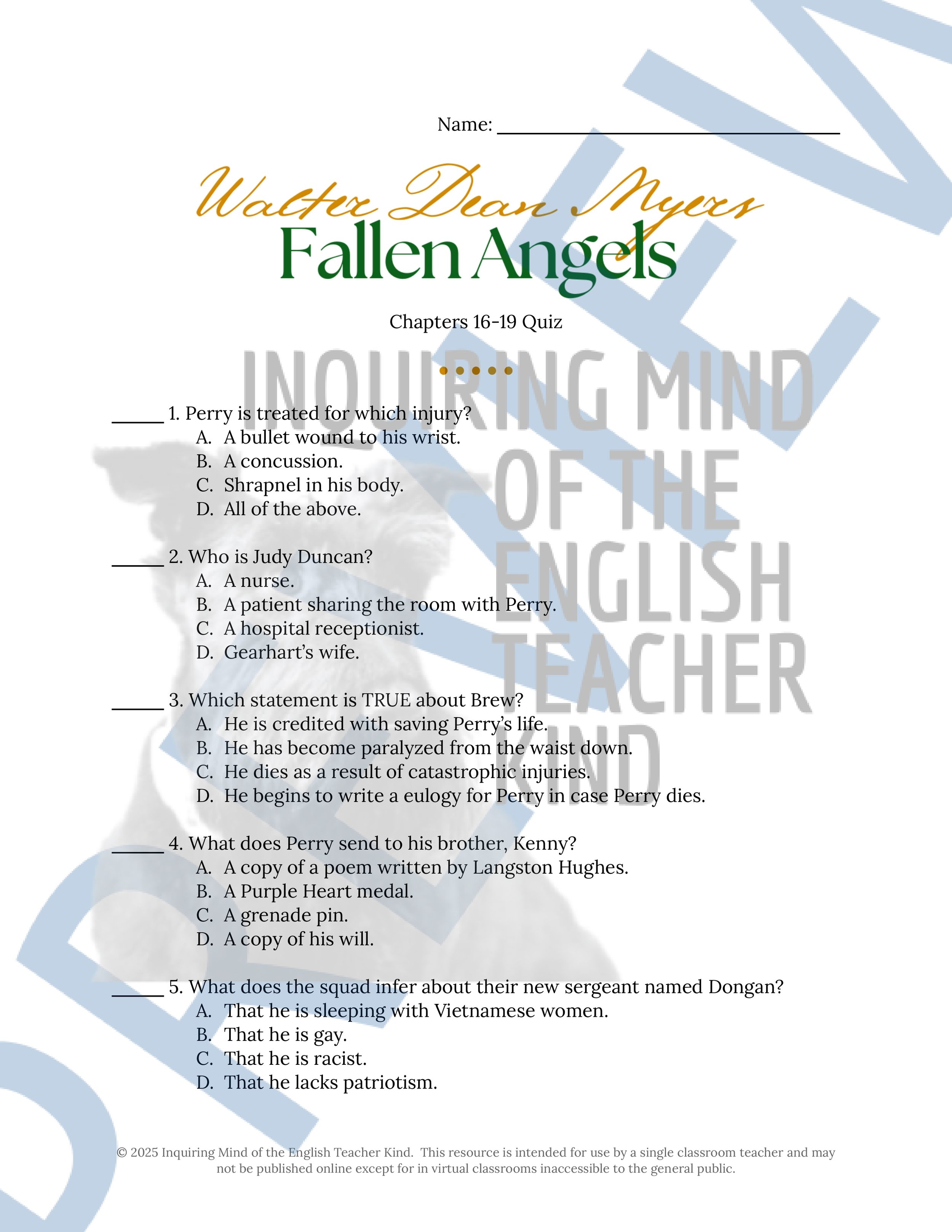 Image 54 of 81
Image 54 of 81

 Image 55 of 81
Image 55 of 81

 Image 56 of 81
Image 56 of 81

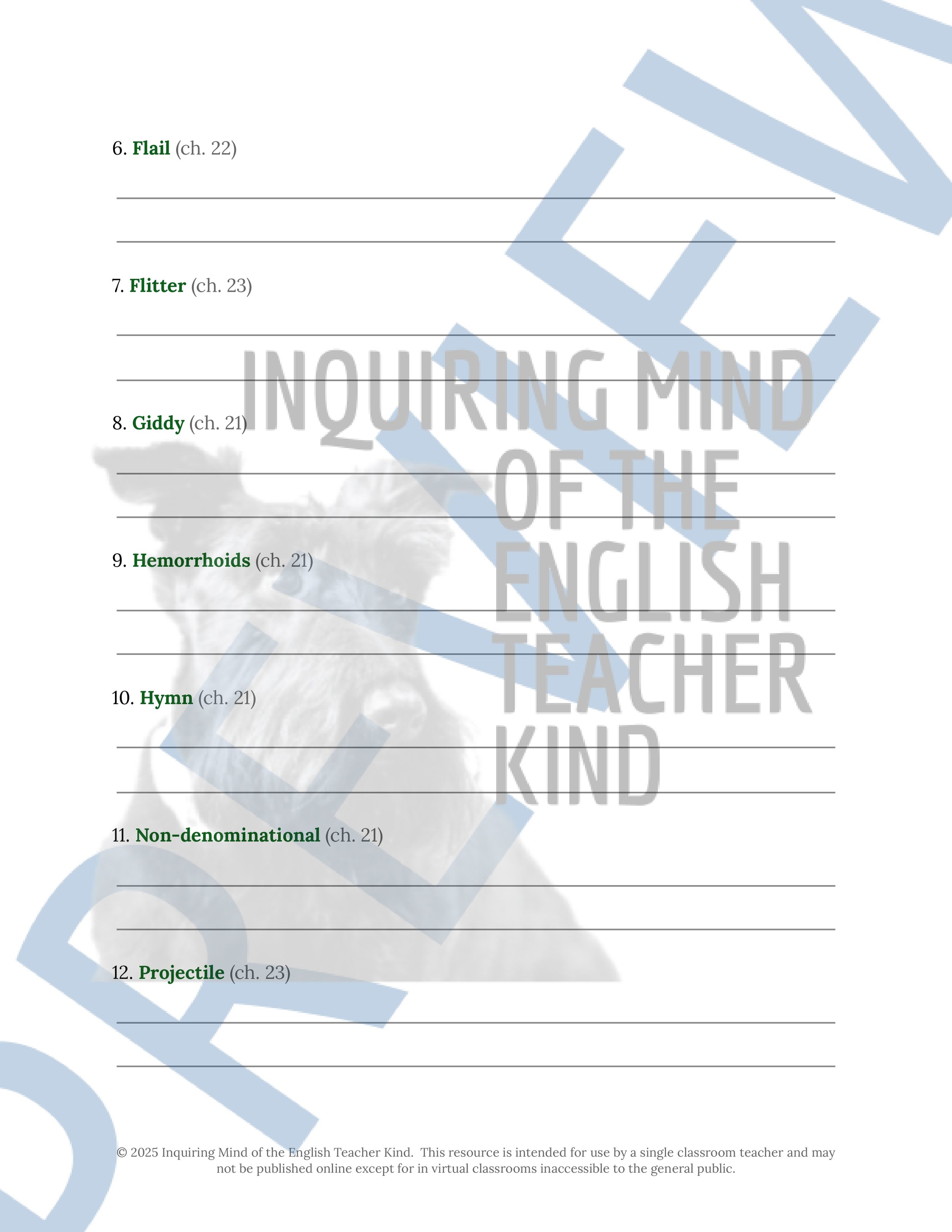 Image 57 of 81
Image 57 of 81

 Image 58 of 81
Image 58 of 81

 Image 59 of 81
Image 59 of 81

 Image 60 of 81
Image 60 of 81

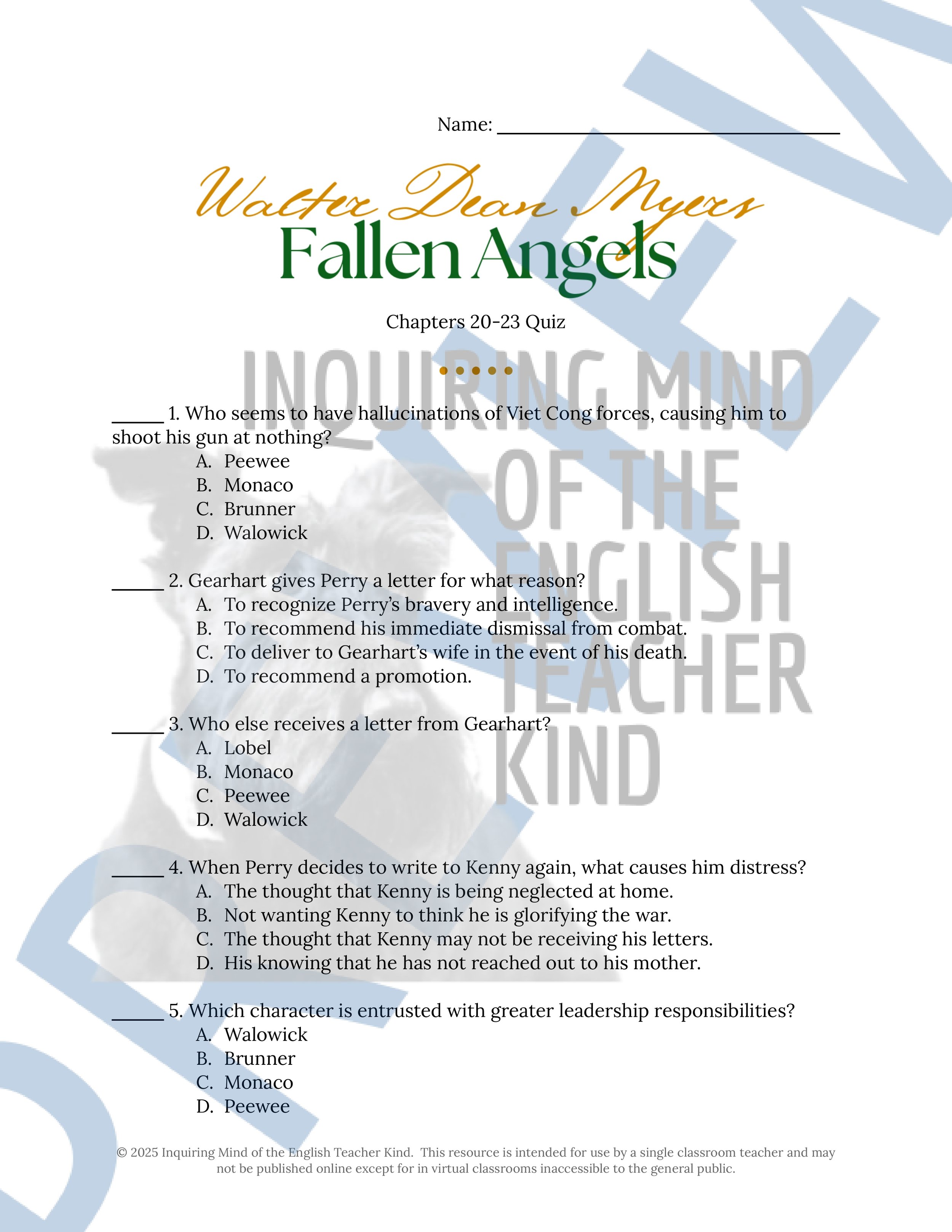 Image 61 of 81
Image 61 of 81

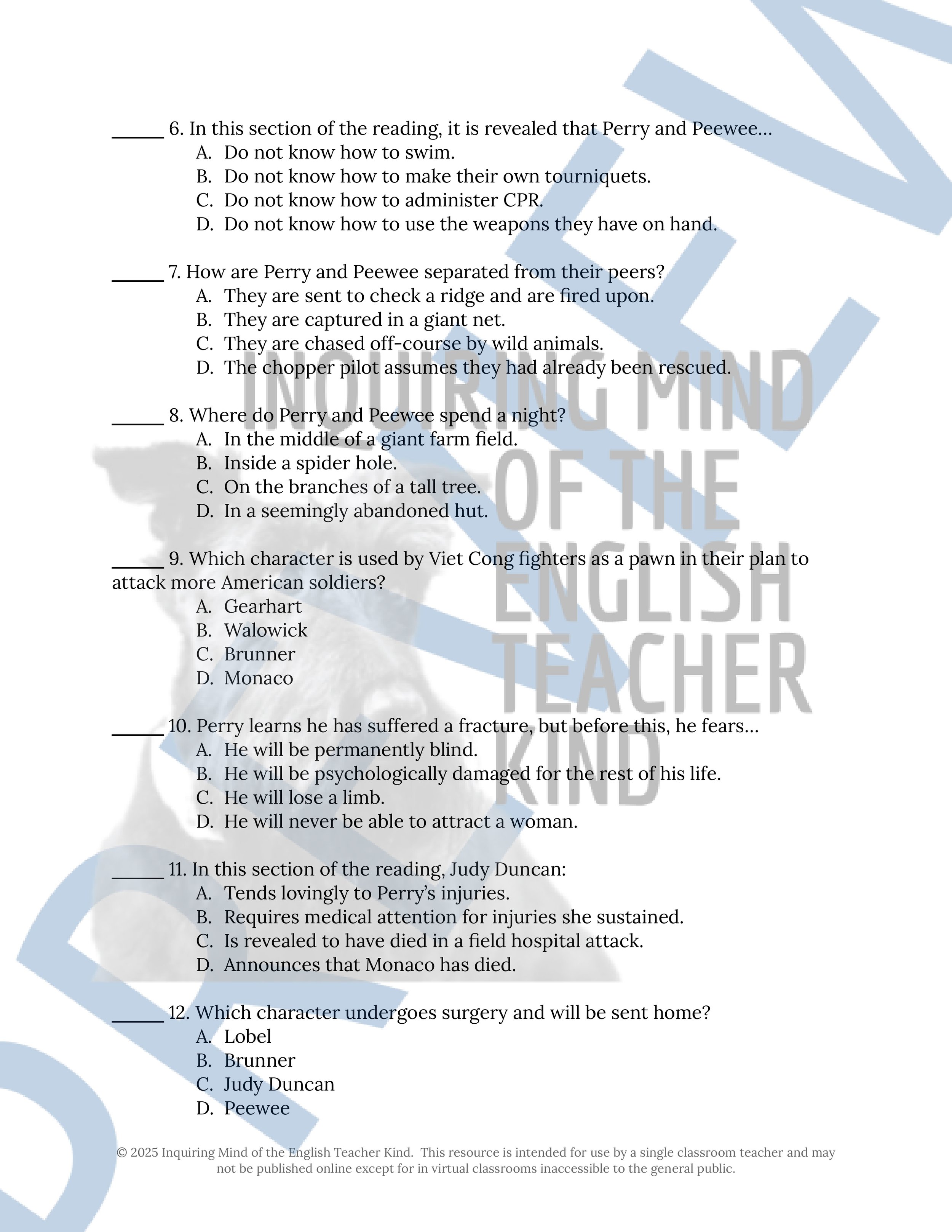 Image 62 of 81
Image 62 of 81

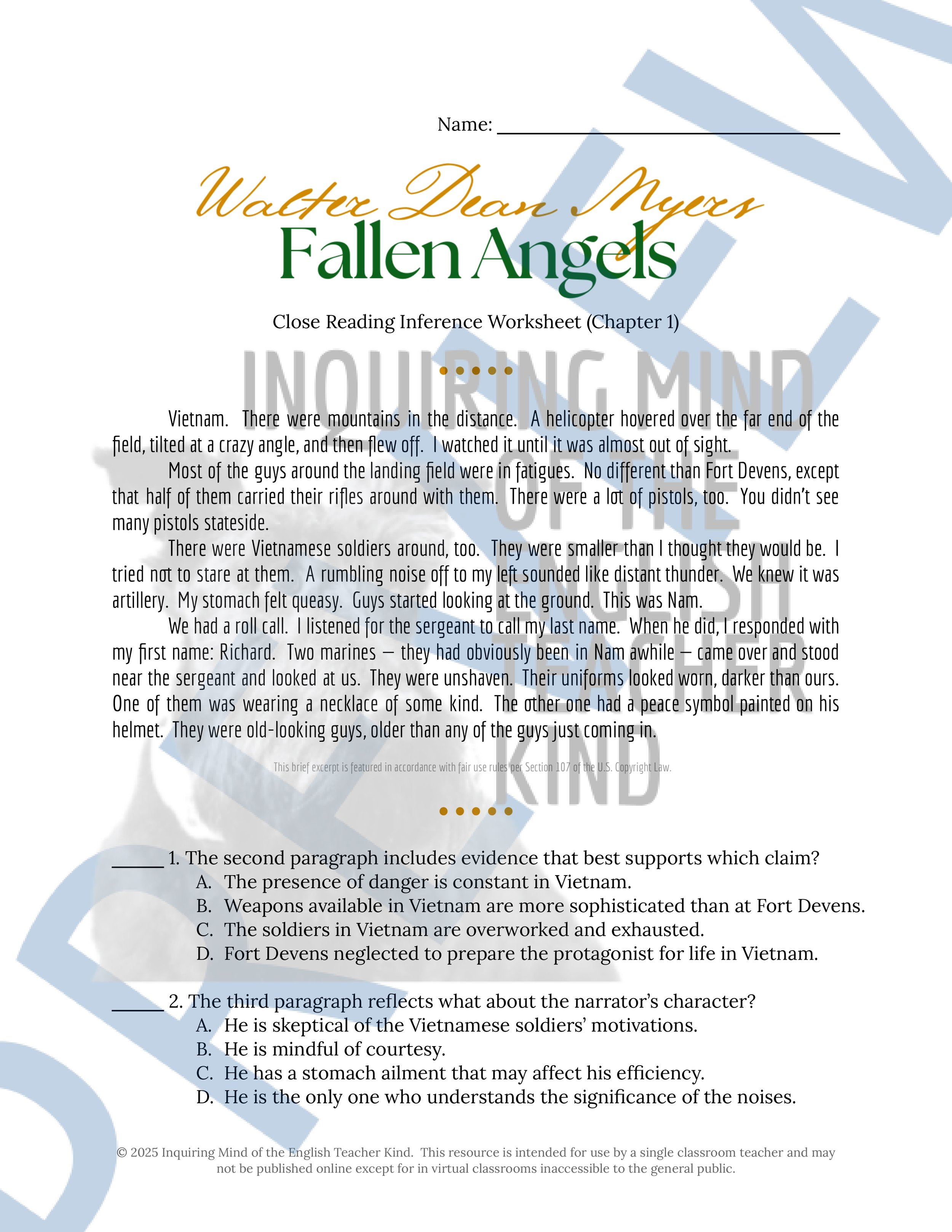 Image 63 of 81
Image 63 of 81

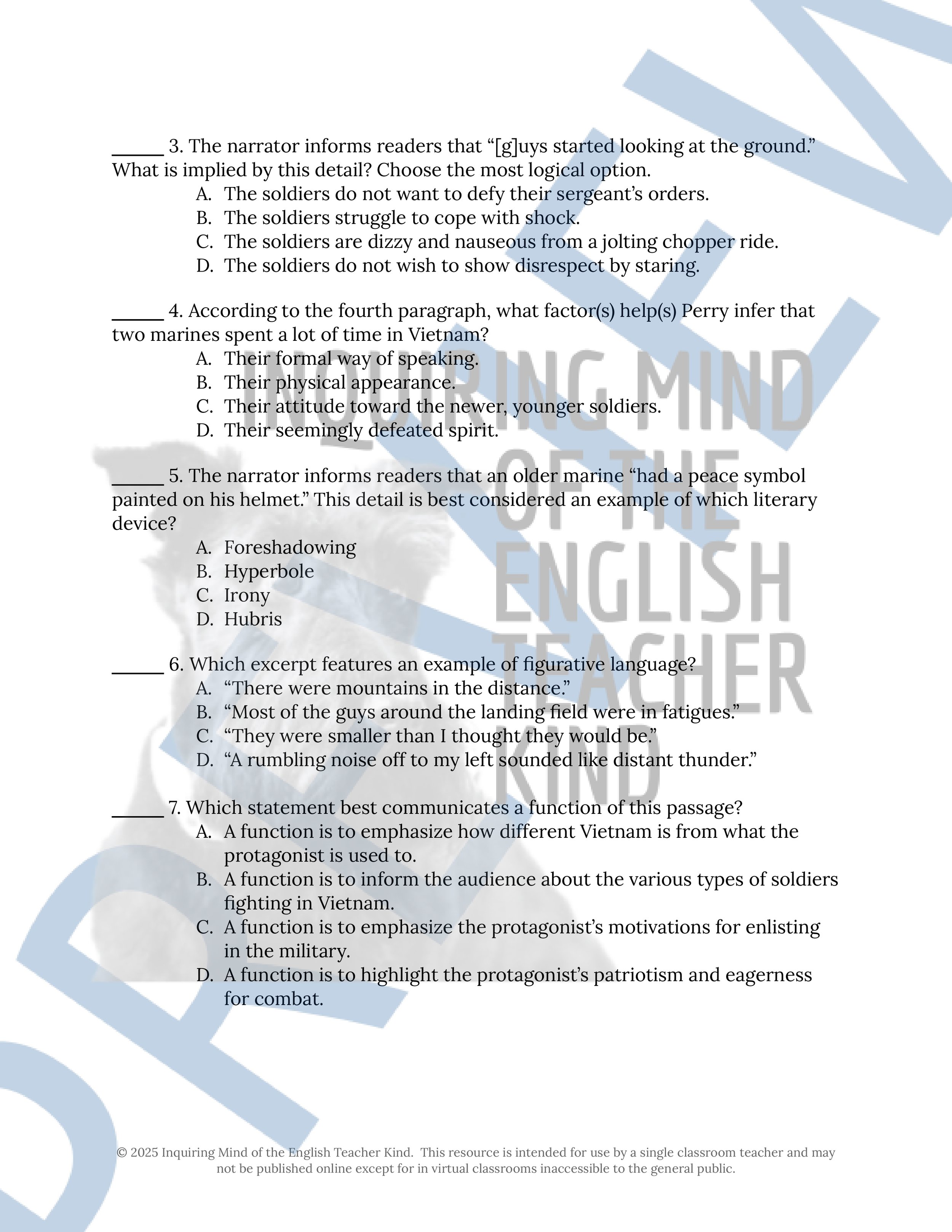 Image 64 of 81
Image 64 of 81

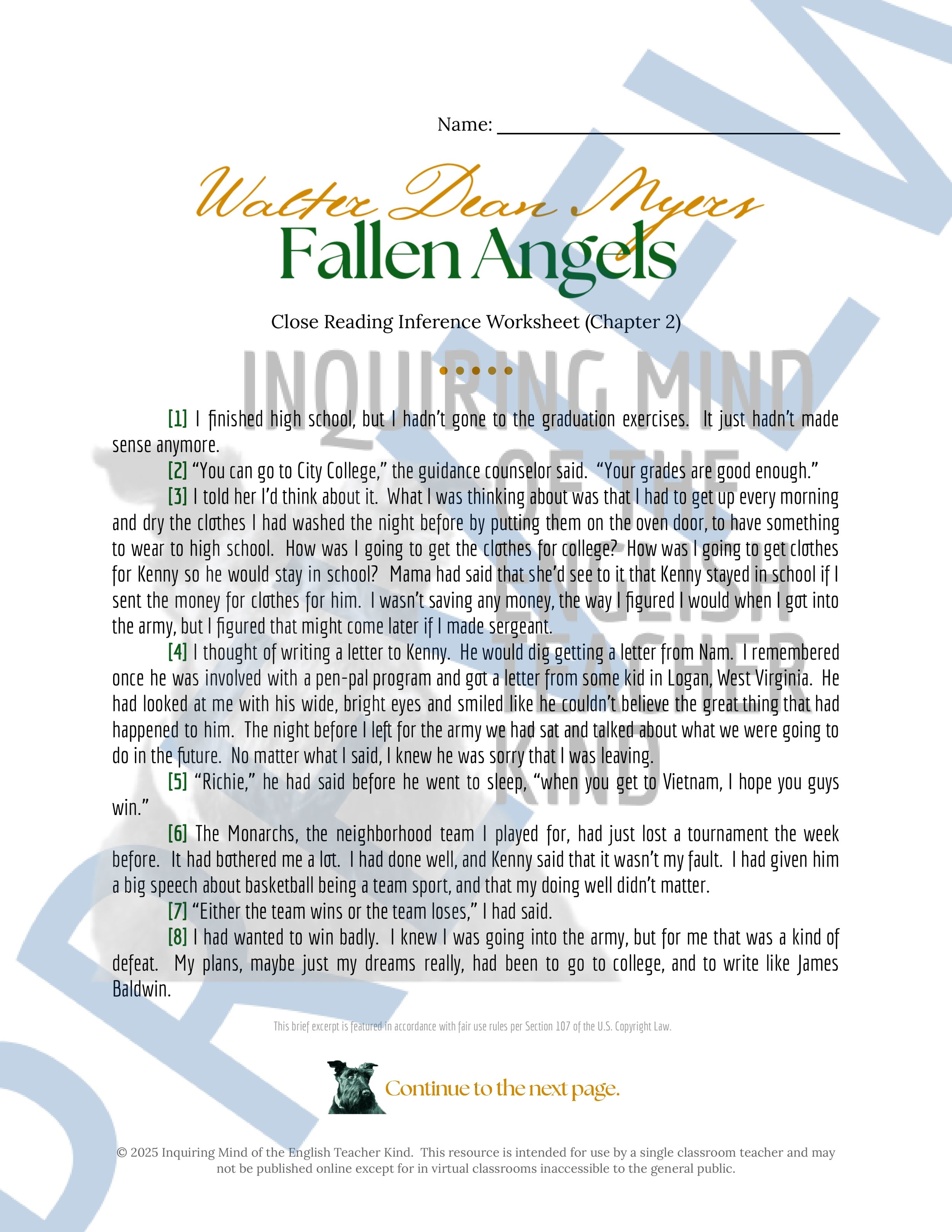 Image 65 of 81
Image 65 of 81

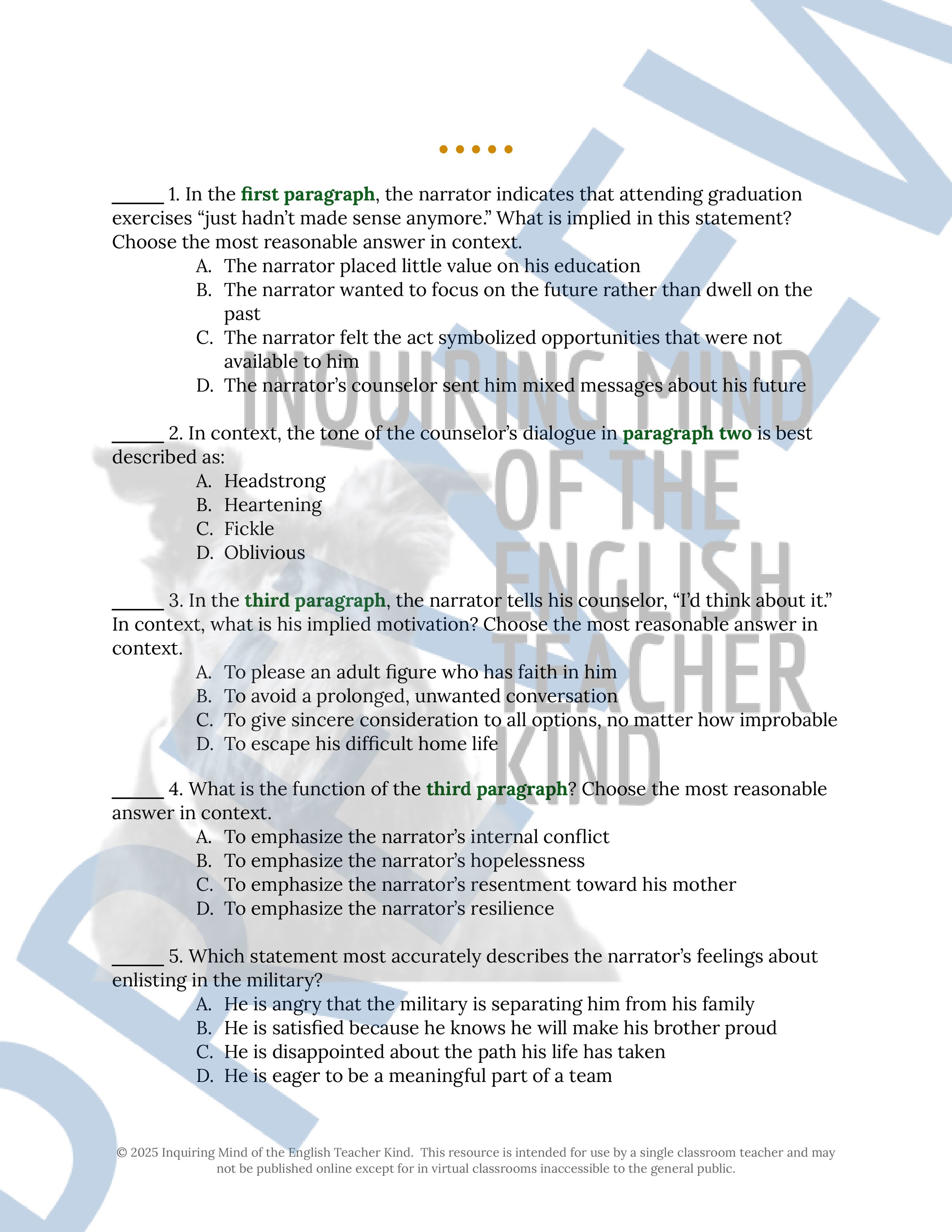 Image 66 of 81
Image 66 of 81

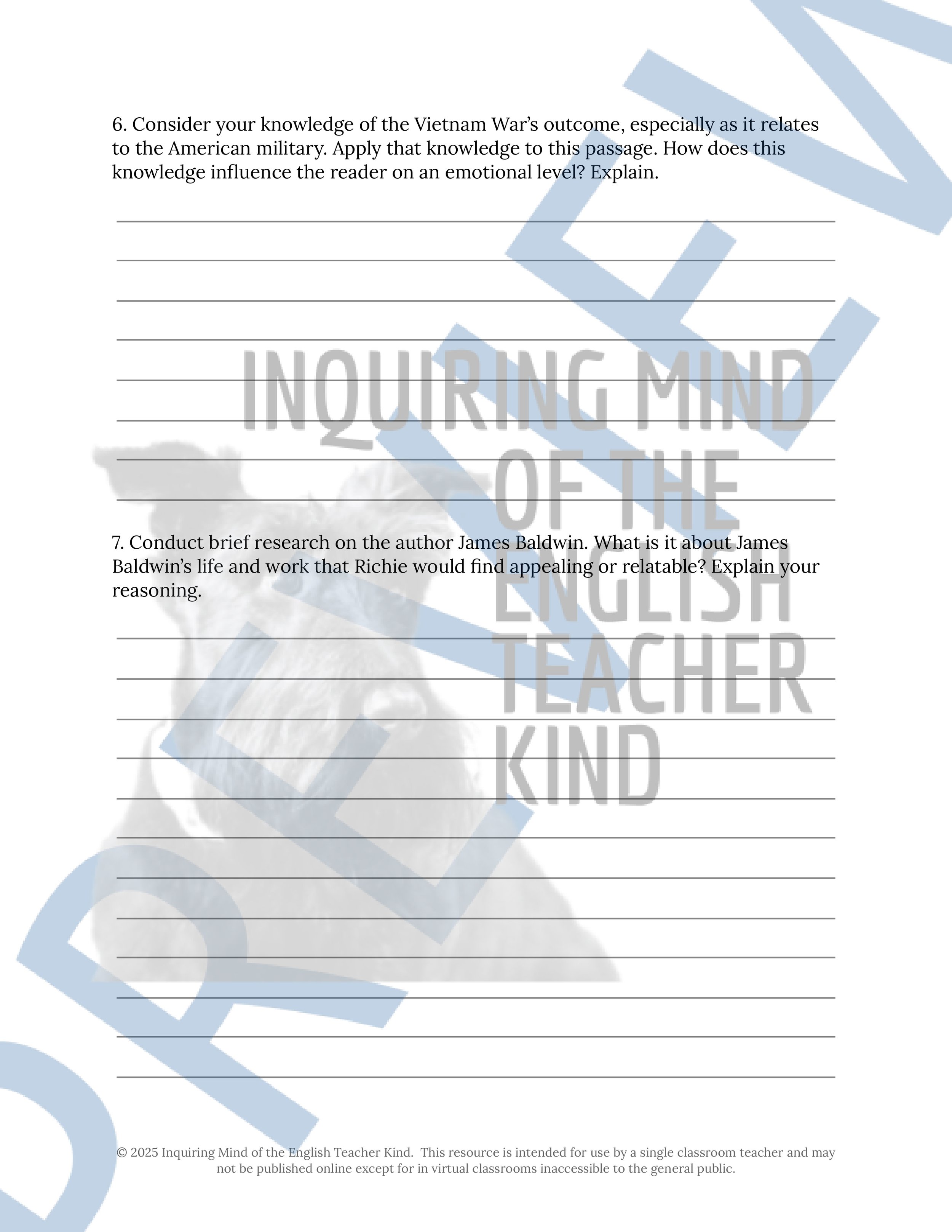 Image 67 of 81
Image 67 of 81

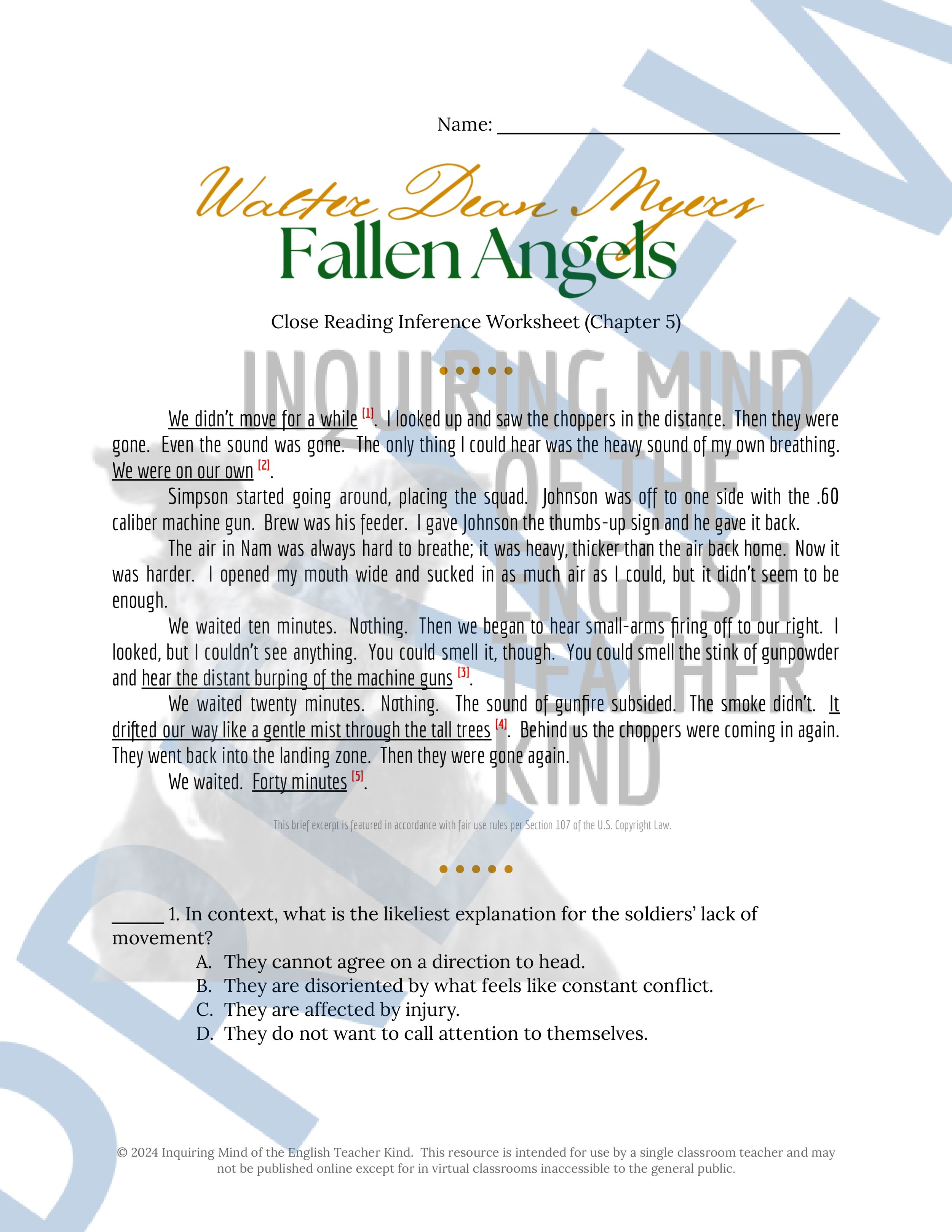 Image 68 of 81
Image 68 of 81

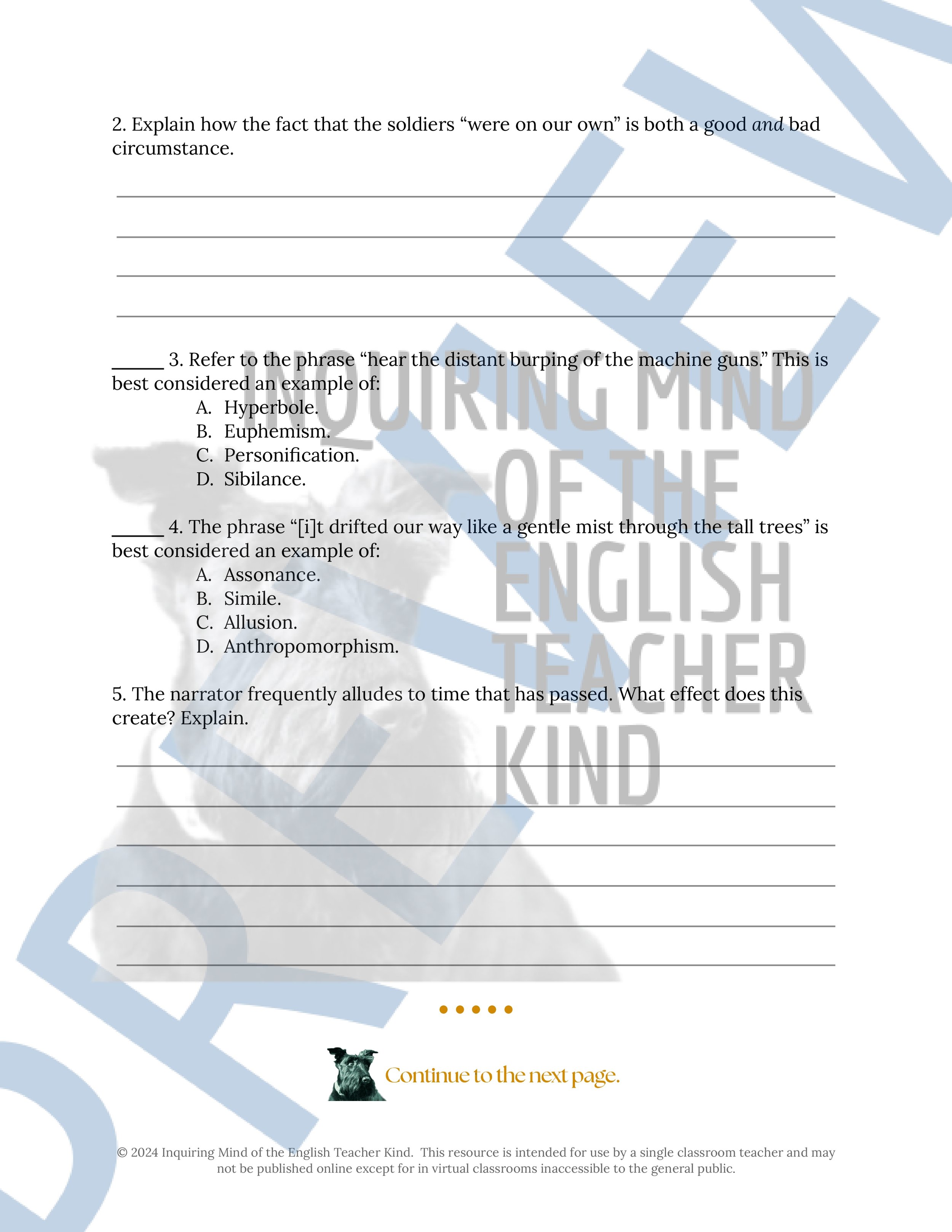 Image 69 of 81
Image 69 of 81

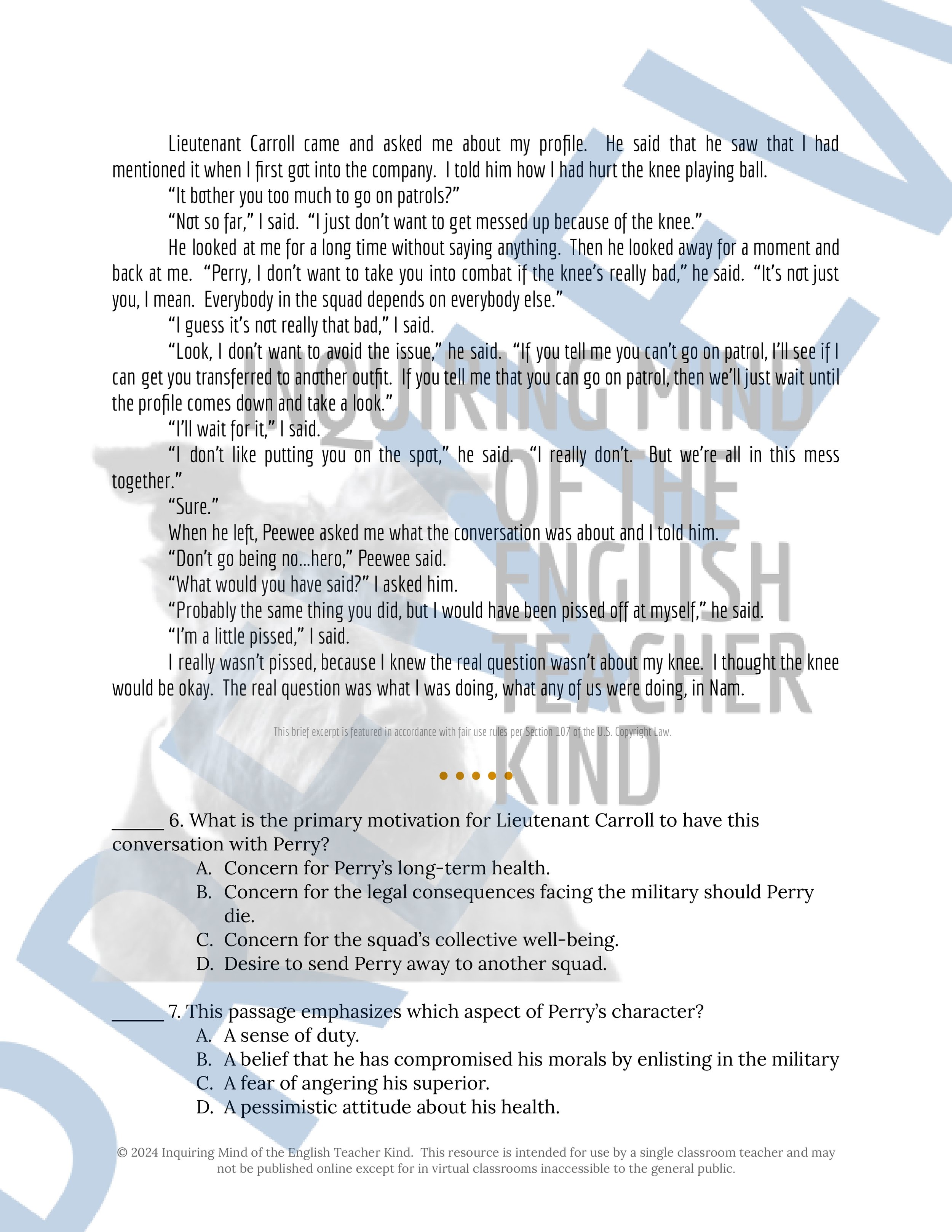 Image 70 of 81
Image 70 of 81

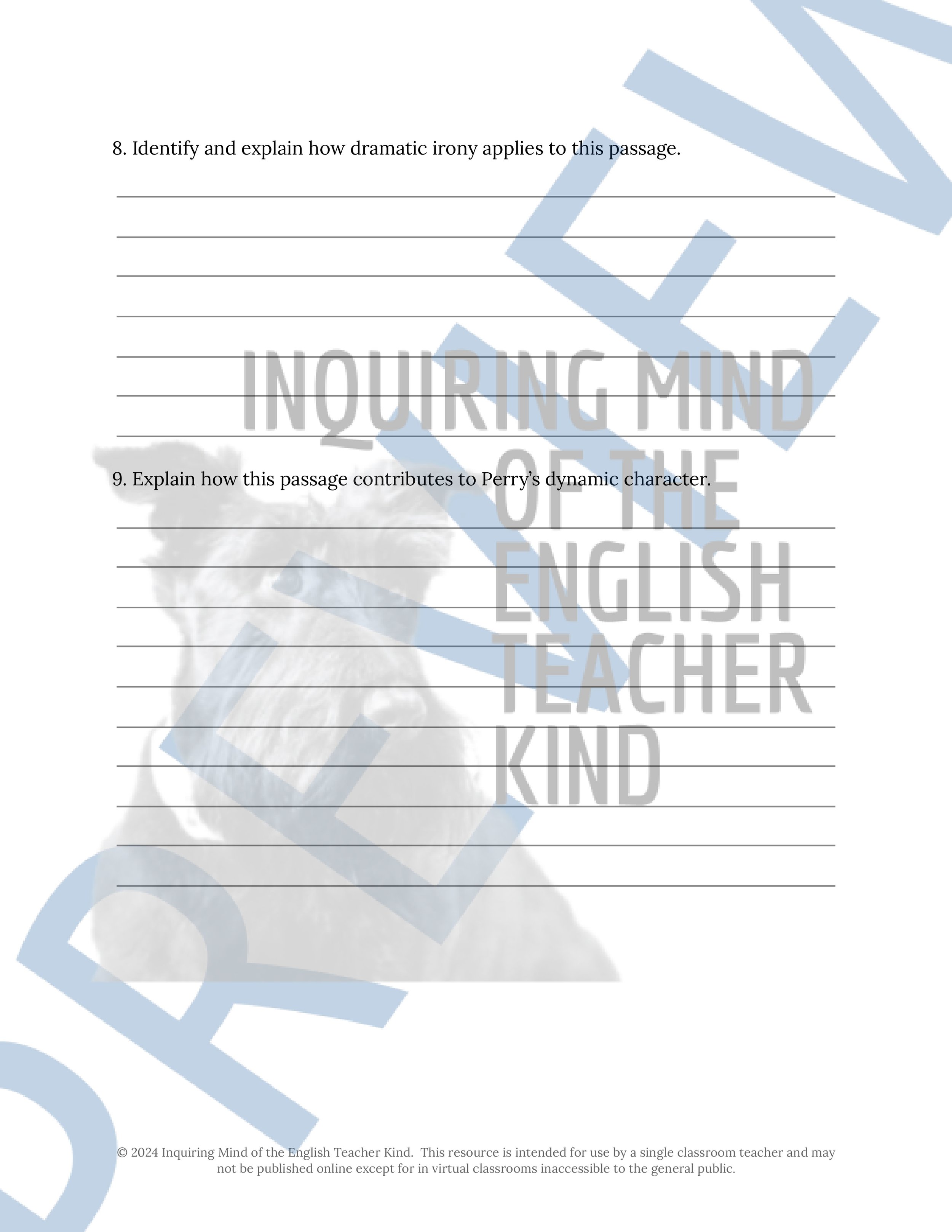 Image 71 of 81
Image 71 of 81

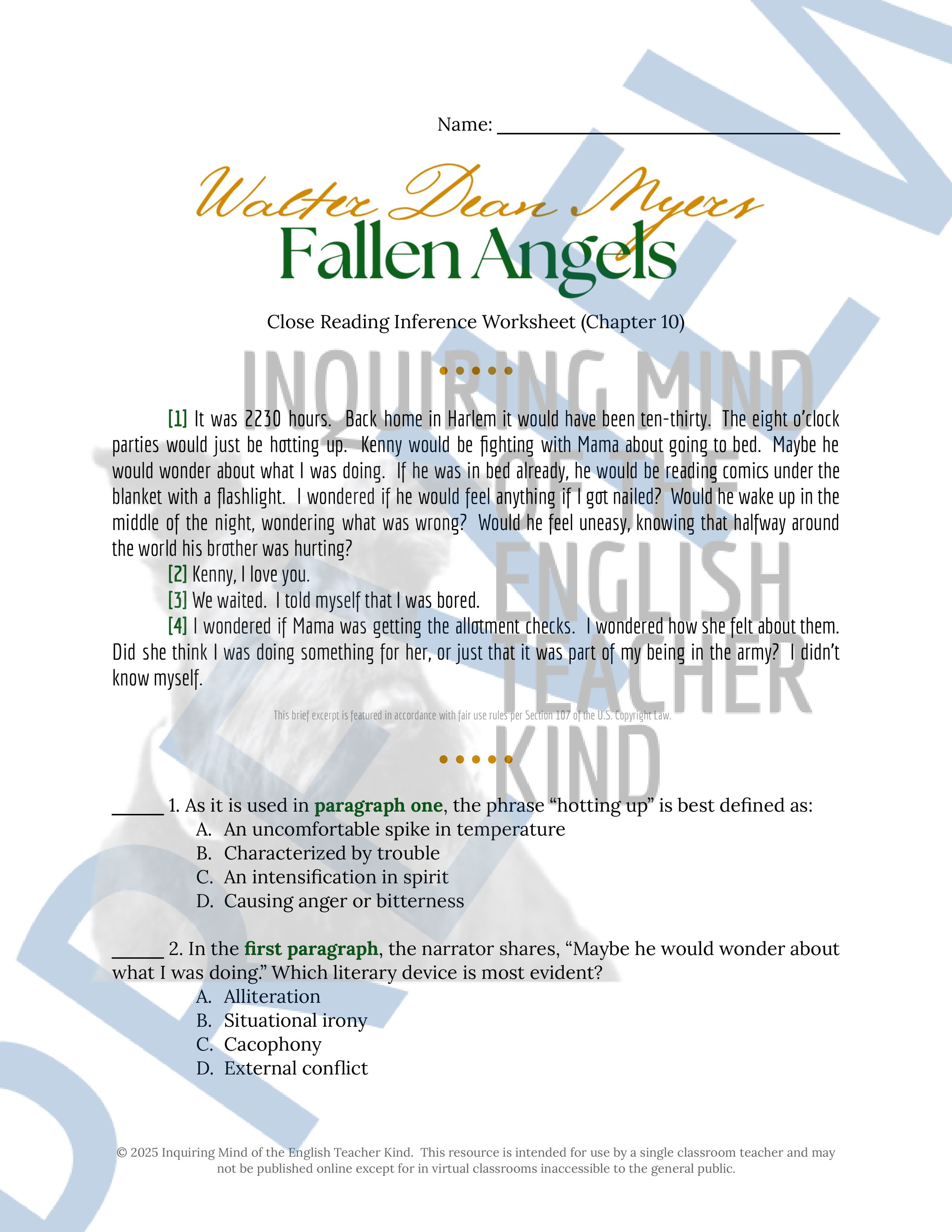 Image 72 of 81
Image 72 of 81

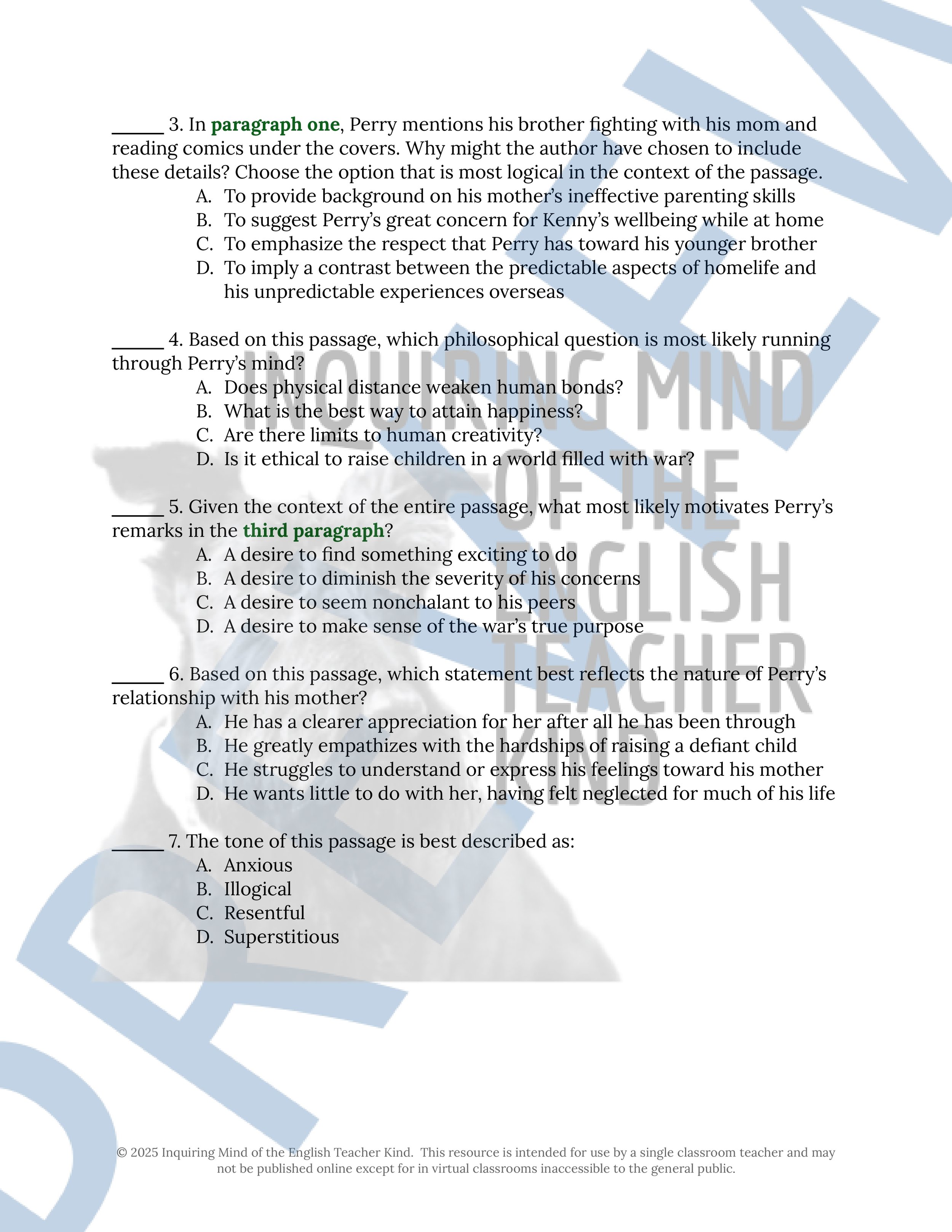 Image 73 of 81
Image 73 of 81

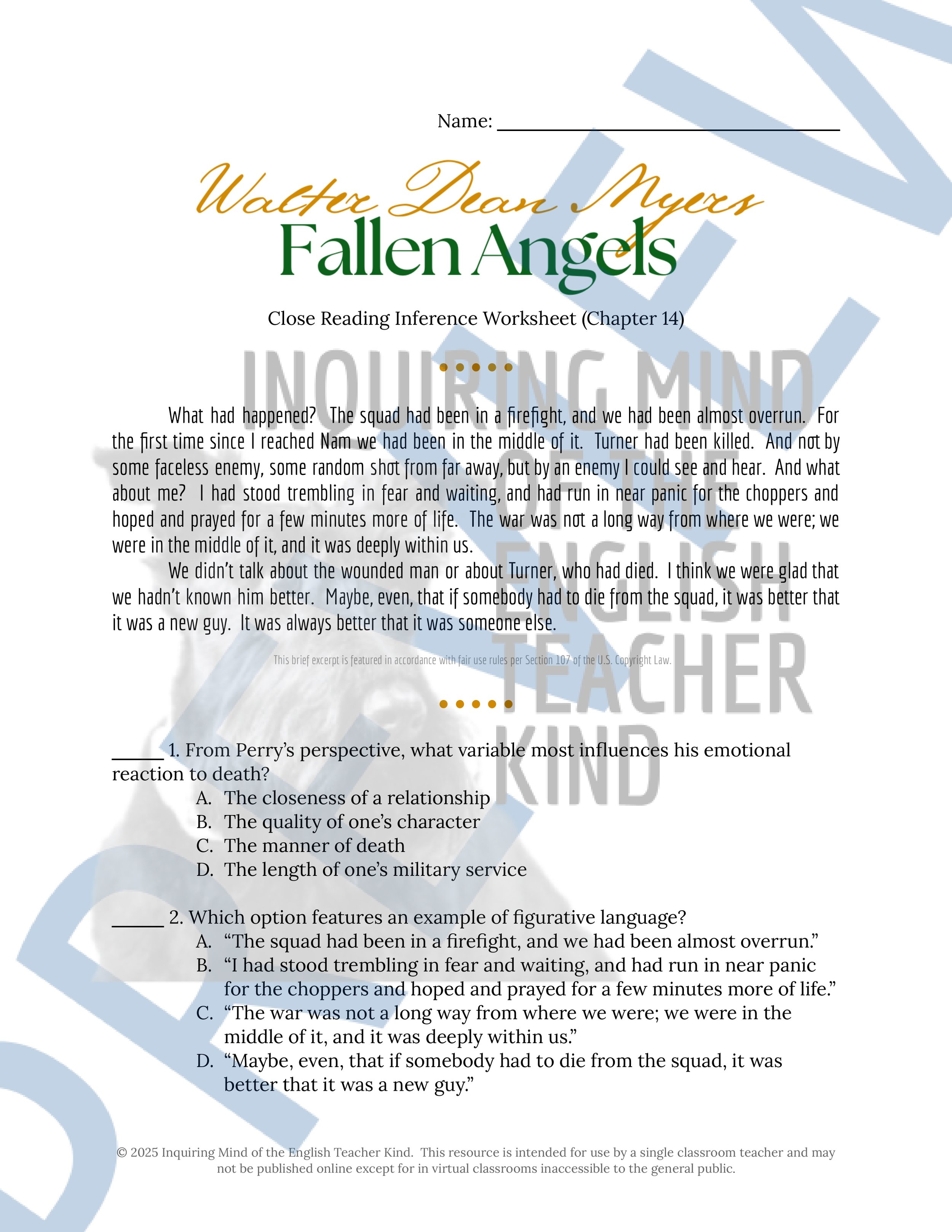 Image 74 of 81
Image 74 of 81

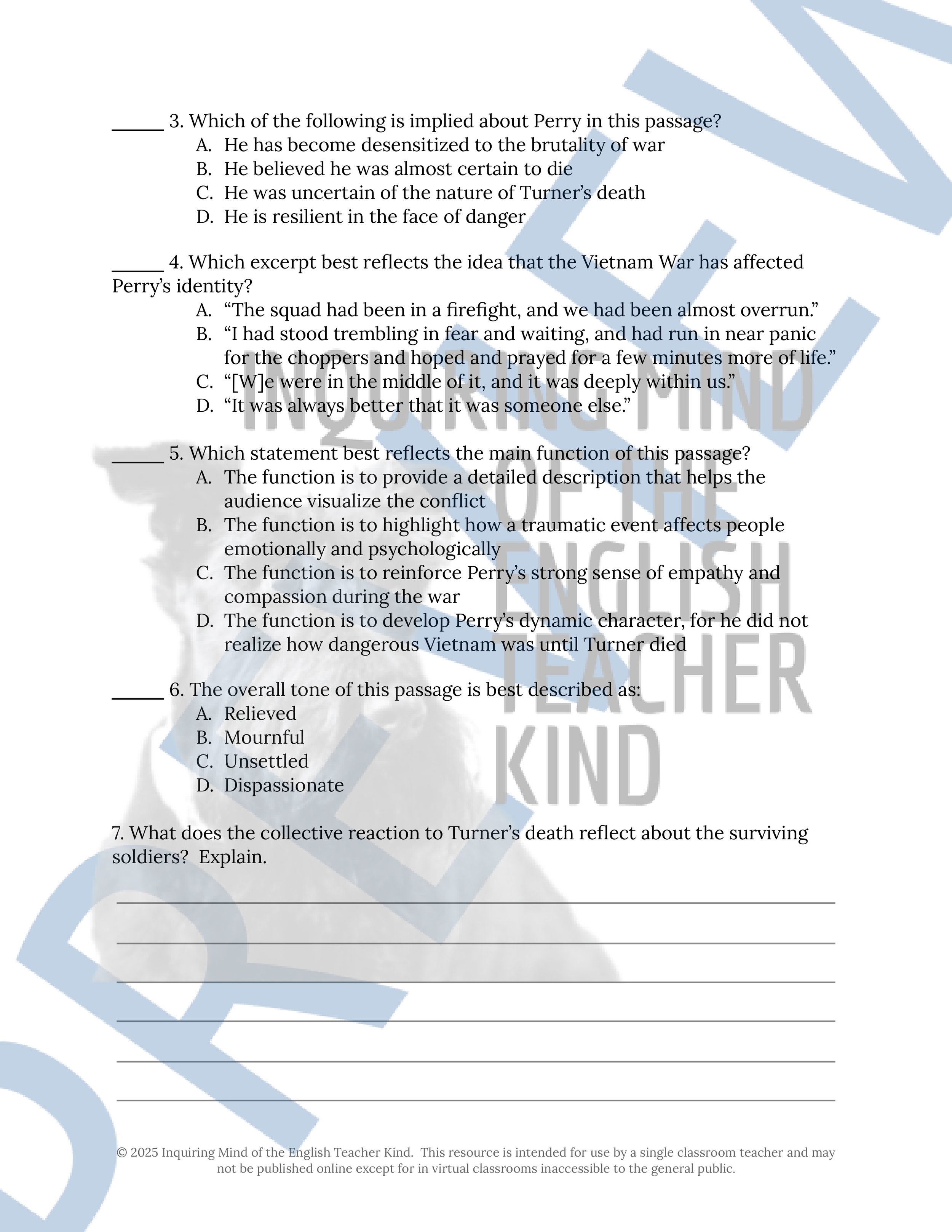 Image 75 of 81
Image 75 of 81

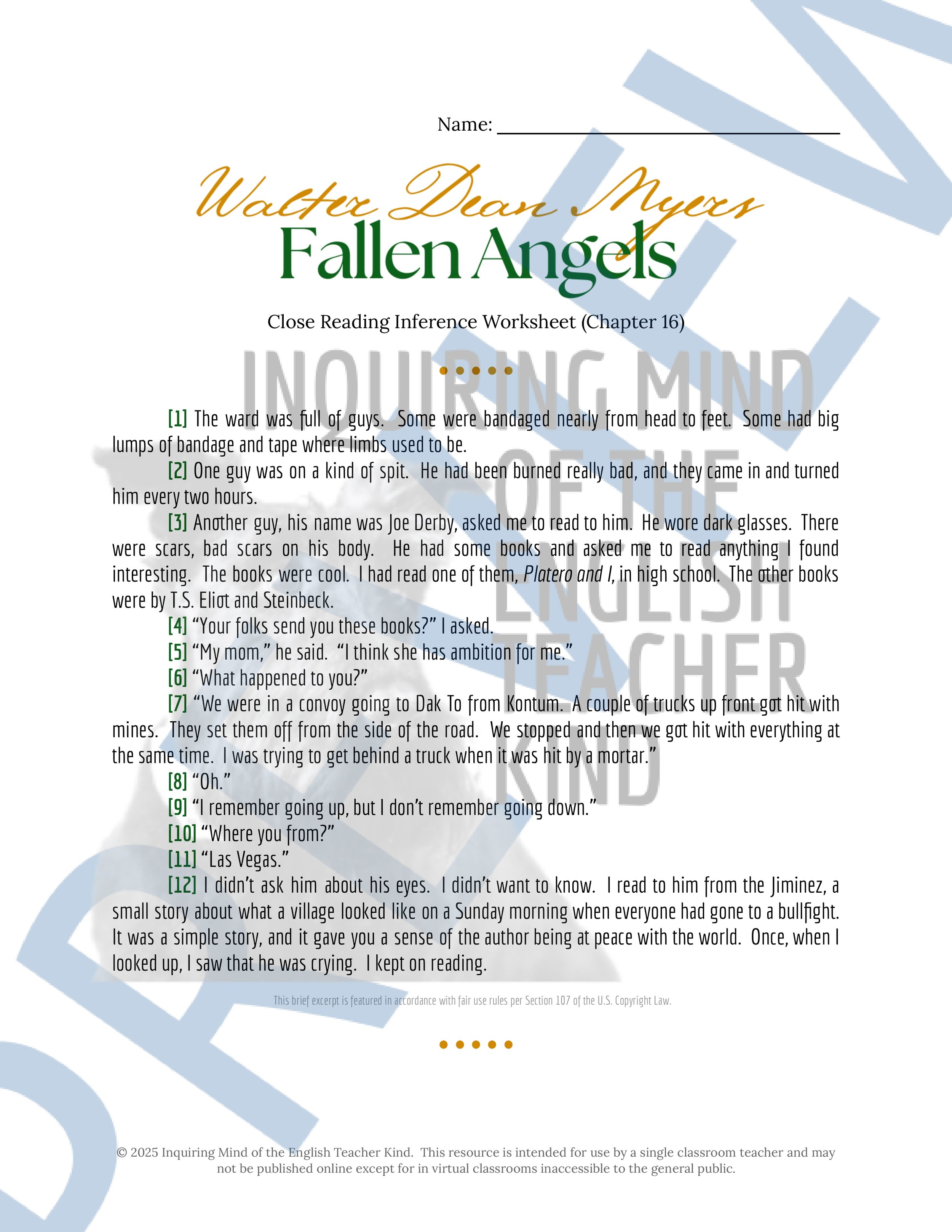 Image 76 of 81
Image 76 of 81

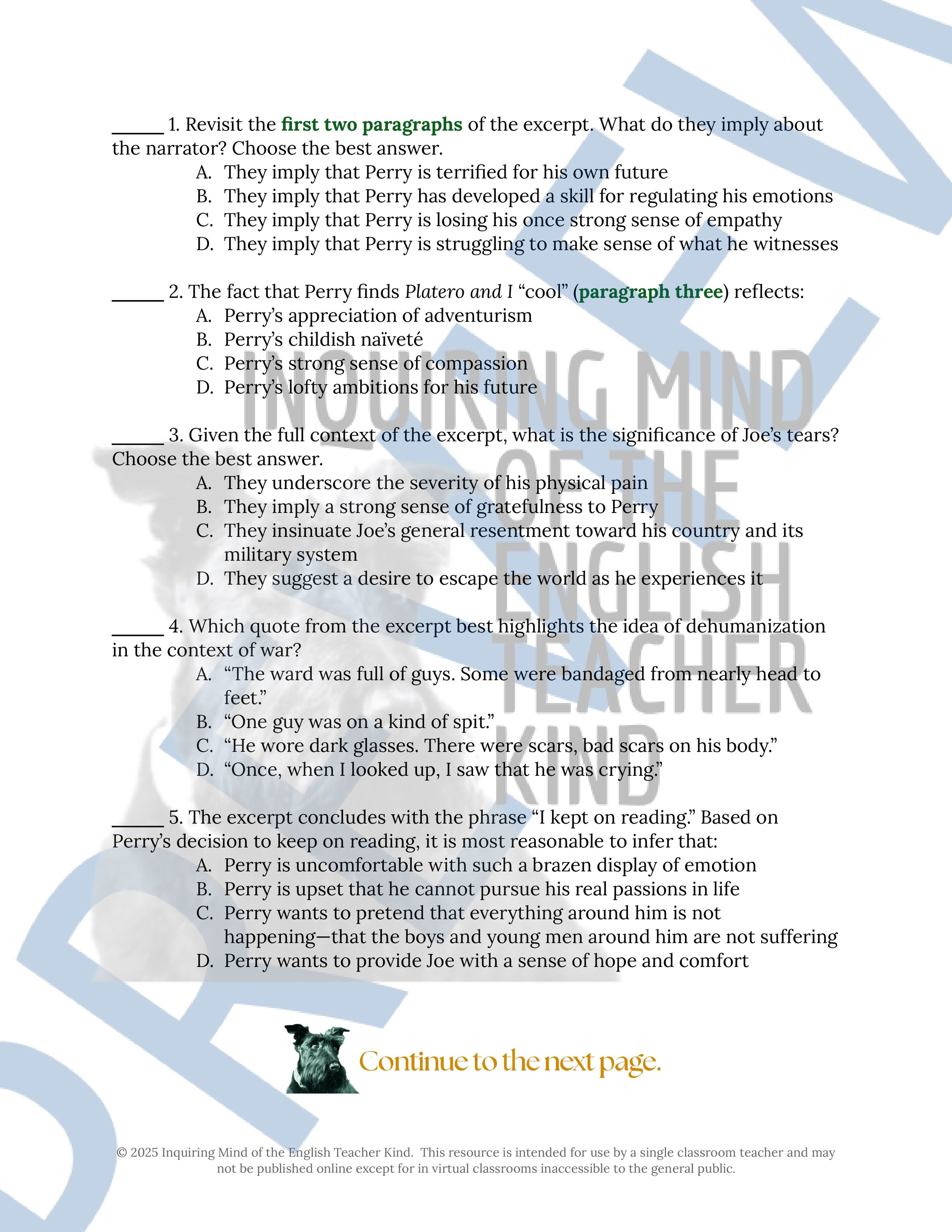 Image 77 of 81
Image 77 of 81

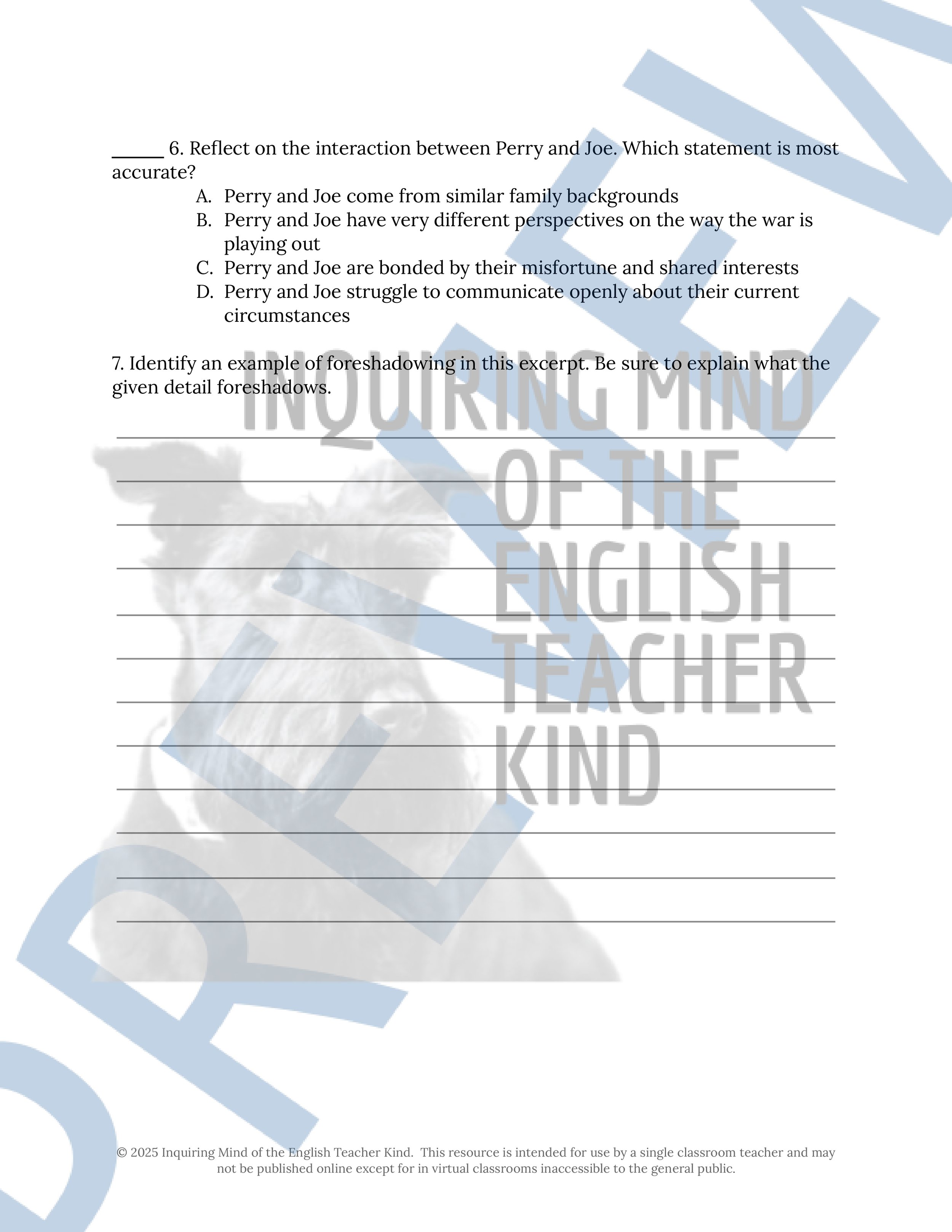 Image 78 of 81
Image 78 of 81

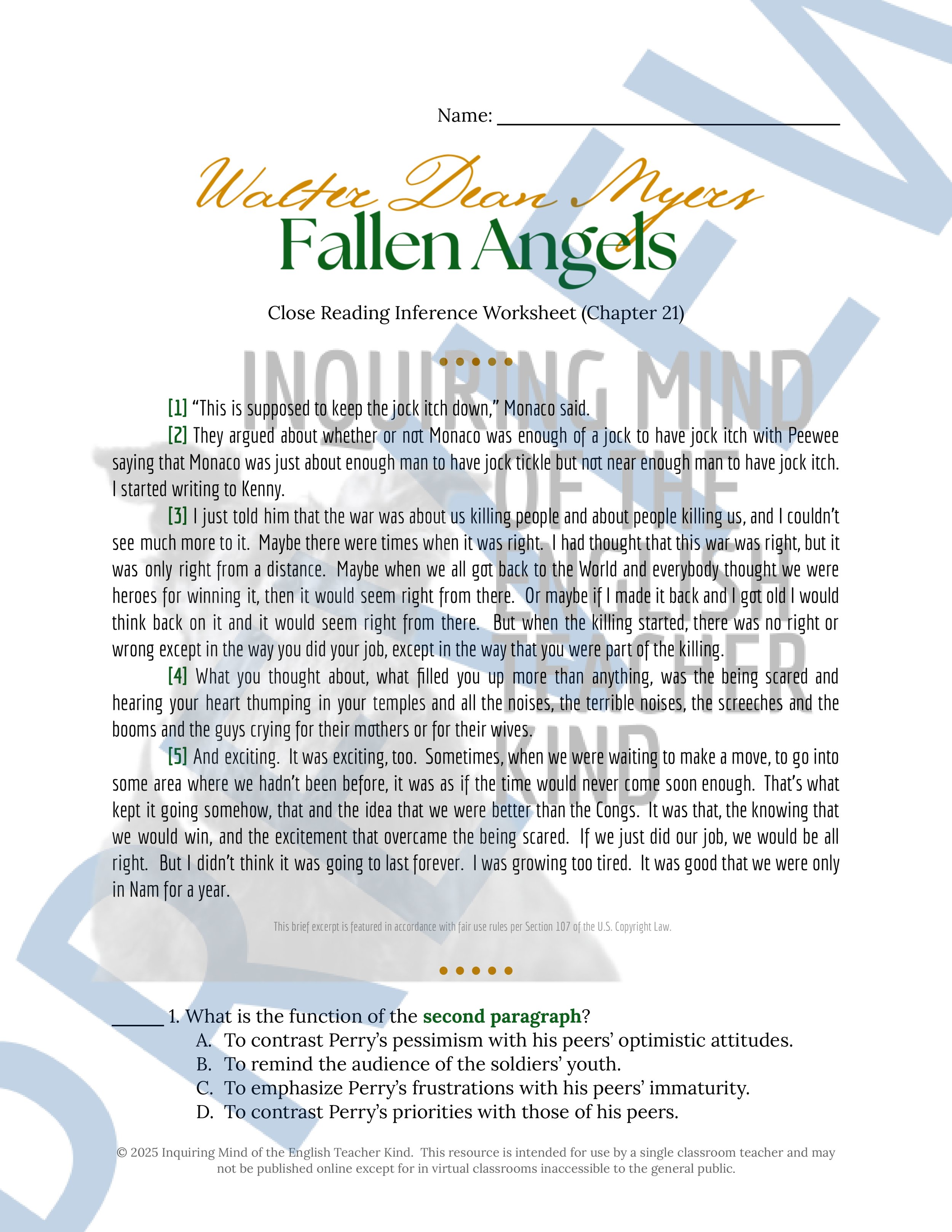 Image 79 of 81
Image 79 of 81

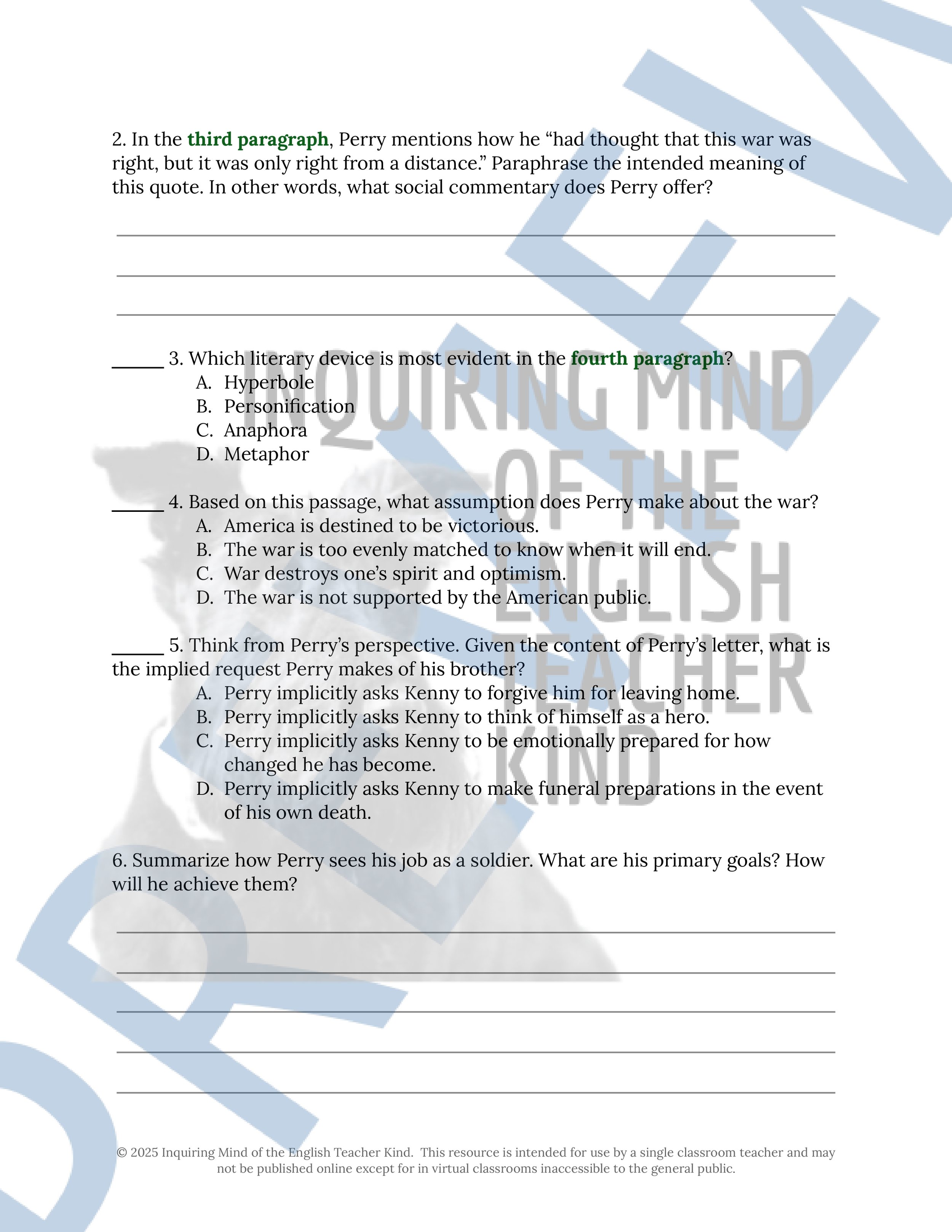 Image 80 of 81
Image 80 of 81

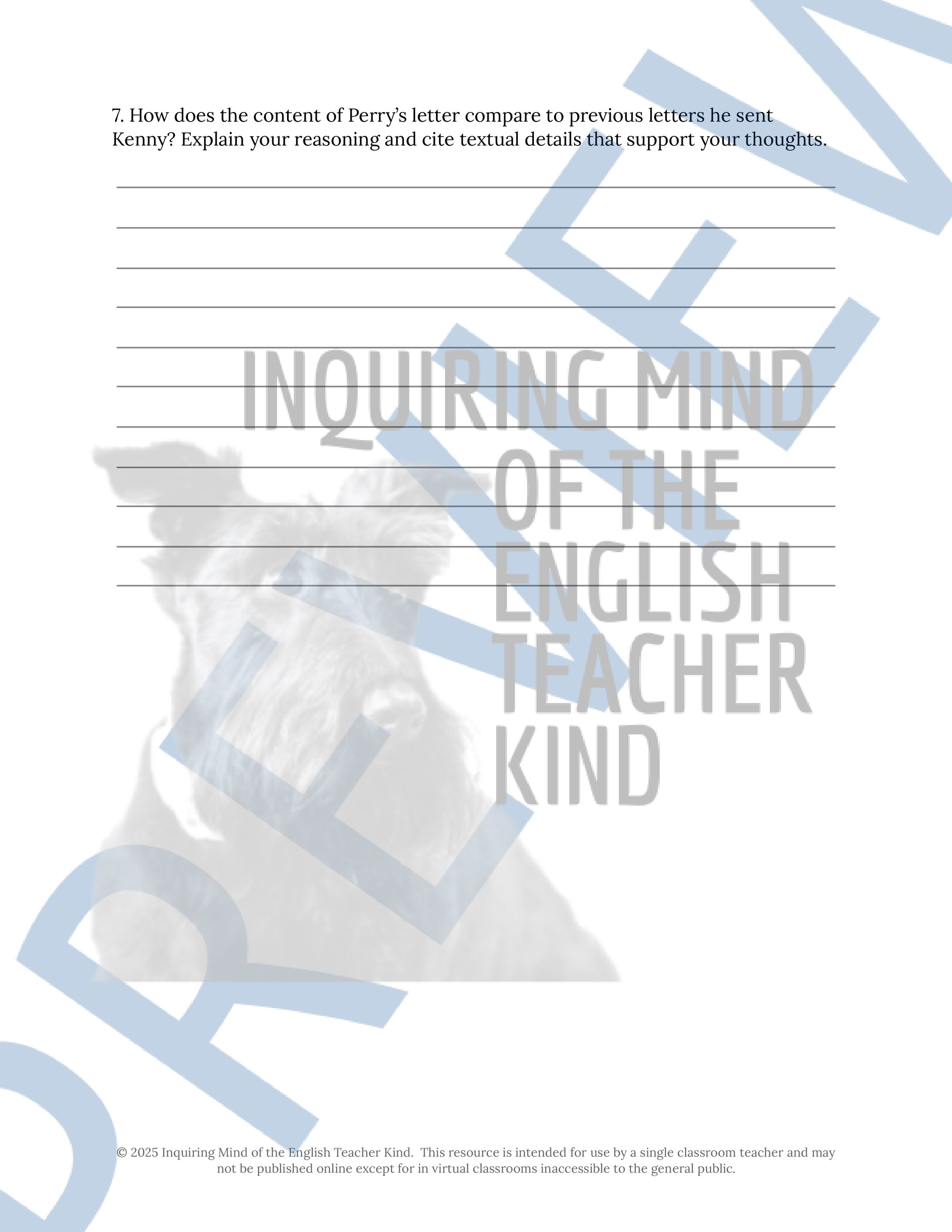 Image 81 of 81
Image 81 of 81


















































































Fallen Angels Quizzes, Worksheets, Research Project, Test, and Answer Keys (Mega Bundle)
This resource bundle is designed to evaluate reading comprehension, facilitate active engagement with fiction, support critical thinking practices, and streamline the process of researching topics related to Fallen Angels by Walter Dean Myers. Materials are delivered in editable Word Document and printable PDF formats. (Alternatively, a Google Drive bundle option is available.) A breakdown of content follows.
Reading comprehension quizzes: Hold students accountable for assigned readings with six multiple choice assessments focused on plot developments. These assessments may double as guided reading homework handouts to facilitate active engagement with the novel. Answer keys are included. Quizzes are broken down as follows:
Chapters 1, 2, 3, and 4
Chapters 5, 6, 7, and 8
Chapters 9, 10, 11, and 12
Chapters 13, 14, and 15
Chapters 16, 17, 18, and 19
Chapters 20, 21, 22, and 23
Vocabulary enrichment activities: Included are 6 definition handouts, 6 crossword puzzles, 6 word search games, and answer keys.
Close reading analysis worksheets: Prepare students to go beyond basic reading comprehension and develop critical thinking and literary craft analysis skills for high school. Seven activities are included, addressing a meaningful excerpt from each of the following chapters: 1, 2, 5, 10, 14, 16, and 21. Answer keys are provided. By engaging with these close reading activities, students will:
Identify what the text states explicitly and implicitly
Consult reference materials as needed to learn or verify word meanings
Discern the intended effects of the author's word choices and narrative techniques
Determine the functions of various excerpts
Evaluate the positive and negative aspects of a particular situation
Describe tone in context
Explore how complex characters think, behave, interact, and develop
Isolate examples of figurative language
Apply knowledge of literary devices with emphasis on alliteration, dramatic irony, foreshadowing, personification, simile, and more
Conduct brief research on various topics
Select textual evidence in support of a claim
Write about complex literature with clarity, accuracy, and precision
Come to class better prepared to discuss literature
Research project materials: Streamline the process of investigating relevant topics, documenting information gathered, and delivering formal speeches. Students will choose from more than twenty relevant subjects—the Gulf of Tonkin incident, the Tet Offensive, the My Lai Massacre, Tinker vs. Des Moines, and Milton L. Olive III to name a few—and navigate credible sources with the goal of teaching others about their topic. A detailed scoring rubric is provided. Students will perform the following tasks:
Articulate connections between a research topic and the assigned novel
Conduct research using available resources
Collect and classify reliable sources
Develop successful methods of recording information
Evaluate the credibility of nonfiction texts, taking into consideration readability, date, relevance, expertise, and bias
Apply conventions of MLA formatting
Correctly site resources to avoid plagiarism
Organize information in a cohesive manner, using a note-taking system that includes summary, paraphrasing, and quoted material
Analyze, synthesize, and integrate information, generating a thoughtfully comprehensive report, free of generalities and redundancies
Present information in a formal, coherent manner
Summative unit test: This summative assessment measures reading comprehension, knowledge of literary craft, and proficiency in writing claims in an analysis of the text and its characters. An answer key is provided.
Instructional materials are available for a variety of novels:
This resource bundle is designed to evaluate reading comprehension, facilitate active engagement with fiction, support critical thinking practices, and streamline the process of researching topics related to Fallen Angels by Walter Dean Myers. Materials are delivered in editable Word Document and printable PDF formats. (Alternatively, a Google Drive bundle option is available.) A breakdown of content follows.
Reading comprehension quizzes: Hold students accountable for assigned readings with six multiple choice assessments focused on plot developments. These assessments may double as guided reading homework handouts to facilitate active engagement with the novel. Answer keys are included. Quizzes are broken down as follows:
Chapters 1, 2, 3, and 4
Chapters 5, 6, 7, and 8
Chapters 9, 10, 11, and 12
Chapters 13, 14, and 15
Chapters 16, 17, 18, and 19
Chapters 20, 21, 22, and 23
Vocabulary enrichment activities: Included are 6 definition handouts, 6 crossword puzzles, 6 word search games, and answer keys.
Close reading analysis worksheets: Prepare students to go beyond basic reading comprehension and develop critical thinking and literary craft analysis skills for high school. Seven activities are included, addressing a meaningful excerpt from each of the following chapters: 1, 2, 5, 10, 14, 16, and 21. Answer keys are provided. By engaging with these close reading activities, students will:
Identify what the text states explicitly and implicitly
Consult reference materials as needed to learn or verify word meanings
Discern the intended effects of the author's word choices and narrative techniques
Determine the functions of various excerpts
Evaluate the positive and negative aspects of a particular situation
Describe tone in context
Explore how complex characters think, behave, interact, and develop
Isolate examples of figurative language
Apply knowledge of literary devices with emphasis on alliteration, dramatic irony, foreshadowing, personification, simile, and more
Conduct brief research on various topics
Select textual evidence in support of a claim
Write about complex literature with clarity, accuracy, and precision
Come to class better prepared to discuss literature
Research project materials: Streamline the process of investigating relevant topics, documenting information gathered, and delivering formal speeches. Students will choose from more than twenty relevant subjects—the Gulf of Tonkin incident, the Tet Offensive, the My Lai Massacre, Tinker vs. Des Moines, and Milton L. Olive III to name a few—and navigate credible sources with the goal of teaching others about their topic. A detailed scoring rubric is provided. Students will perform the following tasks:
Articulate connections between a research topic and the assigned novel
Conduct research using available resources
Collect and classify reliable sources
Develop successful methods of recording information
Evaluate the credibility of nonfiction texts, taking into consideration readability, date, relevance, expertise, and bias
Apply conventions of MLA formatting
Correctly site resources to avoid plagiarism
Organize information in a cohesive manner, using a note-taking system that includes summary, paraphrasing, and quoted material
Analyze, synthesize, and integrate information, generating a thoughtfully comprehensive report, free of generalities and redundancies
Present information in a formal, coherent manner
Summative unit test: This summative assessment measures reading comprehension, knowledge of literary craft, and proficiency in writing claims in an analysis of the text and its characters. An answer key is provided.
Instructional materials are available for a variety of novels:










